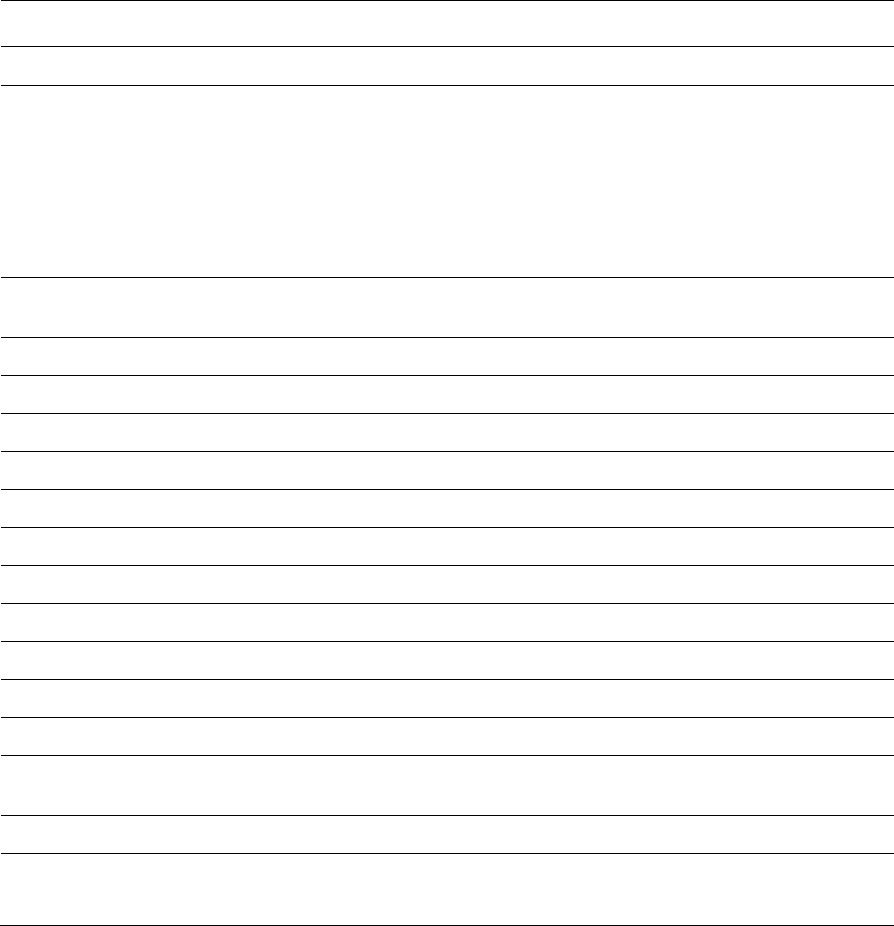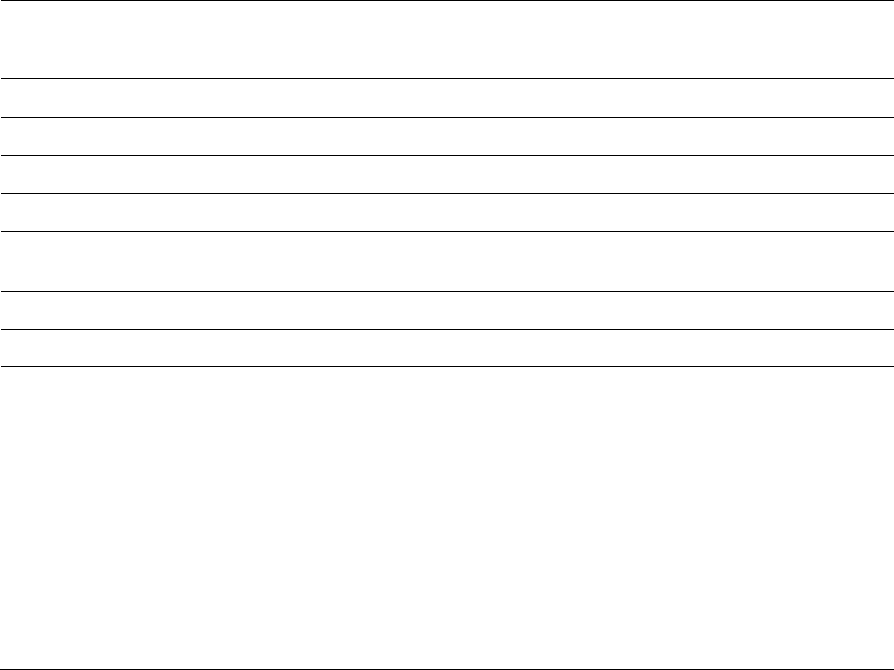ARM Developer Suite Compilers And Libraries Guide DUI0067Compilers
User Manual:
Open the PDF directly: View PDF ![]() .
.
Page Count: 276 [warning: Documents this large are best viewed by clicking the View PDF Link!]
- ARM Developer Suite Compilers and Libraries Guide
- Contents
- Preface
- Introduction
- C and C++ Compilers
- 2.1 About the C and C++ compilers
- 2.2 File usage
- 2.3 Command syntax
- 2.3.1 Invoking the compiler
- 2.3.2 Procedure Call Standard options
- 2.3.3 Setting the source language
- 2.3.4 Specifying search paths
- 2.3.5 Setting preprocessor options
- 2.3.6 Specifying output format
- 2.3.7 Specifying the target processor or architecture
- 2.3.8 Generating debug information
- 2.3.9 Controlling code generation
- 2.3.10 Controlling warning messages
- 2.3.11 Specifying additional checks
- 2.3.12 Controlling error messages
- ARM Compiler Reference
- The C and C++ Libraries
- 4.1 About the runtime libraries
- 4.2 Building an application with the C library
- 4.3 Building an application without the C library
- 4.4 Tailoring the C library to a new execution environment
- 4.5 Tailoring static data access
- 4.6 Tailoring locale and CTYPE
- 4.6.1 Selecting locale at link time
- 4.6.2 Selecting locale at run time
- 4.6.3 Macros and utility functions
- 4.6.4 _get_lc_ctype()
- 4.6.5 _get_lc_collate()
- 4.6.6 _get_lc_monetary()
- 4.6.7 _get_lc_numeric()
- 4.6.8 _get_lc_time()
- 4.6.9 _get_lconv()
- 4.6.10 localeconv()
- 4.6.11 setlocale()
- 4.6.12 _findlocale()
- 4.6.13 __LC_CTYPE_DEF
- 4.6.14 __LC_COLLATE_DEF
- 4.6.15 __LC_TIME_DEF
- 4.6.16 __LC_NUMERIC_DEF
- 4.6.17 __LC_MONETARY_DEF
- 4.6.18 __LC_INDEX_END
- 4.6.19 The lconv structure
- 4.7 Tailoring error signaling, error handling, and program exit
- 4.8 Tailoring storage management
- 4.8.1 Support for malloc
- 4.8.2 Creating your own storage-management system
- 4.8.3 __Heap_Descriptor
- 4.8.4 __Heap_Initialize()
- 4.8.5 __Heap_DescSize()
- 4.8.6 __Heap_ProvideMemory()
- 4.8.7 __Heap_Alloc()
- 4.8.8 __Heap_Free()
- 4.8.9 __Heap_Realloc()
- 4.8.10 __Heap_Stats()
- 4.8.11 __Heap_Valid()
- 4.8.12 __Heap_Full()
- 4.8.13 __Heap_Broken()
- 4.9 Tailoring the runtime memory model
- 4.9.1 The memory models
- 4.9.2 Controlling the runtime memory model
- 4.9.3 Writing your own memory model
- 4.9.4 __user_initial_stackheap()
- 4.9.5 __user_heap_extend()
- 4.9.6 __user_heap_extent()
- 4.9.7 __user_stack_slop()
- 4.9.8 __rt_stackheap_init()
- 4.9.9 __rt_stack_overflow()
- 4.9.10 __rt_heap_extend()
- 4.9.11 __rt_stack_postlongjmp()
- 4.10 Tailoring the input/output functions
- 4.11 Tailoring other C library functions
- 4.12 Selecting real-time division
- 4.13 ISO implementation definition
- 4.14 C library extensions
- 4.15 Library naming conventions
- Floating-point Support
- 5.1 About floating-point support
- 5.2 The software floating-point library, fplib
- 5.3 Controlling the floating-point environment
- 5.4 The math library, mathlib
- 5.4.1 Inverse hyperbolic functions (acosh, asinh, atanh)
- 5.4.2 Cube root (cbrt)
- 5.4.3 Copy sign (copysign)
- 5.4.4 Error functions (erf, erfc)
- 5.4.5 One less than exp(x) (expm1)
- 5.4.6 Determine if a number is finite (finite)
- 5.4.7 Gamma function (gamma, gamma_r)
- 5.4.8 Hypotenuse function (hypot)
- 5.4.9 Return the exponent of a number (ilogb)
- 5.4.10 Determine if a number is a NaN (isnan)
- 5.4.11 Bessel functions of the first kind (j0, j1, jn)
- 5.4.12 The logarithm of the gamma function (lgamma, lgamma_r)
- 5.4.13 Logarithm of one more than x (log1p)
- 5.4.14 Return the exponent of a number (logb)
- 5.4.15 Return the next representable number (nextafter)
- 5.4.16 IEEE 754 remainder function (remainder)
- 5.4.17 IEEE round-to-integer operation (rint)
- 5.4.18 Scale a number by a power of two (scalb, scalbn)
- 5.4.19 Return the fraction part of a number (significand)
- 5.4.20 Bessel functions of the second kind (y0, y1, yn)
- 5.5 IEEE 754 arithmetic
- Via File Syntax
- Standard C Implementation Definition
- B.1 Implementation definition
- B.1.1 Translation
- B.1.2 Environment
- B.1.3 Identifiers
- B.1.4 Characters
- B.1.5 Integers
- B.1.6 Floating-point
- B.1.7 Arrays and pointers
- B.1.8 Registers
- B.1.9 Structures, unions, enumerations, and bitfields
- B.1.10 Qualifiers
- B.1.11 Declarators
- B.1.12 Statements
- B.1.13 Preprocessing directives
- B.1.14 Library functions
- B.1 Implementation definition
- Standard C++ Implementation Definition
- C and C++ Compiler Implementation Limits
- Glossary
- Index

Copyright © 1999-2001 ARM Limited. All rights reserved.
ARM DUI 0067D
ARM® Developer Suite
Version 1.2
Compilers and Libraries Guide

ii Copyright © 1999-2001 ARM Limited. All rights reserved. ARM DUI 0067D
ARM Developer Suite
Compilers and Libraries Guide
Copyright © 1999-2001 ARM Limited. All rights reserved.
Release Information
The following changes have been made to this book.
Proprietary Notice
Words and logos marked with ® or ™ are registered trademarks or trademarks owned by ARM Limited. Other
brands and names mentioned herein may be the trademarks of their respective owners.
Neither the whole nor any part of the information contained in, or the product described in, this document
may be adapted or reproduced in any material form except with the prior written permission of the copyright
holder.
The product described in this document is subject to continuous developments and improvements. All
particulars of the product and its use contained in this document are given by ARM in good faith. However,
all warranties implied or expressed, including but not limited to implied warranties of merchantability, or
fitness for purpose, are excluded.
This document is intended only to assist the reader in the use of the product. ARM Limited shall not be liable
for any loss or damage arising from the use of any information in this document, or any error or omission in
such information, or any incorrect use of the product.
Change History
Date Issue Change
October 1999 A Release 1.0
March 2000 B Release 1.0.1
November 2000 C Release 1.1
November 2001 D Release 1.2

ARM DUI 0067D Copyright © 1999-2001 ARM Limited. All rights reserved. iii
Contents
ARM Developer Suite Compilers and Libraries
Guide
Preface
About this book ............................................................................................ viii
Feedback ...................................................................................................... xii
Chapter 1 Introduction
1.1 About the compilers and libraries ................................................................ 1-2
1.2 The ARM compilers and libraries ................................................................ 1-3
1.3 Linking compiled objects ............................................................................. 1-5
1.4 Related utilities ............................................................................................ 1-6
Chapter 2 C and C++ Compilers
2.1 About the C and C++ compilers .................................................................. 2-2
2.2 File usage ................................................................................................... 2-4
2.3 Command syntax ........................................................................................ 2-9
Chapter 3 ARM Compiler Reference
3.1 Compiler-specific features ........................................................................... 3-2
3.2 Language extensions ................................................................................ 3-16
3.3 C and C++ implementation details ........................................................... 3-21
3.4 Predefined macros .................................................................................... 3-31

Contents
iv Copyright © 1999-2001 ARM Limited. All rights reserved. ARM DUI 0067D
Chapter 4 The C and C++ Libraries
4.1 About the runtime libraries ......................................................................... 4-2
4.2 Building an application with the C library .................................................... 4-6
4.3 Building an application without the C library ............................................. 4-13
4.4 Tailoring the C library to a new execution environment ............................ 4-20
4.5 Tailoring static data access ...................................................................... 4-25
4.6 Tailoring locale and CTYPE ..................................................................... 4-26
4.7 Tailoring error signaling, error handling, and program exit ....................... 4-51
4.8 Tailoring storage management ................................................................. 4-57
4.9 Tailoring the runtime memory model ........................................................ 4-67
4.10 Tailoring the input/output functions ........................................................... 4-75
4.11 Tailoring other C library functions ............................................................. 4-85
4.12 Selecting real-time division ....................................................................... 4-90
4.13 ISO implementation definition ................................................................... 4-91
4.14 C library extensions .................................................................................. 4-99
4.15 Library naming conventions .................................................................... 4-105
Chapter 5 Floating-point Support
5.1 About floating-point support ........................................................................ 5-2
5.2 The software floating-point library, fplib ...................................................... 5-3
5.3 Controlling the floating-point environment .................................................. 5-8
5.4 The math library, mathlib .......................................................................... 5-24
5.5 IEEE 754 arithmetic .................................................................................. 5-30
Appendix A Via File Syntax
A.1 Overview of via files .................................................................................... A-2
A.2 Syntax ......................................................................................................... A-3
Appendix B Standard C Implementation Definition
B.1 Implementation definition ............................................................................ B-2
Appendix C Standard C++ Implementation Definition
C.1 EC++ support ............................................................................................. C-2
C.2 Integral conversion ..................................................................................... C-3
C.3 Calling a pure virtual function ..................................................................... C-4
C.4 Minor features of language support ............................................................ C-5
C.5 Major features of language support ............................................................ C-7
C.6 Standard C++ library implementation definition .......................................... C-8
Appendix D C and C++ Compiler Implementation Limits
D.1 C++ ISO/IEC standard limits ...................................................................... D-2
D.2 Internal limits .............................................................................................. D-4
D.3 Limits for integral numbers ......................................................................... D-5
D.4 Limits for floating-point numbers ................................................................ D-6

Contents
vi Copyright © 1999-2001 ARM Limited. All rights reserved. ARM DUI 0067D

Preface
viii Copyright © 1999-2001 ARM Limited. All rights reserved. ARM DUI 0067D
About this book
This book provides reference information for ADS. It describes the command-line
options to the compilers. The book also gives reference material on the ARM
implementation of the C and C++ compilers and the C libraries.
Intended audience
This book is written for all developers who are producing applications using ADS. It
assumes that you are an experienced software developer and that you are familiar with
the ARM development tools as described in ADS Getting Started.
Using this book
This book is organized into the following chapters and appendixes:
Chapter 1 Introduction
Read this chapter for an introduction to ADS version 1.2 compilers and
libraries.
Chapter 2 C and C++ Compilers
Read this chapter for an explanation of all command-line options
accepted by the ARM C and C++ compilers.
Chapter 3 ARM Compiler Reference
Read this chapter for a description of the language features provided by
the ARM C and C++ compilers, and for information on standards
conformance and implementation details.
Chapter 4 The C and C++ Libraries
Read this chapter for a description of the ARM C and C++ libraries and
instructions on re-implementing individual library functions.
Chapter 5 Floating-point Support
Read this chapter for a description of floating-point support in ADS.
Appendix A Via File Syntax
Read this appendix for a description of the syntax for via files. You can
use via files to specify command-line arguments to many ARM tools.
Appendix B Standard C Implementation Definition
Read this appendix for information on the ARM C implementation that
relates directly to the ISO/IEC C standards requirements.

Preface
ARM DUI 0067D Copyright © 1999-2001 ARM Limited. All rights reserved. ix
Appendix C Standard C++ Implementation Definition
Read this appendix for information on the ARM C++ implementation.
Appendix D C and C++ Compiler Implementation Limits
Read this appendix for implementation limits of the ARM C and C++
compilers.
Typographical conventions
The following typographical conventions are used in this book:
monospace
Denotes text that can be entered at the keyboard, such as commands, file
and program names, and source code.
monospace
Denotes a permitted abbreviation for a command or option. The
underlined text can be entered instead of the full command or option
name.
monospace italic
Denotes arguments to commands and functions where the argument is to
be replaced by a specific value.
monospace bold
Denotes language keywords when used outside example code.
italic Highlights important notes, introduces special terminology, denotes
internal cross-references, and citations.
bold Highlights interface elements, such as menu names. Also used for
emphasis in descriptive lists, where appropriate, and for ARM processor
signal names.
Further reading
This section lists publications from both ARM Limited and third parties that provide
additional information on developing code for the ARM family of processors.
ARM periodically provides updates and corrections to its documentation. See
http://www.arm.com
for current errata sheets and addenda, and for the ARM Frequently
Asked Questions list.

Preface
xCopyright © 1999-2001 ARM Limited. All rights reserved. ARM DUI 0067D
ARM publications
This book contains reference information that is specific to development tools supplied
with ADS. Other publications included in the suite are:
•Getting Started (ARM DUI 0064)
•ADS Assembler Guide (ARM DUI 0068)
•ADS Developer Guide (ARM DUI 0056)
•AXD and armsd Debuggers Guide (ARM DUI 0066)
•ADS Debug Target Guide (ARM DUI 0058)
•ADS Installation and License Management Guide (ARM DUI 0139)
•ADS Linker and Utilities Guide (ARM DUI 0151)
•CodeWarrior IDE Guide (ARM DUI 0065).
The following additional documentation is provided with the ARM Developer Suite:
•ARM Architecture Reference Manual (ARM DDI 0100). This is supplied in
DynaText and PDF format.
•ARM Applications Library Programmer’s Guide. This is supplied in DynaText
and PDF format.
•ARM ELF specification (SWS ESPC 0003). This is supplied in PDF format in
install_directory\PDF\specs\ARMELF.pdf
.
•TIS DWARF 2 specification. This is supplied in PDF format in
install_directory\PDF\specs\TIS-DWARF2.pdf
.
•ARM/Thumb® Procedure Call Standard specification. This is supplied in PDF
format in
install_directory\PDF\specs\ATPCS.pdf
.
In addition, see the following documentation for specific information relating to ARM
products:
•ARM Reference Peripheral Specification (ARM DDI 0062)
• the ARM datasheet or technical reference manual for your hardware device.
Other publications
This book is not intended to be an introduction to C, or C++ programming languages.
It does not try to teach programming in C or C++, and it is not a reference manual for
the C or C++ standards. Other books provide general information about programming.
The following book gives general information about the ARM architecture:
•ARM System-on-chip Architecture (second edition), Furber, S., (2000). Addison
Wesley. ISBN 0-201-67519-6.

Preface
ARM DUI 0067D Copyright © 1999-2001 ARM Limited. All rights reserved. xi
The following book describes the C++ language:
•ISO/IEC 14882:1998(E), C++ Standard. Available from the national standards
body.
The following books provide general C++ programming information:
• Ellis, M.A. and Stroustrup, B., The Annotated C++ Reference Manual (1990).
Addison-Wesley Publishing Company, Reading, Massachusetts. ISBN
0-201-51459-1.
This is a reference guide to C++.
• Stroustrup, B., The Design and Evolution of C++ (1994). Addison-Wesley
Publishing Company, Reading, Massachusetts. ISBN 0-201-54330-3.
This book explains how C++ evolved from its first design to the language in use
today.
• Meyers, S., Effective C++ (1992). Addison-Wesley Publishing Company,
Reading, Massachusetts. ISBN 0-201-56364-9.
This provides short, specific, guidelines for effective C++ development.
• Meyers, S., More Effective C++ (1996). Addison-Wesley Publishing Company,
Reading, Massachusetts. ISBN 0-201-63371-X.
The sequel to Effective C++.
The following books provide general C programming information:
• Kernighan, B.W. and Ritchie, D.M., The C Programming Language (2nd edition,
1988). Prentice-Hall, Englewood Cliffs, NJ, USA. ISBN 0-13-110362-8.
This is the original C bible, updated to cover the essentials of ANSI C.
• Harbison, S.P. and Steele, G.L., A C Reference Manual (second edition, 1987).
Prentice-Hall, Englewood Cliffs, NJ, USA. ISBN 0-13-109802-0.
This is a very thorough reference guide to C, including useful information on
ANSI C.
• Koenig, A, C Traps and Pitfalls, Addison-Wesley (1989), Reading, Mass. ISBN
0-201-17928-8.
This explains how to avoid the most common traps in C programming. It provides
informative reading at all levels of competence in C.
• ISO/IEC 9899:1990, C Standard.
This is available from ANSI as X3J11/90-013. The standard is available from the
national standards body (for example, AFNOR in France, ANSI in the USA).

Preface
xii Copyright © 1999-2001 ARM Limited. All rights reserved. ARM DUI 0067D
Feedback
ARM Limited welcomes feedback on both ADS and the documentation.
Feedback on the ARM Developer Suite
If you have any problems with ADS, please contact your supplier. To help them provide
a rapid and useful response, please give:
• your name and company
• the serial number of the product
• details of the release you are using
• details of the platform you are running on, such as the hardware platform,
operating system type and version
• a small standalone sample of code that reproduces the problem
• a clear explanation of what you expected to happen, and what actually happened
• the commands you used, including any command-line options
• sample output illustrating the problem
• the version string of the tools, including the version number and build numbers.
Feedback on this book
If you have any problems with this book, please send email to
errata@arm.com
giving:
• the document title
• the document number
• the page number(s) to which your comments apply
• a concise explanation of the problem.
General suggestions for additions and improvements are also welcome.

ARM DUI 0067D Copyright © 1999-2001 ARM Limited. All rights reserved. 1-1
Chapter 1
Introduction
This chapter introduces the ARM compilers, libraries, linker, and utility programs
provided with ADS. It contains the following sections:
•About the compilers and libraries on page 1-2
•The ARM compilers and libraries on page 1-3
•Linking compiled objects on page 1-5
•Related utilities on page 1-6.

Introduction
1-2 Copyright © 1999-2001 ARM Limited. All rights reserved. ARM DUI 0067D
1.1 About the compilers and libraries
ADS consists of a suite of applications, together with supporting documentation and
examples, that enable you to write and debug applications for the ARM family of RISC
processors. You can use ADS to develop, build, and debug C, C++, and ARM assembly
language programs.
The ADS toolkit consists of the following major components:
• command-line development tools
• GUI development tools
• utilities
• supporting software.
This book describes the ARM compilers and libraries provided with ADS. See ARM
publications on page x for a list of the other books in the ADS documentation suite that
give information on the ARM assembler, debuggers, and supporting software.

Introduction
ARM DUI 0067D Copyright © 1999-2001 ARM Limited. All rights reserved. 1-3
1.2 The ARM compilers and libraries
This section gives an overview of the ARM C and C++ compilers, and the C and C++
libraries.
1.2.1 The C and C++ compilers
ADS provides the following compilers:
armcc The ARM C compiler. The compiler is tested against the Plum Hall C
Validation Suite for ANSI conformance. It compiles ANSI C source into
32-bit ARM code.
armcpp This is the ARM C++ compiler. It compiles ANSI C++ or EC++ source
into 32-bit ARM code.
tcc The Thumb C compiler. The compiler is tested against the Plum Hall C
Validation Suite for ANSI conformance. It compiles ANSI C source into
16-bit Thumb code.
tcpp This is the Thumb C++ compiler. It compiles ANSI C++ or EC++ source
into 16-bit Thumb code.
The ARM compilers are optimizing compilers. Command-line options enable you to
control the level of optimization.
The compilers generate output objects in ELF format, and generate DWARF2 debug
information. In addition, the compilers can generate an assembly language listing of the
output code, and can interleave an assembly language listing with source code.
See Chapter 2 C and C++ Compilers for more information on the ARM compilers.

Introduction
1-4 Copyright © 1999-2001 ARM Limited. All rights reserved. ARM DUI 0067D
1.2.2 The C and C++ libraries
ADS provides the following runtime C and C++ libraries:
The ARM C libraries
The ARM C libraries provide standard C functions, and helper functions
used by the C and C++ libraries. The C libraries also provide
target-dependent functions that are used to implement the standard C
library functions in a semihosted environment. The C libraries are
structured so that you can redefine target-dependent functions in your
own code to remove semihosting dependencies.
Rogue Wave C++ library
The Rogue Wave C++ library provides standard C++ functions and
objects such as
cout()
. For more information on the Rogue Wave
libraries, see the Rogue Wave HTML documentation. There are no target
dependencies in the C++ library. The C++ libraries use the C libraries to
provide target-specific support.
Support libraries
The ARM C libraries provide additional components to enable support
for C++ and to compile code for different architectures and processors.
The C and C++ libraries are provided as binaries only. There is a variant of the ANSI C
library for each combination of major build options, such as the ATPCS variant
selected, the byte order of the target system, and the type of floating point. See
Chapter 4 The C and C++ Libraries for more information on the libraries.

Introduction
ARM DUI 0067D Copyright © 1999-2001 ARM Limited. All rights reserved. 1-5
1.3 Linking compiled objects
The ARM and Thumb linker combines the contents of one or more object files with
selected parts of one or more object libraries to produce an ELF executable image, or a
partially linked ELF object.
The linker can link ARM code and Thumb code, and automatically generates
interworking veneers to switch processor state when required. The linker also
automatically generates long branch veneers, where required, to extend the range of
branch instructions.
The linker supports command-line options that enable you to specify the location of
code and data in memory for simple images. In addition, the linker enables you to create
complex images with scatter-load description files. You can use scatter-load description
files to specify the memory locations, at both load time and execution time, of
individual code and data sections in your output image.
The linker can perform common section elimination and unused section elimination to
reduce the size of your output image. In addition, the linker enables you to:
• produce debug and reference information about linked files
• generate static callgraph information
• control the contents of the symbol table in output images.
The linker automatically selects the appropriate standard C or C++ library variants to
link with, based on the build attributes of the objects it is linking.
The linker does not generate output formats other than ELF. To convert ELF images to
other format, such as plain binary for loading into ROM, use the fromELF utility. See
Related utilities on page 1-6.
See ADS Linker and Utilities Guide for detailed information on the ARM linker.

Introduction
1-6 Copyright © 1999-2001 ARM Limited. All rights reserved. ARM DUI 0067D
1.4 Related utilities
This section gives an overview of the utility tools that are provided to support the main
development tools, including:
•fromELF
•armar
• armprof.
See the ADS Linker and Utilities Guide for detailed information on the utilities.
1.4.1 fromELF
fromELF is the ARM image conversion utility. It accepts ELF format input files and
converts them to a variety of output formats, including:
• plain binary
• Motorola 32-bit S-record format
• Intel Hex-32 format
• Byte Oriented (Verilog Memory Model) Hex format
•Extended Intellec Hex (IHF) format (this option is deprecated and will be
removed from future versions of the product).
The utility can also:
• produce textual information about the input file
• disassemble code
• resave in ELF format.
1.4.2 armar
The ARM librarian enables you to collect and maintain sets of ELF files in
ar
format
libraries. You can pass libraries to the linker in place of several ELF object files.
1.4.3 armprof
The ARM profiler displays an execution profile of a simple program from a profile data
file generated by an ARM debugger.

ARM DUI 0067D Copyright © 1999-2001 ARM Limited. All rights reserved. 2-1
Chapter 2
C and C++ Compilers
This chapter describes the command-line options to the ARM and Thumb, C and C++
compilers. This chapter assumes you are familiar with command-line software
development tools such as those provided with ADS. It contains the following sections:
•About the C and C++ compilers on page 2-2
•File usage on page 2-4
•Command syntax on page 2-9.

C and C++ Compilers
2-2 Copyright © 1999-2001 ARM Limited. All rights reserved. ARM DUI 0067D
2.1 About the C and C++ compilers
Wherever possible, the compilers adopt widely used command-line options familiar
both to users of UNIX and to users of Windows/MS-DOS.
The ARM C and C++ compilers compile ANSI C.
The ARM C++ compilers expect C++ that conforms to the ISO/IEC 14822 :1998
International Standard for C++. See Appendix C Standard C++ Implementation
Definition for a detailed description of ARM C++ language support.
The ARM C++ compilers can also compile the subset of standard C++ known as
Embedded C++ (EC++). EC++ is a subset of standard C++ that provides efficient code
for use in embedded systems. The EC++ amendment to the ISO standard is evolving.
The proposed definition is available on the web at
http://www.caravan.net/ec2plus
.
2.1.1 Compiler variants
All ARM C and C++ compilers accept the same basic command-line options. Unless
stated otherwise, the text in this chapter applies to all compiler types. Where a specific
compiler has added features or restrictions, this is noted in the text. Where an option
applies only to C++, this is also noted in the text.
There are four compiler variants as shown in Table 2-1.
Note
Throughout this chapter, the phrase the ARM compilers refers to armcc, armcpp, tcc,
and tcpp.
Table 2-1 Compiler variants
Compiler name Compiler variant Source
language Compiler output
armcc C C 32-bit ARM code
tcc C C 16-bit Thumb code
armcpp C++ C or C++ 32-bit ARM code
tcpp C++ C or C++ 16-bit Thumb code

C and C++ Compilers
ARM DUI 0067D Copyright © 1999-2001 ARM Limited. All rights reserved. 2-3
2.1.2 Source language modes
The ARM compilers have three distinct source language modes that you can use to
compile several varieties of C and C++ source code:
ANSI C In ANSI C mode, the ARM compilers pass release 7.00 of the Plum Hall
C Validation Suite (CVS). This suite has been adopted by the British
Standards Institute for C compiler validation in Europe. The compiler
option
-strict
is used when running the tests.
EC++ This mode applies only to the ARM C++ compilers. The ARM C++
compilers compile the Embedded C++ subset of the ISO/IEC Standard
C++.
C++ This mode applies only to the ARM C++ compilers. The ARM C++
compilers compile ISO/IEC standard C++. The compilers are tested
against Suite++, The Plum Hall Validation Suite for C++, version 5.00.
This is the default language mode for the ARM C++ compilers. The
option
-strict
was used when running the tests.
For more information on how to use compiler options to set the source mode for the
compiler, see Setting the source language on page 2-14.
2.1.3 Inline assembly language
The C and C++ compilers provide inline assemblers to enable you to write optimized
assembly language routines, and access features of the target processor not available
from C or C++. See Inline assembler on page 3-18 for information on the
__asm
keyword. See also the chapter on mixing C, C++, and Assembly language in the ADS
Developer Guide for details of how to use the inline assembler, and for information on
restrictions on inline assembly language. See the ADS Assembler Guide for detailed
information on writing assembly language for the ARM. Using inline Thumb assembly
routines, however, is deprecated and generates a warning message.
2.1.4 Library support
ADS provides both ANSI C libraries in prebuilt binary form and Rogue Wave C++
libraries in prebuilt binary form. See Chapter 4 The C and C++ Libraries for detailed
information about the libraries.
You can create your own definition of target-dependent functions to customize the C
libraries. Processor-specific retargeting is done automatically by setting the compiler
options for processor architecture and family.

C and C++ Compilers
2-4 Copyright © 1999-2001 ARM Limited. All rights reserved. ARM DUI 0067D
2.2 File usage
This section describes naming conventions and included files.
2.2.1 Naming conventions
The ARM compilers use suffix naming (filename-extension) conventions to identify the
classes of file involved in compilation and in the linking process. The names used on
the command line, and as arguments to preprocessor
#include
directives, map directly
to host file names under UNIX and Windows/MS-DOS.
The ARM compilers use or generate files with the following file suffixes:
filename.c
ARM C compilers recognize the
.c
suffix as source files.
ARM C++ compilers recognize
.c
,
.cpp
,
.cp
,
.c++
, and
.cc
suffixes as source files.
filename.h
Header file (a convention only, this suffix has no special
significance for the compiler).
filename.o
ARM object file in ELF format.
filename.s
ARM or Thumb assembly language file. (This can be placed in the
input file list or, with the
-S
option, produced as an output file from
the C and C++ compilers.)
filename.lst
Error and warning list file (the default output extension for
-list
option).
Portability
The ARM compilers support multiple file-naming conventions on all supported hosts.
To ensure portability between hosts, use the following guidelines:
• Ensure that filenames do not contain spaces. If you have to use pathnames or
filenames containing spaces, enclose the path and filename in quotes.
• Make embedded pathnames relative rather than absolute.
In each host environment, the compilers support:
• native filenames
• pseudo UNIX filenames in the format:
host-volume-name:/rest-of-unix-file-name
• UNIX filenames using
/
as apath separator.

C and C++ Compilers
ARM DUI 0067D Copyright © 1999-2001 ARM Limited. All rights reserved. 2-5
Filenames are parsed as follows:
• a name starting with
host-volume-name:/
is a pseudo UNIX filename
• a name that does not start with
host-volume-name:/
and contains
/
is a UNIX
filename
• a name that does not contain a
/
is a host filename.
Filename validity
The compilers do not check that filenames are acceptable to the host file system. If a
filename is not acceptable, the compiler reports that the file cannot be opened, but the
compiler gives no more diagnosis.
Output files
By default, the output files created by an ARM compiler are stored in the current
directory. Object files are written in ARM Executable and Linkable Format (ELF). The
ELF documentation is available in
install_directory\PDF
.

C and C++ Compilers
2-6 Copyright © 1999-2001 ARM Limited. All rights reserved. ARM DUI 0067D
2.2.2 Included files
Several factors affect the way the ARM compilers search for
#include
header files and
source files. These include:
• the
-I
and
-j
compiler options
• the
-fk
and
-fd
compiler options
• the value of the environment variable ARMINC
• whether the filename is an absolute filename or a relative filename
• whether the filename is between angle brackets or double quotes.
The in-memory file system
The ARM compilers have the ANSI C library headers built into a special,
textually-compressed, in-memory file system. By default, the C header files are used
from this file system for applications built from the command line. You can specify the
in-memory file system on the command line with
-j-
or
-I-
.
The C++ header files that are equivalent to the C library header files are also stored in
the in-memory file system. The header files specific to C++, such as
iostream
, are not
stored in the in-memory file system.
Enclosing a filename in angle brackets,
#include <stdio.h>
for example, indicates that
the included file is a system file and instructs the compiler to look in the in-memory file
system first.
Enclosing a filename in double quotes,
#include "myfile.h"
for example, indicates that
it is not a system file and instructs the compiler to look in the search path.
The current place
By default, the ARM compilers use Berkeley UNIX search rule, so source files and
#include
header files are searched for relative to the current place. This is the directory
containing the source or header file currently being processed by the compiler.
When a file is found relative to an element of the search path, the directory containing
that file becomes the new current place. When the compiler has finished processing that
file, it restores the previous current place. At each instant there is a stack of current
places corresponding to the stack of nested
#include
directives. For example, if the
current place is
install_directory\include
and the compiler is seeking the include file
sys\defs.h
, it locates
install_directory\include\sys\defs.h
if it exists.
When the compiler begins to process
defs.h
, the current place becomes
install_directory\include\sys
. Any file included by
defs.h
that is not specified with
an absolute pathname, is sought relative to
install_directory\include\sys
.

C and C++ Compilers
ARM DUI 0067D Copyright © 1999-2001 ARM Limited. All rights reserved. 2-7
The original current place
install_directory\include
is restored only when the
compiler has finished processing
defs.h
.
You can disable the stacking of current places by using the compiler option
-fk
. This
option makes the compiler use the search rule originally described by Kernighan and
Ritchie in The C Programming Language. Under this rule each nonrooted user
#include
is sought relative to the directory containing the source file that is being compiled.
The ARMINC environment variable
You can set the
ARMINC
environment variable to a comma-separated list of directories to
control searching for included header and source files. For example, from a Windows
command line, type:
set ARMINC=c:\work\x,c:\work\y
When compiling from the command line, directories specified with
ARMINC
are searched
immediately after directories specified by the
-I
option on the command line have been
searched. If the
-j
option is used,
ARMINC
is ignored.

C and C++ Compilers
2-8 Copyright © 1999-2001 ARM Limited. All rights reserved. ARM DUI 0067D
The search path
Table 2-2 shows how the various command-line options affect the search path used by
the compiler when it searches for included header and source files. The following
conventions are used in the table:
:mem
The in-memory file system where the ARM compilers store ANSI C and
some C++ header files. See The in-memory file system on page 2-6 for
more information.
ARMINC
The list of directories specified by the
ARMINC
environment variable, if it
is set.
CP
The current place. See The current place on page 2-6 for more
information.
Idir and jdirs
The directories specified by the
-I
and
-j
compiler options.
Table 2-2 Include file search paths
Compiler option <include> "include"
Neither
-I
or
-j :mem
and
ARMINC CP
,
ARMINC
, and
:mem
-j jdirs CP
and
jdirs
-I :mem
,
ARMINC
, and
Idirs CP
,
Idirs
,
ARMINC
, and
:mem
Both
-I
and
-j Idirs
and
jdirs CP
,
Idirs
, and
jdirs
-fd
No effect Removes
CP
from the search path,
so the search is now the same as
that invoked with angle brackets
-fk
No effect Uses Kernighan and Ritchie search
rules

C and C++ Compilers
ARM DUI 0067D Copyright © 1999-2001 ARM Limited. All rights reserved. 2-9
2.3 Command syntax
This section describes the command syntax for the ARM C and C++ compilers.
You can control many aspects of compiler operation with command-line options. All
options are prefixed by a minus – sign, and some options are followed by an argument.
In most cases the ARM C and C++ compilers permit space between the option letter and
the argument.
2.3.1 Invoking the compiler
The command for invoking the ARM compilers is:
compiler [PCS-options] [source-language] [search-paths] [preprocessor-options]
[output-format] [target-options] [debug-options] [code-generation-options]
[warning-options] [additional-checks] [error-options] [source]
The command-line options can appear in any order. The options are:
compiler
This is one of armcc, tcc, armcpp, or tcpp.
PCS-options
This specifies the procedure call standard to use. See Procedure
Call Standard options on page 2-12 for details.
source-language
This specifies the variant of source language that is accepted by
the compiler. The default is ANSI C for the C compilers and ISO
Standard C++ for the C++ compilers. See Setting the source
language on page 2-14 for details.
search-paths
This specifies the directories that are searched for included files.
See Specifying search paths on page 2-15 for details.
preprocessor-options
This specifies preprocessor behavior, including preprocessor
output and macro definitions. See Setting preprocessor options on
page 2-15 for details.
output-format
This specifies the format for the compiler output. You can use
these options to generate assembly language output listing files
and object files. See Specifying output format on page 2-17 for
details.
target-options
This specifies the target processor or architecture. See Specifying
the target processor or architecture on page 2-19 for details.

C and C++ Compilers
2-10 Copyright © 1999-2001 ARM Limited. All rights reserved. ARM DUI 0067D
debug-options
This specifies whether or not debug tables are generated, and their
format. See Generating debug information on page 2-22 for
details.
code-generation-options
This specifies options such as optimization, byte order, and
alignment of data produced by the compiler. See Controlling code
generation on page 2-24 for details.
warning-options
This specifies whether specific warning messages are generated.
See Controlling warning messages on page 2-31 details.
additional-checks
This specifies several additional checks that can be applied to your
code, such as checks for data flow anomalies and unused
declarations. See Specifying additional checks on page 2-35 for
details.
error-options
This enables you to turn off specific recoverable errors or
downgrade specific errors to warnings. See Controlling error
messages on page 2-37 for details.
source
This provides the filenames of one or more text files containing C
or C++ source code. By default, the compiler looks for source
files, and creates output files, in the current directory.
If a source file is an assembly file (that is, one with an
.s
extension) the assembler activates to process the source file.
Reading compiler options from a file
When the operating system restricts the command line length, use the following option
to read additional command-line options from a file:
-via filename
This opens a file and reads additional command-line options from it. You can nest
-via
calls within via files by including
-via filename2
in the file.
In the following example, the options specified in
input.txt
are read as the
command-line is parsed:
armcpp -via input.txt source.c
See Appendix A Via File Syntax for more information on writing via files.

C and C++ Compilers
ARM DUI 0067D Copyright © 1999-2001 ARM Limited. All rights reserved. 2-11
Specifying keyboard input
Use minus – as the source filename to instruct the compiler to take input from the
keyboard. Input is terminated by entering
Ctrl-D
on UNIX environments or
Ctrl-Z
on
MS Windows environments.
An assembly listing for the keyboard input is sent to the output stream after input has
been terminated if both of the following are true:
• no output file is specified
• no preprocessor-only option is specified, for example
-E
.
If you specify an output file with the
-o
option, an object file is written. If you specify
the
-E
option, the preprocessor output is sent to the output stream.
Getting help and version information
Use the
-help
option to view a summary of the main compiler command-line options.
Use the
-vsn
option to display the version string for the compiler.
Redirecting errors
Use the
-errors
filename
option to redirect compiler error output to a file. Errors on the
command line are not redirected.

C and C++ Compilers
2-12 Copyright © 1999-2001 ARM Limited. All rights reserved. ARM DUI 0067D
2.3.2 Procedure Call Standard options
This section applies to the ARM/Thumb Procedure Call Standard (ATPCS) as used by
the ARM compilers.
See the ADS Developer Guide for more information on the ARM and Thumb procedure
call standards. See Controlling code generation on page 2-24 for other build options.
Use the following command-line options to specify the variant of the procedure call
standard that is to be used by the compiler:
-apcs qualifiers
The following rules apply to the
-apcs
command-line option:
• at least one qualifier must be present
• there must be no space between qualifiers.
If no
-apcs
or
-cpu
options are specified, the default for all compilers is:
-apcs /noswst/nointer/noropi/norwpi -fpu softvfp
unless the default
-fpu
is overridden by the use of
-cpu
. See Specifying the target
processor or architecture on page 2-19 for more information.
The qualifiers are listed below.
Interworking qualifiers
/nointerwork
This option generates code with no ARM/Thumb interworking support.
This is the default unless ARM architecture v5T is specified by, for
example,
-cpu 5T
, because architecture v5T provides direct interworking
support.
/interwork
This option generates code with ARM/Thumb interworking support. See
the ADS Developer Guide for more information on ARM/Thumb
interworking and the ADS Linker and Utilities Guide for information on
the automatically generated interworking veneers. This is the default for
ARM architecture v5T.

C and C++ Compilers
ARM DUI 0067D Copyright © 1999-2001 ARM Limited. All rights reserved. 2-13
Position independence qualifiers
/noropi
This option generates code that is not (read-only) position-independent.
This is the default.
/nopic
is an alias for this option.
/ropi
This option generates (read-only) position-independent code.
/pic
is an
alias for this option. If this option is selected the compiler:
• addresses read-only code and data pc-relative
• sets the Position Independent (PI) attribute on read-only output
sections.
Note
The ARM tools cannot determine if the final output image will be
Read-Only Position Independent (ROPI) until the linker finishes
processing input sections. This means that the linker might emit ROPI
error messages, even though you have selected this option.
/norwpi
This option generates code that does not address read/write data
position-independently. This is the default.
/nopid
is an alias for this
option.
/rwpi
This option generates code that addresses read/write data
position-independently (Read-Write Position Independent).
/pid
, for
position-independent data, is an alias for this option. If you select this
option, the compiler:
• Addresses writable data using offsets from the static base register
sb. This means that:
— data address can be fixed at runtime
— data can be multiply instanced
— data can be, but does not have to be, position-independent.
• Sets the PI attribute on read/write output sections.
Note
The compiler does not force your read/write data to be
position-independent. This means that the linker might emit RWPI
warning messages, even though you have selected this option.

C and C++ Compilers
2-14 Copyright © 1999-2001 ARM Limited. All rights reserved. ARM DUI 0067D
Stack checking qualifiers
/noswstackcheck
This option uses the non software-stack-checking ATPCS variant.
This is the default.
/swstackcheck
This option uses the software-stack-checking ATPCS variant.
2.3.3 Setting the source language
This section describes options that determine the source language variant accepted by
the compiler (see also Controlling code generation on page 2-24).
The following options specify how strictly the compiler enforces the standards and
conventions of that language. By default, the C compilers compile ANSI-C, and the
C++ compilers compile as much as they can of ISO/IEC C++.
-ansi
This option compiles ANSI standard C. This is the default for armcc and
tcc. The default mode is a fairly strict ANSI compiler, but without some
of the inconvenient features of the ANSI standard. There are also some
minor extensions allowed (for example
//
in comments and
$
in
identifiers).
-ansic
This option compiles ANSI standard C. This option is synonymous with
the
-ansi
option.
-cpp
This option compiles ISO/IEC C++. This option is the default with the
C++ compilers and not available with the C compilers.
-embeddedcplusplus
This option compiles standard Embedded C++ (EC++). This option is
not available with the C compilers.
-strict
This option enforces more stringent conformance to the ANSI C standard
and the ISO/IEC C++ standard. For example, the following code:
static struct T {int i; };
gives an error when compiled with
-cpp -strict
, but only a warning with
-cpp
. Because no object is declared,
static
is spurious. In the C++
standard, the code shown is therefore illegal.
You can combine language options:
armcc -ansi
Compiles ANSI standard C. This is the default.
armcc -strict
Compiles strict ANSI standard C.
armcpp
Compiles standard C++.

C and C++ Compilers
ARM DUI 0067D Copyright © 1999-2001 ARM Limited. All rights reserved. 2-15
armcpp -ansi
Compiles normal ANSI standard C (C mode of C++).
armcpp -ansi -strict
Compiles strict ANSI standard C (C mode of C++).
armcpp -strict
Compiles strict C++.
2.3.4 Specifying search paths
The following options specify the directories that are searched for included files.
The precise search path varies according to the combination of options selected and
whether the include file is enclosed in angle brackets or double quotes. See Included
files on page 2-6 for full details of how these options work together.
-I, dir-name
This option adds the specified directory (or comma-separated list of
directories) to the list of places that are searched for included files. If you
specify more than one directory, the directories are searched in the same
order as the
-I
options specifying them.
The ARM compilers use an in-memory file system to speed processing
of include header files. The in-memory file system is specified by
-I-
.
-fk
This option uses Kernighan and Ritchie search rules for locating included
files. The current place is defined by the original source file and is not
stacked. See The current place on page 2-6 for more information. If you
do not use this option, Berkeley-style searching is used.
-fd
This option makes the handling of quoted include files the same as
angle-bracketed include files. Specifically, the current place is excluded
from the search path.
-jdir-list
This option adds the specified comma-separated list of directories to the
end of the search path after all the directories specified by the
-I
options.
Use
-j-
to search the in-memory file system.
2.3.5 Setting preprocessor options
The following command-line options control aspects of the preprocessor. (See Pragmas
on page 3-2 for descriptions of other preprocessor options that can be set by pragmas.)
-E
This option executes only the preprocessor phase of the compiler. By
default, output from the preprocessor is sent to the standard output stream
and can be redirected to a file using standard UNIX and MS-DOS
notation. For example:
compiler-name -E source.c > raw.c

C and C++ Compilers
2-16 Copyright © 1999-2001 ARM Limited. All rights reserved. ARM DUI 0067D
You can also use the
-o
option to specify a filefor the preprocessed output.
By default, comments are stripped from the output. The preprocessor
accepts source files with any extension (for example,
.o
,
.s
, and
.txt
).
See also the
-C
option.
-C
This option retains comments in preprocessor output when used in
conjunction with
-E
. This option differs from the
-c
(lowercase) option
that suppresses the link step. See Specifying output format on page 2-17
for a description of the
-c
option.
-D, symbol=value
This option defines
symbol
as a preprocessor macro. This has the same
effect as the text
#define symbol value
at the head of the source file. You
can repeat this option.
-Dsymbol
This option defines
symbol
as a preprocessor macro. This has the same
effect as the text
#define symbol
at the head of the source file. You can
repeat this option. The default value of symbol is 1.
-M
This option executes only the preprocessor phase of the compiler, as with
-E
. This option produces a list of makefile dependency lines suitable for
use by a make utility. By default, output is on the standard output stream.
You can redirect output to a file by using standard UNIX and MS-DOS
notation. For example:
compiler-name -M source.c >> Makefile
If you specify the
-o filename
option,the dependency lines generated on
standard output refer to
filename.o
, not to
source.o
. However, no object
file is produced with the combination of
-M -o filename
.
-Usymbol
This option undefines
symbol
. This has the same effect as the text
#undef
symbol
at the head of the source file. You can repeat this option.

C and C++ Compilers
ARM DUI 0067D Copyright © 1999-2001 ARM Limited. All rights reserved. 2-17
2.3.6 Specifying output format
By default, source files are compiled and linked into an executable image.
Use the following options to direct the compiler to create unlinked object files,
assembly language files, or listing files from C or C++ source files.
-asm
This option writes a listing of the assembly language generated by the
compiler to a file. Object code is generated and, unless the
-c
option is
also used, the link step is performed.
If used with
-fs
, the source code is interleaved with the assembly listing
and output to a
.txt
file.
The output file names depend on the options used:
-asm
inputname.s
is used for the resulting listing.
-asm -fs
inputname.txt
is used because the resulting interleaved code
cannot be input to the assembler. See the
-fs
option below.
-asm -c -o newname.ext
There are two output files (usually
newname.o
for object code
and
newname.s
for assembly). If
.ext
is not
.s
or
.o
,
newname.ext
is the name of the object file and
newname.s
is the
name of the listing file.
-asm -fs -c -o newname.ext
Gives the same output as
-asm -c -o newname.ext
, except that
the listing file has interleaved source code and a
.txt
extension.
-c
This option compiles but does not perform the link step. The compiler
compiles the source program and writes the object files to either the
current directory or the file specified by the
-o
option. This option is
different from the uppercase
-C
option, described in Setting preprocessor
options on page 2-15. (The
-C
option retains comments in preprocessor
output.)
-list
This option creates a listing file consisting of lines of source interleaved
with error and warning messages. The options
-fi
,
-fj
, and
-fu
can be
used to control the contents of this file.
Caution
The
-list
option does not accept a pathname for the output file. You must
rename previous versions of list files if you do not want to overwrite
them.

C and C++ Compilers
2-18 Copyright © 1999-2001 ARM Limited. All rights reserved. ARM DUI 0067D
-fi
This option is used with
-list
to list the lines from any files included with
directives of the form
#include "file"
.
-fj
This option is used with
-list
to list the lines from any files included with
directives of the form
#include <file>
.
-fu
This option is used with
-list
to list source that was not preprocessed.
By default, if you specify
-list
, the compiler lists the source text as seen
by the compiler after preprocessing. If you specify
-fu
, the unexpanded
source text is listed. For example:
p = NULL; /* assume #defined NULL 0 */
If
-fu
is not specified, this is listed as:
p = 0;
If
-fu
is specified, it is listed as:
p = NULL;
-o file
This option names the file that holds the final output of the compilation:
•If
file
is
-
, the output is written to the standard output stream and
-S
is assumed (unless
-E
is specified).
• Used with
-c
, it names the object file.
• Used with
-S
, it names the assembly language file.
• Used with
-E
, it specifies the output file for preprocessed source.
• If none of
-c
,
-S
, or
-E
is present, it specifies the output file of the
link step. An executable image called
file.axf
is created.
If you do not specify a
-o
option, the name of the output file defaults to
the name of the input file with the appropriate filename extension. For
example, the output from
file1.c
is named
file1.o
if the
-c
option is
specified, and
file1.s
if
-S
is specified. If none of
-c
,
-S
,
-E
, or
-o
is
present the default linker output name of
__image.axf
is used.
-MD
This option compiles the source and writes makefile dependency lines to
file
inputfilename.d
. The output file is suitable for use by a make utility.
-depend filename
This option is the same as
-MD
, but writes makefile dependency lines to
the specified file.
-S
This option writes a listing of the assembly language generated by the
compiler to a file. However, unlike the
-asm
option, object modules are
not generated. The name of the assembly output file defaults to
file.s
in

C and C++ Compilers
ARM DUI 0067D Copyright © 1999-2001 ARM Limited. All rights reserved. 2-19
the current directory, where
file.c
is the name of the source file stripped
of any leading directory names. The default file name can be overridden
with the
-o
option.
Note
You can use armasm to assemble the output file and produce object code.
The compilers add
ASSERT
directives for command-line options such as
ATPCS variants and byte order to ensure that compatible compiler and
assembler options are used when reassembling the output. You must
specify the same ATPCS settings to both the assembler and the compiler.
-fs
This option, when used with
-S
or
-asm
, interleaves C, or C++, source
code line by line as comments within the compiler-generated assembler
code. The output code is written to
file.txt
. A text file is output because
the resulting interleaved code cannot be input to the assembler.
Note
If you use this option you cannot reassemble the output code listing from
-S
.
2.3.7 Specifying the target processor or architecture
The options described in this section specify the target processor or architecture
attributes for a compilation. The compiler can take advantage of certain extra features
of the selected processor or architecture, such as support for halfword load and store
instructions and instruction scheduling.
Note
Specifying the target processor can make the code incompatible with other ARM
processors.
The following general points apply to processor and architecture options:
• The supported
-cpu
values are all current ARM product names or architecture
versions. There are no aliases or wildcard matching.
• If you specify an architecture name for the
-cpu
option, the code is compiled to
run on any processor supporting that architecture. For example
-cpu 4T
produces
code that can be used by either the ARM7TDMI® or ARM9TDMI™.
• If you specify a processor for the
-cpu
option, for example
-cpu ARM1020E
, the
compiled code is optimized for that processor. This enables the compiler to use
specific coprocessors or instruction scheduling for optimum performance.

C and C++ Compilers
2-20 Copyright © 1999-2001 ARM Limited. All rights reserved. ARM DUI 0067D
• Use only a single processor or architecture name with
-cpu
. You cannot specify
both a processor and an architecture.
•If
-cpu
is not specified, the default is
-cpu ARM7TDMI
.
• Specifying a Thumb-aware processor, such as
-cpu ARM7TDMI
to armcc or armcpp
does not make these compilers generate Thumb code. It only allows features of
the processor to be used, such as interworking instructions. Use tcc or tcpp to
generate Thumb code.
The following options are available:
-cpu name
This option generates code for a specific ARM processor or architecture.
If
name
is a processor:
• You must enter the name exactly as it is shown on ARM data
sheets, for example
ARM7TDMI
. Wildcard characters are not accepted.
Valid values are any ARM6 or later ARM processor.
• Selecting the processor selects the appropriate architecture, fpu,
and memory organization.
•Some
-cpu
selections imply an
-fpu
selection. For example, with
the ARM compilers
-cpu ARM10200E
implies
-fpu vfpv2
. The
implied
-fpu
is overridden if you specify an explicit
-fpu option
. If
no
-fpu
option and no
-cpu
option are specified,
-fpu softvfp
is
used.
If
name
is an architecture, it must be one of:
3
ARMv3 without long multiply.
3M
ARMv3 with long multiply.
4
ARMv4 with long multiply but no Thumb.
4xM
ARMv4 without long multiply or Thumb.
4T
ARMv4 with long multiply and Thumb.
4TxM
ARMv4 without long multiply but with Thumb.
5T
ARMv5 with long multiply and Thumb.
5TE
ARMv5 with long multiply, Thumb, DSP multiply, and
double-word instructions.
5TEJ
ARMv5 with long multiply, Thumb, DSP multiply,
double-word instructions, and Jazelle extensions.
-fpu name
This option selects the target Floating-Point Unit (FPU) architecture. If
you specify this option it overrides any implicit FPU set by the
-cpu
option.

C and C++ Compilers
ARM DUI 0067D Copyright © 1999-2001 ARM Limited. All rights reserved. 2-21
Valid options are:
none
Selects no floating-point option. No floating-point code is to
be used.
vfp
Selects hardware vector floating-point unit conforming to
architecture VFPv1. This is a synonym for
-fpu vfpv1
. This
option is not available for the Thumb compilers.
vfpv1
Selects hardware vector floating-point unit conforming to
architecture VFPv1, such as the VFP10 rev 0. This option is
not available for the Thumb compilers.
vfpv2
Selects hardware vector floating-point unit conforming to
architecture VFPv2, such as the VFP10 rev 1. This option is
not available for the Thumb compilers.
fpa
Selects hardware Floating Point Accelerator (FPA). This
option is not available for the Thumb compilers and is only
provided for backwards compatibility.
softvfp+vfp
Selects a floating-point library with pure-endian doubles and
software floating-point linkage that uses the VFP hardware.
Select this option if you are interworking Thumb code with
ARM code on a system that implements a VFP unit.
If you select this option:
• tcc and tcpp behave exactly as for
-fpu softvfp
except
that they link with VFP-optimized floating-point
libraries.
• armcc and armcpp behave the same as for
-fpu vfp
except that all functions are given software
floating-point linkage. This means that ARM functions
compiled with this option pass and return floating-point
arguments and results as they would for
-fpu softvfp
,
but use VFP instructions internally.
Note
If you specify this option for both armcc and tcc, it ensures that
your interworking floating-point code is compiled to use
software floating-point linkage. If you specify
vfp
,
vfpv1
, or
vfpv2
for armcc you must use the
__softfp
keyword to ensure
that your interworking ARM code is compiled to use software
floating-point linkage. See the description of
__softfp
in
Function keywords on page 3-6 for more information.

C and C++ Compilers
2-22 Copyright © 1999-2001 ARM Limited. All rights reserved. ARM DUI 0067D
softvfp
Selects software floating-point library (FPLib) with
pure-endian doubles. This is the default if you do not specify
a
-fpu
option.
softfpa
Selects software floating-point library with mixed-endian
doubles.
2.3.8 Generating debug information
This section describes options that enable you to specify whether debug tables are
generated for the current compilation and, if they are, specify their format. See Pragmas
on page 3-2 for more information on controlling debug information.
Note
Optimization criteria can limit the debug information generated by the compiler. See
Defining optimization criteria on page 2-24 for more information.
Debug table generation options
The following options specify how debug tables are generated:
-g
This option switches on the generation of debug tables for the current
compilation. The compiler produces the same code whether
-g
is used or
is not used. The only difference is the existence of debug tables.
Optimization options for debug code are specified by
-O
. By default, the
-g
option on its own is equivalent to:
-g -dwarf2 -O0 -gt+p
-g+
is a synonym for
-g
. It is generated by graphical configurers (the
CodeWarrior IDE for example).
-g-
This option switches off the generation of debug tables for the current
compilation. This is the default option.
-gtp
This option, when used with
-g
, switches off the generation of debug
table entries for preprocessor macro definitions. This reduces the size of
the debug image.
-gt-p
is a synonym for
-gtp
.
-gt+p
This option, when used with
-g
, enables preprocessor information. This
is the default option, but some debuggers ignore preprocessor entries.

C and C++ Compilers
ARM DUI 0067D Copyright © 1999-2001 ARM Limited. All rights reserved. 2-23
Debug table format options
The following option specifies the format of the debug tables generated by the
compilers:
-dwarf2
This option specifies DWARF2 debug table format. This is the default,
and is the only available debug table format.

C and C++ Compilers
2-24 Copyright © 1999-2001 ARM Limited. All rights reserved. ARM DUI 0067D
2.3.9 Controlling code generation
Use the options described in this section to control aspects of the code generated by the
compiler such as optimization. See Pragmas on page 3-2 for information on additional
code generation options that are controlled using pragmas.
This section describes:
•Defining optimization criteria
•Setting the default type of unqualified floating-point constants on page 2-27
•Controlling code and data sections on page 2-28
•Setting byte order on page 2-29
•Setting alignment options on page 2-29
•Controlling implementation details on page 2-30.
Defining optimization criteria
The following options control aspects of how the compilers optimize generated code.
-O, number
This option specifies the level of optimization to be used. The
optimization levels are:
-O0
Turns off all optimization, except some simple source
transformations. This is the default optimization level if debug
tables are generated with
-g
. It gives the best possible debug
view and the lowest level of optimization.
-O1
Turns off optimizations that seriously degrade the debug view.
If used with
-g
, this option gives a satisfactory debug view
with good code density.
-O2
Generates fully optimized code. If used with
-g
, the debug
view might be less satisfactory because the mapping of object
code to source code is not always clear. This is the default
optimization level if debug tables are not generated.
See Pragmas on page 3-2 for information on controlling optimization
with pragmas.
-Ospace
This option optimizes to reduce image size at the expense of a possible
increase in execution time. For example, large structure copies are done
by out-of-line function calls instead of inline code. Use this option if code
size is more critical than performance. This is the default.
-Otime
This option optimizes to reduce execution time at the possible expense of
a larger image. Use this option if execution time is more critical than code
size. For example, it compiles:

C and C++ Compilers
ARM DUI 0067D Copyright © 1999-2001 ARM Limited. All rights reserved. 2-25
while (expression) body;
as:
if (expression) {
do body;
while (expression);
}
If you specify neither
-Otime
or
-Ospace
, the compiler uses
-Ospace
. You
can compile time-critical parts of your code with
-Otime
, and the rest with
-Ospace
. You must not specify both
-Otime
and
-Ospace
in the same
compiler invocation.
-Ono_inline
This option disables inlining of functions. Calls to inline functions are not
expanded inline. You can use this option to help debug inline functions.
-Oinline
This option enables the compiler to inline functions. This is the default.
The compiler inlines functions when it is sensible to do so:
• Automatically, for optimization level
O2
unless the
-Ono_autoinline
option is specified.
• When the function is qualified as an inline function, for example
with the
__inline
keyword in C or the
inline
keyword in C++. This
applies for all optimization levels. Functions qualified as inline
functions are more likely to be inlined, but the qualifier is only a
hint to the compiler. See Function keywords on page 3-6.
The compiler changes its criteria for inlining functions depending on
whether you select
-Ospace
or
-Otime
. Selecting
-Otime
increases the
number of functions that are inlined.
Note
Setting breakpoints in ROM images
When you set a breakpoint on an inline function, the ARM debuggers
attempt to set a breakpoint on each inlined instance of that function. If
you are using Multi-ICE® or other hardware to debug an image in ROM,
and the number of inline instances is greater than the number of available
hardware breakpoints, the debugger cannot set the additional breakpoints
and reports an error.
-Ono_autoinline
This option disables automatic inlining. This is the default for
optimization levels
-O1
and
-O0
if
-Oinline
is enabled.

C and C++ Compilers
2-26 Copyright © 1999-2001 ARM Limited. All rights reserved. ARM DUI 0067D
-Oautoinline
This option enables automatic inlining. It is off by default for
optimization levels
-O0
and
-O1
, and on by default for optimization level
-O2
. The compiler automatically inlines functions where it is sensible to
do so. The
-Ospace
and
-Otime
options influence how the compiler
automatically inlines functions.
-Ono_ldrd
This option disables optimizations specific to ARM Architecture v5TE
processors. This is the default.
-Ono_data_reorder
This option disables automatic reordering of top-level data items
(globals, for example). The C/C++ compilers save memory by
eliminating wasted space between data items. However, this optimization
can break legacy code, if the code (incorrectly) makes assumptions about
ordering of data by the compiler. The C standard does not guarantee data
order, so you must avoid writing code that depends on any assumed
ordering. If you require data ordering, place the data items into a
structure.
-Oldrd
This option enables optimizations specific to ARM Architecture v5TE
processors. If you select this option, and select an Architecture v5TE
-cpu
option such as
-cpu xscale
, the compiler:
• Generates
LDRD
and
STRD
instructions where appropriate.
• Sets the natural alignment of
double
and
long
long
variables to
eight. This is equivalent to specifying
__align(8)
for each variable.
Note
If you select this option, the output object is marked as requiring
8-byte alignment. This means that it is unlikely to link with objects
built with versions of ADS earlier than 1.1.
-split_ldm
This option instructs the compiler to split
LDM
and
STM
instructions into
two or more
LDM
or
STM
instructions, where required, to reduce the
maximum number of registers transferred to:
• five, for all
STM
s, and for
LDM
s that do not load the PC
• four, for
LDM
s that load the PC.
This option can reduce interrupt latency on ARM systems that:
• do not have a cache or a write buffer (for example, a cacheless
ARM7TDMI)
• use zero-wait-state, 32-bit memory.

C and C++ Compilers
ARM DUI 0067D Copyright © 1999-2001 ARM Limited. All rights reserved. 2-27
Note
Using this option increases code size and decreases performance slightly.
This option does not split ARM inline assembly
LDM
or
STM
instructions,
or VFP
FLDM
or
FSTM
instructions, but does split Thumb
LDM
and
STM
inline
assembly instructions where possible. Using inline Thumb assembly
routines, however, is deprecated and generates a warning message.
This option has no significant benefit for cached systems, or for
processors with a write buffer.
This option also has no benefit for systems with non-zero-wait-state
memory, or for systems with slow peripheral devices. Interrupt latency in
such systems is determined by the number of cycles required for the
slowest memory or peripheral access. This is typically much greater than
the latency introduced by multiple register transfers.
Setting the default type of unqualified floating-point constants
-auto_float_constants
This option changes the type of unsuffixed floating-point constants from
double
(as specified by the ANSI/ISO C and C++ standards) to
unspecified. In this context, unspecified means that uncast
double
constants and
double
constant expressions are treated as
float
when used
in expressions with values other than
double
. This can sometimes
improve the execution speed of a program that uses
float
variables.
Compile-time evaluation of constant expressions that contain such
constants is unchanged. The compiler uses double-precision calculations,
but the unspecified type is preserved. For example:
(1.0 + 1.0) // evaluates to the floating-point
// constant 2.0 of double precision and
// unspecified type.
In a binary expression that must be evaluated at runtime (including
expressions that use the ?: operator), a constant of unspecified type is
converted to
float
, instead of
double
. The compiler issues the following
warning:
C2621W: double constant automatically converted to float
You can avoid this warning by explicitly suffixing floating-point
constants that you want to be treated as
float
with an
f
as shown in
Example 2-1 on page 2-28. You can turn this warning off with the
-Wk
compiler option.

C and C++ Compilers
2-28 Copyright © 1999-2001 ARM Limited. All rights reserved. ARM DUI 0067D
Note
This behavior is not in accordance with the ANSI C standard.
If the other operand in the expression has type
double
, a constant of
unspecified type is converted to
double
. A cast of a constant of
unspecified type to type T produces a constant of type T (Example 2-1).
Example 2-1 Double and float
float f1(float x) { return x + 1.0; } // Uses float add and is treated the same
// as f2() below, a warning is issued.
float f2(float x) { return x + 1.0f;} // Uses float add with no warning, with
// or without -auto_float_constants.
float f3(double x) { return x + 1.0;} // Uses double add,
// no special treatment.
float f4(float x) { return x + (double)1.0;} // Uses double add,
// no special treatment.
Controlling code and data sections
-zo
This option generates one ELF section for each function in source file.
Output sections are named with the same name as the function that
generates the section. For example:
int f(int x) { return x+1; }
compiled with
-zo
gives:
AREA ||i.f||, CODE, READONLY
f PROC
ADD r0,r0,#1
MOV pc,lr
This option enables the linker to remove unused functions when the
default
-remove
linker option is active. This option increases code size
sightly (typically by a few percent) for some functions because it reduces
the potential for sharing addresses, data, and string literals between
functions. However, when creating code for a library, it can prevent
unused functions being included at the link stage. This can result in the
reduction of the final image size. The option can be used with a linker
scatter-loading description file to place some functions in fast memory
and others in slow memory (see the section on scatter-loading files in the
ADS Linker and Utilities Guide). You can also use a scatter-loading file

C and C++ Compilers
ARM DUI 0067D Copyright © 1999-2001 ARM Limited. All rights reserved. 2-29
to place a function at a particular address in memory. If you are using
third-party code, you do not have to change the source, but you must
recompile (unless the code was already compiled with the -zo option).
pragma arm section
This pragma specifies the code or data section name used for subsequent
functions or objects. This includes definitions of anonymous objects the
compiler creates for initializations.
Use a scatter-loading description file with the linker to control placing a
named section at a particular address in memory (see Pragmas
controlling code generation on page 3-4 and the ADS Linker and Utilities
Guide).
Setting byte order
-littleend
This option generates code for an ARM processor using little-endian
memory. With little-endian memory, the least significant byte of a word
has lowest address. This is the default.
-bigend
This option generates code for an ARM processor using big-endian
memory. With big-endian memory, the most significant byte of a word
has lowest address.
Setting alignment options
-zasNumber
This option specifies the minimum byte alignment for structures. Valid
values for
Number
are:
1, 2, 4, 8
The default is 1. This option is deprecated and will not be supported in
future versions of the product.
-memaccess option
This option indicates to the compiler that the memory in the target system
has slightly restricted or expanded capabilities. By default, ARM
compilers assume that the memory system can load and store words at
4-byte alignment, halfwords at 2-byte alignment, and bytes. Load and
store capability can be indicated by specifying
option
:
+L41
The memory can return the aligned word containing the
addressed byte. This is useful only with ARM architecture v3
processors that lack load halfword.

C and C++ Compilers
2-30 Copyright © 1999-2001 ARM Limited. All rights reserved. ARM DUI 0067D
-S22
The memory cannot store halfwords. You can use this to
suppress the generation of
STRH
instructions when generating
ARM code for architecture v4 (and later) processors.
-L22
The memory cannot load halfwords. You can use this to
suppress the generation of
LDRH
instructions when generating
ARM code for architecture v4 (and later) processors.
Note
Do not use
-L22
or
-S22
when compiling Thumb code.
It is possible that the processor has memory access modes available that
the physical memory lacks (load aligned halfword, for example).
It is also possible that the physical memory has access modes that the
processor cannot use (architecture v3 load aligned halfword, for
example).
Controlling implementation details
-fy
This option forces all enumerations to be stored in integers. This option
is switched off by default and the smallest data type is used that can hold
the values of all enumerators.
Note
This option is not recommended for general use and is not required for
ANSI-compatible source.
-zc
This option makes the
char
type to be signed. It is normally unsigned.
Note
This option is not recommended for general use and is not required for
ANSI-compatible source. If used incorrectly, this option can cause errors
in the resulting image.
The sign of
char
is set by the last option specified that would normally
affect it. For example, if you specify both
-ansi
and
-zc
options, and you
want to make
char
signed, you must specify the
-zc
option after the
-ansi
option.

C and C++ Compilers
ARM DUI 0067D Copyright © 1999-2001 ARM Limited. All rights reserved. 2-31
2.3.10 Controlling warning messages
The compiler issues warnings about potential portability problems and other hazards.
The compiler options enable you to turn off specific warnings. For example, you can
turn off warnings if you are in the early stages of porting a program written in old-style
C. In general, it is better to check the code than to switch off warnings.
The options are on by default, unless specified otherwise.
See also Specifying additional checks on page 2-35 for descriptions of additional
warning messages.
The general form of the
-W
compiler option is:
-W[options][+][options]
where the
options
field contains zero or more characters.
If the
+
character is included in the characters following the
-W
, the warnings
corresponding to any following letters are enabled rather than suppressed.
You can specify several options at the same time. For example:
-Wad+fg
turns off the warning messages specified by
a
and
d
, and turns on the warning messages
specified by
f
and
g
.
The warning message options are as follows:
-W
This option suppresses all warnings. If one or more letters follow the
option, only the warnings controlled by those letters are suppressed.
-Wa
This option suppresses the warning:
C2961W: Use of the assignment operator in a condition context
This warning is normally given when the compiler finds a statement such
as:
if (a = b) {...
where it is possible that one of the following is intended:
if ((a = b) != 0) {...
if (a == b) {...
-Wb
This option suppresses the warning messages that are issued for
extensions to the ANSI standard. Examples include:
• using an unwidened type in an ANSI C assignment
• specifying bitfields with a type of
char
,
short
,
long
, or
long long

C and C++ Compilers
2-32 Copyright © 1999-2001 ARM Limited. All rights reserved. ARM DUI 0067D
• specifying
char
,
short
,
float
, or
enum
arguments to variadic
functions such as
va_start()
.
-Wd
This option suppresses the warning message:
C2215W: Deprecated declaration foo() - give arg types
This warning is normally given when a declaration without argument
types is encountered in ANSI C mode.
In ANSI C, declarations like this are deprecated. However, it is
sometimes useful to suppress this warning when porting old code.
In C++,
void foo();
means
void foo(void);
and no warning is generated.
-We
This option suppresses the warning messages given when using an
extended initializer (see C language extensions on page 3-16) that other
C compilers are not required by the standard to accept.
-Wf
This option suppresses the message:
Inventing extern int foo()
This is an error in C++ and cannot be suppressed. It is a warning in ANSI
C and suppressing this message can be useful when compiling old-style
C in ANSI C mode.
-Wg
This option suppresses the warning given when an unguarded header file
is
#included
.
C2819W: Header file not guarded against multiple inclusion
This warning is off by default. It can be enabled with
-W+g
. An unguarded
header file is a header file not wrapped in a declaration such as:
#ifndef foo_h
#define foo_h
/* body of include file */
#endif
-Wi
This option suppresses the implicit constructor warning (C++ only).
C2887W: implicit constructor ’struct X’()
It is issued when the code requires a constructor to be invoked implicitly.
For example:
struct X { X(int); };
X x = 10; // actually means, X x = X(10);
// See the Annotated C++
// Reference Manual p.272
This warning is switched off by default. It can be enabled with
-W+i
.
-Wk
This option turns off the warning:

C and C++ Compilers
ARM DUI 0067D Copyright © 1999-2001 ARM Limited. All rights reserved. 2-33
C2621W: double constant automatically converted to float
These warnings are given when the default type of unqualified
floating-point constants is changed by the
-auto_float_constants
option.
This warning is switched on by default.
-Wl
This option turns off the warning:
C2951W: lower precision in wider context
when code like the following is found:
long x; int y, z; x = y*z
where the multiplication yields an
int
result that is then widened to
long
.
This warning indicates a potential problem when either the destination is
long long
or where the code has been ported to a system that uses 16-bit
integers or 64-bit longs. This option is off by default. It can be enabled
with
-W+l
.
-Wm
This option suppresses warnings about multiple-character
char
constants.
-Wn
This option suppresses the warning message:
C2921W: implicit narrowing cast
This warning is issued when the compiler detects the implicit narrowing
of a long expression in an
int
or
char
context, or detects the implicit
narrowing of a floating-point expression in an integer or narrower
floating-point context.
Such implicit narrowing casts are almost always a source of problems
when moving code that has been developed on a 32-bit system to a
system where
int
occupies 16 bits and
long
occupies 32 bits. This option
is off by default.
-Wo
This option suppresses warnings for implicit conversion to signed
long
long
constants.
-Wp
This option suppresses the warning message:
C2812W: Non-ANSI #include <…>
The ANSI C standard requires that you use
#include <…>
for ANSI C
headers only. However, it is useful to disable this warning when
compiling code not conforming to this aspect of the standard. This
warning is suppressed by default unless you specify the
-strict
option.
-Wq
This option suppresses warnings in C++ constructor initialization order.
-Wr
This option suppresses the implicit virtual warning (C++ only) issued
when a non-virtual member function of a derived class hides a virtual
member of a parent class. For example:

C and C++ Compilers
2-34 Copyright © 1999-2001 ARM Limited. All rights reserved. ARM DUI 0067D
struct Base { virtual void f(); };
struct Derived : Base { void f(); };
generates the following warning:
C2997W: 'Derived::f()' inherits implicit virtual from 'Base::f()'
Adding the
virtual
keyword in the derived class prevents the warning.
-Ws
This option suppresses warnings generated when the compiler inserts
padding in a
struct
. For example:
C2221W: padding inserted in struct 's'
This warning is off by default. It can be enabled with
-W+s
.
-Wt
This option suppresses the unused
this
warning. This warning is issued
when the implicit
this
argument is not used in a non-static member
function. It is applicable to C++ only. The warning can also be avoided
by making the member function a static member function. The default is
off. For example:
struct T {
int f() { return 42; }
};
results in the following warning:
C2924W: 'this' unused in non-static member function
To avoid the warning, use
static int f() ...
-Wu
For C code,
-Wu
suppresses warnings about future compatibility with
C++. Warnings are suppressed by default. You can enable them with
-W+u
.
For example:
int *new(void *p) { return p; }
results in the following warnings:
C2204W: C++ keyword used as identifier: 'new'
C2920W: implicit cast from (void *), C++ forbids
-Wv
This option suppresses warning messages of the type:
C2218W: implicit 'int' return type for 'f' - 'void' intended?
This is usually caused by a return from a function that was assumed to
return
int
, because no other type was specified, but is being used as a void
function. This is widespread in old-style C. Such action always results in
an error in C++.
-Wx
This option suppresses unused declaration warnings such as:
C2870W: variable 'y' declared but not used

C and C++ Compilers
ARM DUI 0067D Copyright © 1999-2001 ARM Limited. All rights reserved. 2-35
By default, unused declaration warnings are given for:
• local (within a function) declarations of variables, typedefs, and
functions
• labels (always within a function)
• top-level static functions and static variables.
-Wy
This option turns off warnings about deprecated features.
2.3.11 Specifying additional checks
The options described below give you control over the extent and rigor of the checks.
Additional checking is an aid to portability and is good coding practice.
-fa
This option checks for certain types of data flow anomalies. The compiler
performs data flow analysis as part of code generation. The checks
indicate when an automatic variable might have been used before being
assigned a value. The check is pessimistic and sometimes reports an
anomaly where there is none. In general, it is useful at some stage to
check all code using
-fa
.
-fh
This option checks that:
• all external objects are declared before use
• all file-scoped static objects are used
• all predeclarations of static functions are used between their
declaration and their definition. For example:
static int f(void);
static int f(void){return 1;}
line 2: Warning: unused earlier static declaration of 'f'
• external objects declared only in included header files are used in a
source file.
These checks directly support good modular programming practices.
When writing production software, use the
-fh
option only in the later
stages of program development. The extra diagnostics can be annoying in
the earlier stages.
-fp
This option reports on explicit casts of integers to pointers, for example:
char *cp = (char *) anInteger;
This warning indicates potential portability problems. Casting explicitly
between pointers and integers, although not clean, is not harmful on the
ARM processor where both are 32-bit types. This option also causes casts
to the same type to produce a warning. For example:

C and C++ Compilers
2-36 Copyright © 1999-2001 ARM Limited. All rights reserved. ARM DUI 0067D
int f(int i) {return (int)i;}
// Warning: explicit cast to same type.
-fv
This option reports on all unused declarations (including from standard
headers).
-fx
This option enables all warnings normally suppressed by default, with the
exception of the additional checks described in this section.

C and C++ Compilers
ARM DUI 0067D Copyright © 1999-2001 ARM Limited. All rights reserved. 2-37
2.3.12 Controlling error messages
The compiler issues errors to indicate serious problems in the code it is attempting to
compile. The compiler options described below enable you to:
• turn off specific recoverable errors
• downgrade specific errors to warnings.
Caution
These options force the compiler to accept C and C++ source that normally produces
errors. If you use any of these options to ignore error messages, it means that your
source code does not conform to the appropriate C or C++ standard.
These options can be useful during development, or when importing source code from
other environments. However, they might permit code to be produced that does not
function correctly. It is generally better to correct the source than to use options to
switch off error messages.
The general form of the
-E
compiler option is:
-E[options][+][options]
where
options
is a set of one or more of the letters
a
,
c
,
f
,
i
,
l
,
p
, or
z
as described below.
If the
+
character is included in the characters following the
-E
, the error messages
corresponding to any following letters are enabled rather than suppressed.
Note
The
-E
option on its own without any options is the preprocessor switch. See Setting
preprocessor options on page 2-15.
You can specify multiple options. For example:
-Eac
turns off the error messages specified by
a
and
c
.
The following options are on by default:
-Ea
For C++ only, this option downgrades access control errors to warnings.
For example:
class A { void f() {}; }; // private member
A a;
void g() { a.f(); } // erroneous access
C3032E: ’A::f’ is a non-public member

C and C++ Compilers
2-38 Copyright © 1999-2001 ARM Limited. All rights reserved. ARM DUI 0067D
-Ec
This option suppresses all implicit cast errors, such as implicit casts of a
nonzero
int
to
pointer
.
C3029E: ’=’: implicit cast of non-0 int to pointer
-Ef
This option suppresses errors for unclean casts, such as
short
to
pointer
.
-Ei
For C++ only, this option downgrades from error to warning the use of
implicit
int
in constructs such as
const i;
.
C2225W: declaration lacks type/storage-class (assuming 'int'): 'i'
-El
This option suppresses errors about linkage disagreements where
functions are implicitly declared as
extern
and then later redeclared as
static
.
C2991E: linkage disagreement for ’f’ - treated as ’extern’
-Ep
This option suppresses errors arising as the result of extra characters at
the end of a preprocessor line.
-Ez
This option suppresses the errors caused by zero-length arrays.
C3017E: size of a [] array required, treated as [1]

ARM DUI 0067D Copyright © 1999-2001 ARM Limited. All rights reserved. 3-1
Chapter 3
ARM Compiler Reference
This chapter gives information on ARM-specific features of the ARM C and C++
compilers. It contains the following sections:
•Compiler-specific features on page 3-2
•Language extensions on page 3-16
•C and C++ implementation details on page 3-21
•Predefined macros on page 3-31.
For additional reference material on the ARM C and C++ compilers see also:
• Appendix B Standard C Implementation Definition
• Appendix C Standard C++ Implementation Definition
• Appendix D C and C++ Compiler Implementation Limits.

ARM Compiler Reference
3-2 Copyright © 1999-2001 ARM Limited. All rights reserved. ARM DUI 0067D
3.1 Compiler-specific features
This section describes the ARM-specific aspects of the ARM C and C++ compilers,
including:
•Pragmas
•Function keywords on page 3-6
•Variable declaration keywords on page 3-9.
Note
Features described here are outside the ANSI specification and might not easily port to
other compilers.
3.1.1 Pragmas
Pragmas of the following form are recognized by the ARM compiler:
#pragma [no_]feature-name
Pragmas are listed in Table 3-1. The following sections describe these pragmas in more
detail.
Table 3-1 Pragmas recognized by the ARM compilers
Pragma name Default Reference
arm section
Off Pragmas controlling code generation on page 3-4
check_printf_formats
Off Pragmas controlling printf and scanf argument checking on
page 3-3
check_scanf_formats
Off Pragmas controlling printf and scanf argument checking on
page 3-3
check_stack
On Pragmas controlling code generation on page 3-4
debug
On Pragmas controlling debugging on page 3-3
import
–Pragmas controlling code generation on page 3-4
Ospace
–Pragmas controlling optimization on page 3-3
Otime
–Pragmas controlling optimization on page 3-3
Onum
–Pragmas controlling optimization on page 3-3
softfp_linkage
Off Pragmas controlling code generation on page 3-4

ARM Compiler Reference
ARM DUI 0067D Copyright © 1999-2001 ARM Limited. All rights reserved. 3-3
Pragmas controlling printf and scanf argument checking
The following pragmas control type checking of printf-like and scanf-like arguments:
check_printf_formats
This pragma marks printf-like functions for type checking against a
literal format string, if it exists. If the format is not a literal string, no type
checking is done. The format string must be the last fixed argument. For
example:
#pragma check_printf_formats
extern void myprintf(const char * format,...);
//printf format
#pragma no_check_printf_formats
check_scanf_formats
This pragma marks a function declared as a scanf-like function, so that
the arguments are type checked against the literal format string. If the
format is not a literal string, no type checking is done. The format string
must be the last fixed argument. For example:
#pragma check_scanf_formats
extern void myformat(const char * format,...);
//scanf format
#pragma no_check_scanf_formats
Pragmas controlling debugging
The following pragma controls aspects of debug table generation:
debug
This pragma turns debug table generation on or off.
If
#pragma no_debug
is specified, no debug table entries are generated for
subsequent declarations and functions until the next
#pragma debug
.
Pragmas controlling optimization
The following pragmas control aspects of optimization:
Ospace
This pragma optimizes for space (uppercase O).
Otime
This pragma optimizes for time.
Onum
This pragma changes optimization level. The value of
num
is 0, 1, or 2. See
Defining optimization criteria on page 2-24 for more information on
optimization levels.

ARM Compiler Reference
3-4 Copyright © 1999-2001 ARM Limited. All rights reserved. ARM DUI 0067D
Pragmas controlling code generation
The following pragmas control how code is generated. Many other code generation
options are available from the compiler command line:
check_stack
This pragma reenables the generation of function entry code that checks
for stack limit violation if stack checking has been disabled with
#pragma
no_check_stack
and the
-apcs /swst
command-line option is used.
softfp_linkage
This pragma asserts that all function declarations up to the next
#pragma
no_softfp_linkage
describe functions that use software floating-point
linkage. The
__softfp
keyword has the same effect and is preferred (see
Function keywords on page 3-6). The pragma form can be useful when
applied to an entire interface specification (header file) without altering
that file.
import(symbol_name)
This pragma generates an importing reference to
symbol_name
. This is the
same as the assembler directive:
IMPORT symbol_name
The symbol name is placed in the symbol table of the image as an
external symbol. It is otherwise unused. You must not define the symbol
or make a reference to it.
You can use this pragma to select certain features of the C library, such as
the heap implementation or real-time division. For an example of its use,
see Avoiding the semihosting SWI on page 4-10.
arm section section_sort_list
This pragma specifies the code or data section name that used for
subsequent functions or objects. This includes definitions of anonymous
objects the compiler creates for initializations. The option has no effect
on:
• declarations
• inline functions (and their local static variables)
• template instantiations (and their local static variables)
• elimination of unused variables and functions
• the order in which definitions are written to the object file.
The full syntax for the pragma is :
#pragma arm section [sort_type[[=]"name"]] [,sort_type="name"]*

ARM Compiler Reference
ARM DUI 0067D Copyright © 1999-2001 ARM Limited. All rights reserved. 3-5
Where
name
is the name to use for the section and
sort_type
is one of:
•
code
•
rwdata
•
rodata
•
zidata
.
If
sort_type
is specified but
name
is not, the section name for
sort_type
is
reset to the default value. Enter
#pragma arm section
on its own to restore
the names of all object sections to their defaults. See Example 3-1.
Example 3-1 Section naming
int x1 = 5; // in .data (default)
int y1[100]; // in .bss (default)
int const z1[3] = {1,2,3}; // in .constdata (default)
#pragma arm section rwdata = "foo", rodata = "bar"
int x2 = 5; // in foo (data part of region)
int y2[100]; // in .bss
int const z2[3] = {1,2,3}; // in bar
char *s2 = "abc"; // s2 in foo, "abc" in bar
#pragma arm section rodata
int x3 = 5; // in foo
int y3[100]; // in .bss
int const z3[3] = {1,2,3}; // in .constdata
char *s3 = "abc"; // s3 in foo, "abc" in .constdata
#pragma arm section code = "foo"
int add1(int x) // in foo (code part of region)
{
return x+1;
}
#pragma arm section code
Use a scatter-loading description file with the linker to control placing a named section
at a particular address in memory (see the ADS Linker and Utilities Guide).

ARM Compiler Reference
3-6 Copyright © 1999-2001 ARM Limited. All rights reserved. ARM DUI 0067D
3.1.2 Function keywords
Several keywords tell the compiler to give a function special treatment. These are all
ARM extensions to the ANSI C specification:
Declarations inside functions
Declarations inside a function indicate that the following statements are processed
differently. The
asm
keyword does not modify the surrounding function, but it does
indicate that the statements following the keyword are different.
__asm
This instructs the compiler that the following code is written in assembler
language (see Inline assembler on page 3-18).
Function qualifiers
Function qualifiers affect the type of a function. The qualifiers are placed after the
parameter list in the same position that
const
and
volatile
can appear for C++ member
function types.
__irq
This enables a C or C++ function to be used as an interrupt routine called
by the
IRQ
or
FIQ
vectors. All corrupted registers except floating-point
registers are preserved, not only those that are normally preserved under
the ATPCS. The default ATPCS mode must be used. The function exits
by setting the pc to lr–4 and the CPSR to the value in SPSR. It is not
available in tcc or tcpp. No arguments or return values can be used with
__irq
functions.
See the chapter on Handling Processor Exceptions in the ADS Developer
Guide for detailed information on using
__irq
.
__pure
This asserts that a function declaration is pure. Functions that are pure are
candidates for common subexpression elimination. By default, functions
are assumed to be impure (causing side-effects). A function is properly
defined as pure only if:
• its result depends exclusively on the values of its arguments
• it has no side effects, for example it cannot call impure functions.
So, a pure function cannot use global variables or dereference pointers,
because the compiler assumes that the function does not access memory
(except stack memory) at all. When called twice with the same
parameters, a pure function must return the same value each time.
The __pure declaration can also be used as a prefix or postfix declaration.
In some cases the prefix form can be ambiguous and readability is
improved by using the postfix form:

ARM Compiler Reference
ARM DUI 0067D Copyright © 1999-2001 ARM Limited. All rights reserved. 3-7
__pure void (*h(void))(void); /* declares 'h' as a (pure?)
function that returns a pointer to a (pure?) function. It is
ambiguous which of the two function types is pure. */
void (*h1(void) __pure)(void); /* 'h1' is a pure function
returning a pointer to a (normal) function */
__softfp
This asserts that a function uses software floating-point linkage. Calls to
the function pass floating-point arguments in integer registers. If the
result is a floating-point value, the value is returned in integer registers.
This duplicates the behavior of compilation targeting software
floating-point.
This keyword allows an identical library to be used by sources compiled
to use hardware and software floating-point.
__swi
This declares a SWI function taking up to four integer-like arguments and
returning up to four results in a
value_in_regs
structure. This causes
function invocations to be compiled inline as an ATPCS compliant SWI
that behaves similarly to a normal call to a function.
For a SWI returning no results use:
void __swi(swi_num) swi_name(int arg1,…, int argn);
For example:
void __swi(42) terminate_proc(int procnum);
For a SWI returning one result, use:
int __swi(swi_num) swi_name(int arg1,…, int argn);
For a SWI returning more than 1 result use:
typedef struct res_type { int res1,…,resn;} res_type;
res_type __value_in_regs __swi(swi_num) swi_name(
int arg1,…,int argn);
The
__value_in_regs
qualifier is used to specify that a small structure of
up to four words (16 bytes) is returned in registers, rather than by the
usual structure-passing mechanism defined in the ATPCS.
See the chapter on Handling Processor Exceptions in the ADS Developer
Guide for detailed information.
__swi_indirect
This passes an operation code to the SWI handler in r12:
int __swi_indirect(swi_num)
swi_name(int real_num,
int arg1, … argn);
where:
swi_num
Is the SWI number used in the SWI instruction.

ARM Compiler Reference
3-8 Copyright © 1999-2001 ARM Limited. All rights reserved. ARM DUI 0067D
real_num
Is the value passed in r12 to the SWI handler. You
can use this feature to implement indirect SWIs.
The SWI handler can use r12 to determine the
function to perform.
For example:
int __swi_indirect(0) ioctl(int swino, int fn,
void *argp);
This SWI can be called as follows:
ioctl(IOCTL+4, RESET, NULL);
It compiles to a SWI 0 with IOCTL+4 in r12.
To use the indirect SWI mechanism, your system SWI handlers must
make use of the r12 value to select the required operation.
__value_in_regs
This instructs the compiler to return a structure of up to four integer
words in integer registers or up to four floats or doubles in floating-point
registers rather than using memory, for example:
typedef struct int64_struct {
unsigned int lo;
unsigned int hi;
} int64_struct;
__value_in_regs extern
int64_struct mul64(unsigned a, unsigned b);
Declaring a function
__value_in_regs
can be useful when calling
assembler functions that return more than one result. See the AXD and
armsd Debuggers Guide for information on the default method of passing
and returning structures.
Note
A C++ function cannot return a
__value_in_regs
structure if the structure
requires copy constructing.
Function storage class modifiers
A storage class modifier is a subset of function declaration keywords, however they do
not affect the type of the function.
__inline
This instructs the compiler to compile a C function inline if it is sensible
to do so. The semantics of
__inline
are exactly the same as those of the
C++
inline
keyword:

ARM Compiler Reference
ARM DUI 0067D Copyright © 1999-2001 ARM Limited. All rights reserved. 3-9
__inline int f(int x) {return x*5+1;}
int g(int x, int y) {return f(x) + f(y);}
The compiler compiles functions inline when
__inline
is used and the
functions are not too large. Large functions are not compiled inline
because they can adversely affect code density and performance. See
Defining optimization criteria on page 2-24 for information on
command-line options that affect inlining.
__weak
This specifies an
extern
function or object declaration that, if not present,
does not cause the linker to fault an unresolved reference. The linker does
not load the function or object from a library unless another compilation
uses the function or object non-weakly. If the reference remains
unresolved, its value is assumed to be
NULL
. See the ADS Linker and
Utilities Guide for details on library searching.
If the reference is made from code that compiles to a Branch or Branch
Link instruction, the reference is resolved as branching to the next
instruction. This effectively makes the branch a no-op:
__weak void f(void);
...
f(); // call f weakly
A function or object cannot be used both weakly and non-weakly in the
same compilation. For example the following code uses
f()
weakly from
g()
and
h()
:
void f(void);
void g() {f();}
__weak void f(void);
void h() {f();}
It is not possible to use a function or object weakly from the same
compilation that defines the function or object. The code below uses
f()
non-weakly from
h()
:
__weak void f(void);
void h() {f();}
void f() {}
3.1.3 Variable declaration keywords
This section describes the implementation of various standard and ARM-specific
variable declaration keywords. Standard C or C++ keywords that do not have
ARM-specific behavior or restrictions are not documented. See also Type qualifiers on
page 3-12 for information on qualifiers such as
volatile
and
__packed

ARM Compiler Reference
3-10 Copyright © 1999-2001 ARM Limited. All rights reserved. ARM DUI 0067D
Standard keywords
These keywords declare a storage class.
register
Using the ARM compilers, you can declare any number of local objects
(auto variables) to have the storage class
register
.
Note
Using
register
is not recommended because the compiler is very
effective at optimizing code. The
register
keyword is regarded by the
compiler as a suggestion only. Other variables, not declared with the
register
keyword, can be kept in registers and register variables can be
kept in memory. Using
register
might increase code size because the
compiler is restricted in its use of registers for optimization.
Depending on the variant of the ATPCS being used, there are between
five and seven integer registers available, and four floating-point
registers. In general, declaring more than four integer register variables
and two floating-point register variables is not recommended.
The following object types can be declared to have the
register
storage
class:
• All integer types (
long
long
occupies two registers).
• All integer-like structures. That is, any one word
struct
or
union
where all addressable fields have the same address, or any one word
structure containing bitfields only. The structure must be padded to
32 bits.
• Any pointer type.
• Floating-point types. The double-precision floating-point type
double
occupies two ARM registers if software floating-point is
used.
ARM-specific keywords
The keywords in this section are used to declare or modify variable definitions:
__int64
This type specifier is an alternative name for type
long long
. This is
accepted even when using
-strict
.
__global_reg(vreg)
This storage class allocates the declared variable to a global integer
register variable. If you use this storage class, you cannot also use any of
the other storage classes such as extern, static, or typedef.
vreg
is an
ATPCS callee-save register (for example, v1) and not a real register

ARM Compiler Reference
ARM DUI 0067D Copyright © 1999-2001 ARM Limited. All rights reserved. 3-11
number (for example, r4). In C, global register variables cannot be
qualified or initialized at declaration. In C++, any initialization is treated
as a dynamic initialization. Valid types are:
• any integer type, except
long long
• any pointer type.
For example, to declare a global integer register variable allocated to r5
(the ATPCS register v2), use the following:
__global_reg(2) int x;
The global register must be specified in all declarations of the same
variable. For example, the following is an error:
int x;
__global_reg(1) int x; // error
Also,
__global_reg
variables in C cannot be initialized at definition. For
example, the following is an error in C, though not in C++:
__global_reg(1) int x=1; // error in C
Depending on the ATPCS variant used, between five and seven integer
registers, and four floating-point registers are available for use as global
register variables. In practice, using more than three global integer
register variables in ARM code, or one global integer register variable in
Thumb code, or more than two global floating-point register variables is
not recommended.
Note
In Thumb,
__global_reg(4)
is not allowed.
Unlike register variables declared with the standard
register
keyword,
the compiler does not move global register variables to memory as
required. If you declare too many global variables, code size increases
significantly. In some cases, your program might not compile.
Caution
You must take care when using global register variables because:
• There is no check at link time to ensure that direct calls between
different compilation units are sensible. If possible, define global
register variables used in a program in each compilation unit of the
program. In general, it is best to place the definition in a global
header file. You must set up the value in the global register early in
your code, before the register is used.

ARM Compiler Reference
3-12 Copyright © 1999-2001 ARM Limited. All rights reserved. ARM DUI 0067D
• A global register variable maps to a callee-saved register, so its
value is saved and restored across a call to a function in a
compilation unit that does not use it as a global register variable,
such as a library function.
• Calls back into a compilation unit that uses a global register
variable are dangerous. For example, if a global register using
function is called from a compilation unit that does not declare the
global register variable, the function reads the wrong values from
its supposed global register variables.
• This class can only be used at file scope.
Type qualifiers
This section describes the implementation of various standard C and ARM-specific type
qualifiers. These type qualifiers can be used to instruct the compiler to treat the qualified
type in a special way. Standard qualifiers that do not have ARM-specific behavior or
restrictions are not documented.
__align()
The
__align(
) storage class modifier aligns a top-level object on an byte
boundary. 8-byte alignment is required if you are using the
LDRD
or
STRD
instructions, and can give a significant performance advantage with VFP
instructions.
For example, if you are using
LDRD
or
STRD
instructions to access data
objects defined in C or C++ from ARM assembly language, you must use
the
__align(8)
storage class specifier to ensure that the data objects are
properly aligned.
You can specify a power of 2 for the alignment boundary, however 8 is
the maximum for auto variables. You can only overalign. That is you can
make a 2-byte object 4-byte aligned, but you cannot align a 4-byte object
at 2 bytes.
__align(8
) is a storage class modifier. This means that it can be used only
on top-level objects. You cannot use it on:
• types, including typedefs and structure definitions
• function parameters.
It can be used in conjunction with
extern
and
static
.
__align(8)
only ensures that the qualified object is 8-byte aligned. This
means, for example, that you must explicitly pad structures if required.

ARM Compiler Reference
ARM DUI 0067D Copyright © 1999-2001 ARM Limited. All rights reserved. 3-13
Note
The ARM-Thumb Procedure Call Standard requires that the stack is
8-byte aligned at all external interfaces. The ARM compilers and C
libraries ensure that 8-byte alignment of the stack is maintained. In
addition, the default C library memory model maintains 8-byte alignment
of the heap.
__packed
The
__packed
qualifier sets the alignment of any valid type to 1. This
means:
• there is no padding inserted to align the packed object
• objects of packed type are read or written using unaligned accesses.
The
__packed
qualifier cannot be used on:
• floating-point types
• structures or unions with floating-point fields
• structures that were previously declared without
__packed
.
Note
__packed
is not, strictly speaking, a type qualifier. It is included in this
section because it behaves like a type qualifier in most respects.
The
__packed
qualifier does not affect local variables of integral type.
The
__packed
qualifier applies to all members of a structure or union
when it is declared using
__packed
. There is no padding between
members, or at the end of the structure. All substructures of a packed
structure must be declared using
__packed
. Integral subfields of an
unpacked structure can be packed individually.
A packed structure or union is not assignment-compatible with the
corresponding unpacked structure. Because the structures have a
different memory layout, the only way to assign a packed structure to an
unpacked structure is by a field-by-field copy.
The effect of casting away
__packed
is undefined. The effect of casting a
nonpacked structure to a packed structure is undefined. A pointer to an
integral type can be legally cast, explicitly or implicitly, to a pointer to a
packed integral type.
A pointer can point to a packed type (Example 3-2 on page 3-14).

ARM Compiler Reference
3-14 Copyright © 1999-2001 ARM Limited. All rights reserved. ARM DUI 0067D
Example 3-2 Pointer to packed
__packed int *p
There are no packed array types. A packed array is an array of objects of
packed type. There is no padding in the array.
Note
On ARM processors, access to unaligned data can take up to seven
instructions and three work registers. Data accesses through packed
structures must be minimized to avoid increase in code size, and
performance loss.
The
__packed
qualifier is useful to map a structure to an external data
structure, or for accessing unaligned data, but it is generally not useful to
save data size because of the relatively high cost of access. The number
of unaligned accesses can be reduced by only packing fields in a structure
that requires packing.
When a packed object is accessed using a pointer, the compiler generates
code that works and that is independent of the pointer alignment
(Example 3-3).
Example 3-3 Packed structure
typedef __packed struct
{
char x; // all fields inherit the __packed qualifier
int y;
}X; // 5 byte structure, natural alignment = 1
int f(X *p)
{
return p->y; // does an unaligned read
}
typedef struct
{
short x;
char y;
__packed int z; // only pack this field
char a;
}Y; // 8 byte structure, natural alignment = 2
int g(Y *p)
{
return p->z + p->x; // only unaligned read for z
}

ARM Compiler Reference
ARM DUI 0067D Copyright © 1999-2001 ARM Limited. All rights reserved. 3-15
volatile
The standard ANSI qualifier
volatile
informs the compiler that the
qualified type contains data that can be changed from outside the
program. The compiler does not attempt to optimize accesses to
volatile
types. For example, volatile structures can be mapped onto
memory-mapped peripheral registers:
/* define a memory-mapped port register */
volatile unsigned *port = (unsigned int *) 0x40000000;
/* to access the port */
*port = value /* write to port */
value = *port /* read from port */
In ARM C and C++, a
volatile
object is accessed if any word or byte (or
halfword on ARM architectures with halfword support) of the object is
read or written. For
volatile
objects, reads and writes occur as directly
implied by the source code, in the order implied by the source code. The
effect of accessing a
volatile short
is undefined for ARM architectures
that do not support halfwords. Accessing volatile
packed
data is
undefined.
__weak
This storage class specifies an
extern
object declaration that, if not
present, does not cause the linker to fault an unresolved reference.
If the reference remains unresolved, its value is assumed to be
NULL
.
Unresolved references, however, are not
NULL
if the reference is from code
to a position-independent section or to a missing
__weak
function
(Example 3-4).
Example 3-4 Non-NULL unresolved references
__weak const int c; // assume 'c' is not present in final link
const int* f1() { return &c; } // '&c' will be non-NULL if
// compiled and linked /ropi
__weak int i; // assume 'i' is not present in final link
int* f2() { return &i; } // '&i' will be non-NULL if
// compiled and linked /rwpi
__weak void f(void); // assume 'f' is not present in final link
typedef void (*FP)(void);
FP g() { return f; } // 'g' will return non-NULL if
// compiled and linked /ropi
See also Function storage class modifiers on page 3-8.

ARM Compiler Reference
3-16 Copyright © 1999-2001 ARM Limited. All rights reserved. ARM DUI 0067D
3.2 Language extensions
This section describes the language extensions supported by the ARM compilers.
3.2.1 C language extensions
The compilers support the ANSI C language extensions described below and in C and
C++ language extensions. The extensions are not available if the compiler is restricted
to compiling strict ANSI C, for example, by specifying the
-strict
compiler option.
// comments
The character sequence
//
starts a comment. As in C++, the comment is terminated by
the next newline character.
Note
Comment removal takes place after line continuation, so:
// this is a - \
single comment
The characters of a comment are examined only to find the comment terminator,
therefore:
•
//
has no special significance inside a comment introduced by
/*
•
/*
has no special significance inside a comment introduced by
//
constant expressions
Extended constant expressions, such as the following, are allowed in initializers:
int i;
int j = (int)&i; /* but not allowed by ANSI/ISO */
3.2.2 C and C++ language extensions
This section describes the extensions to both the ANSI C language, and the ISO/IEC
C++ language that are accepted by the compilers. See C language extensions for those
extensions that apply only to C. None of these extensions are available if the compiler
is restricted to compiling strict ANSI C or strict ISO/IEC C++. This is the case, for
example, when the
-strict
compiler option is specified.

ARM Compiler Reference
ARM DUI 0067D Copyright © 1999-2001 ARM Limited. All rights reserved. 3-17
Identifiers
The
$
character is a legal character in identifiers.
Void returns and arguments
Any
void
type, including a typedef to
void
, is permitted as the return type in a function
declaration, or the indicator that a function takes no argument. For example, the
following is permitted:
typedef void VOID;
int fn(VOID); // Error in -strict C and C++
VOID fn(int x); // Error in -strict C
long long
ARM C and C++ compilers support 64-bit integer types through the type specifier
long
long
and
unsigned long long
. They behave analogously to
long
and
unsigned long
with
respect to the usual arithmetic conversions.
long long
is a synonym for
__int64
.
Integer constants can have:
•an
ll
suffix to force the type of the constant to
long long
, if it fits, or to
unsigned
long long
if it does not fit
•an
llu
(or
ull
) suffix to force the type of the constant to
unsigned long long
.
Format specifiers for
printf()
and
scanf()
can include
ll
to specify that the following
conversion applies to a
long long
argument, as in
%lld
or
%llu
.
Also, a plain integer constant is of type
long
long
or
unsigned
long
long
if its value is
large enough. There is a warning message from the compiler indicating the change. For
example, in strict ANSI C 2147483648 has type
unsigned long
. In ARM C and C++ it
has the type
long long
. One consequence of this is the value of an expression such as:
2147483648 > –1
is 0 in strict C and C++, and 1 in ARM C and C++.
The following restrictions apply to
long long
:
•
long long
enumerators are not available.
• The controlling expression of a
switch
statement cannot have (
unsigned
)
long
long
type. Consequently case labels must also have values that can be contained
in a variable of type
unsigned
long
.

ARM Compiler Reference
3-18 Copyright © 1999-2001 ARM Limited. All rights reserved. ARM DUI 0067D
Inline assembler
The ARM C++ compilers support the syntax in the ISO/IEC C++ standard, with the
restriction that the string-literal must be a single string, for example:
asm("instruction[;instruction]");
The
asm
declaration must be inside a C++ function. You cannot include comments in the
string literal.
The ARM C and C++ compilers also support an extended inline assembler syntax,
introduced by the
asm
keyword (C++), or the
__asm
keyword (C and C++).
The inline assembler is invoked with the assembler specifier, and is followed by a list
of assembler instructions inside braces, for example:
__asm
{
instruction [; instruction]
...
[instruction]
}
If two instructions are on the same line, you must separate them with a semicolon. If an
instruction requires more than one line, line continuation must be specified with the
backslash character
\
. You can use C or C++ comments anywhere within an inline
assembly language block.
You can use an
asm
or
__asm
statement anywhere a statement is expected.
The ARM compilers support the full ARM instruction set, including generic
coprocessor instructions, but not
BX
and
BLX
.
The Thumb compilers support the full Thumb instruction set except for
BX
and
BLX
.
Using inline Thumb assembly routines, however, is deprecated and generates a warning
message.
See the chapter on Mixing C, C++, and assembly language in the ADS Developer Guide
for more information on inline C and C++ assemblers.
Keywords
ARM implements some keyword extensions for functions and variables. See:
•Function keywords on page 3-6
•Variable declaration keywords on page 3-9
•Type qualifiers on page 3-12.

ARM Compiler Reference
ARM DUI 0067D Copyright © 1999-2001 ARM Limited. All rights reserved. 3-19
Hexadecimal floating-point constants
ARM implements an extension to the syntax of numeric constants in C to enable explicit
specification of floating-point constants as IEEE bit patterns. The syntax is:
0f_n
Interpret an 8-digit hex number n as a
float
.
0d_nn
Interpret a 16-digit hex number nn as a
double
.
There must be exactly eight digits for
float
constants. There must be exactly 16 digits
for
double
constants.
Read/write constants
For C++ only, a linkage specification for external constants indicates that a constant can
be dynamically initialized or have mutable members.
Note
The use of
"C++:read/write"
linkage is only necessary for code compiled
/ropi
or
/rwpi
.
If you recompile existing code with either of these options, you must change the linkage
specification for external constants that are dynamically initialized or have mutable
members.
Compiling C++ with either the
/ropi
or
/rwpi
options deviates from the C++ standard.
The declarations in Example 3-5 assume that
x
is in a read-only segment.
Example 3-5 External access
extern const T x;
extern "C++" const T x;
extern "C" const T x;
Dynamic initialization of
x
(including user-defined constructors) is not possible for the
constants and
T
cannot contain mutable members. The new linkage specification in
Example 3-6 on page 3-20 declares that
x
is in a read/write segment (even if it was
initialized with a constant). Dynamic initialization of
x
is allowed and
T
can contain
mutable members. The definitions of
x
,
y
, and
z
in another file must have the same
linkage specifications.

ARM Compiler Reference
3-20 Copyright © 1999-2001 ARM Limited. All rights reserved. ARM DUI 0067D
Example 3-6 Linkage specification
extern const int z; /* in read-only segment, cannot */
/* be dynamically initialized */
extern "C++:read/write" const int y; /* in read/write segment */
/* can be dynamically initialized */
extern "C++:read/write" {
const int i=5; /* placed in read-only segment, */
/* not extern because implicitly static */
extern const T x=6; /* placed in read/write segment */
struct S {
static const T T x; /* placed in read/write segment */
};
}
Constant objects must not be redeclared with another linkage. The code in Example 3-7
produces a compile error.
Example 3-7 Compiler error
extern "C++" const T x;
extern "C++:read/write" const T x; /* error */
Note
Because C does not have the linkage specifications, you cannot use a
const
object
declared in C++ as
extern "C++:read/write"
from C.

ARM Compiler Reference
ARM DUI 0067D Copyright © 1999-2001 ARM Limited. All rights reserved. 3-21
3.3 C and C++ implementation details
This section describes implementation details for the ARM compilers, including:
•Character sets and identifiers
•Basic data types on page 3-23
•Operations on basic data types on page 3-24
•Structures, unions, enumerations, and bitfields on page 3-26.
3.3.1 Character sets and identifiers
The following points apply to the character sets and identifiers expected by the
compilers:
• Uppercase and lowercase characters are distinct in all internal and external
identifiers. An identifier can also contain a dollar
($)
character unless the
-strict
compiler option is specified.
• Calling
setlocale(LC_CTYPE, "ISO8859-1")
makes the
isupper()
and
islower()
functions behave as expected over the full 8-bit Latin-1 alphabet, rather than over
the 7-bit ASCII subset. The locale must be selected at link-time. (See Tailoring
locale and CTYPE on page 4-26.)
• The characters in the source character set are assumed to be ISO 8859-1 (Latin-1
Alphabet), a superset of the ASCII character set. The printable characters are
those in the range 32 to 126 and 160 to 255. Any printable character can appear
in a string or character constant, and in a comment.
• The ARM compilers do not support multibyte character sets, such as Unicode.
• Other properties of the source character set are host-specific.
The properties of the execution character set are target-specific. The ARM C and C++
libraries support the ISO 8859-1 (Latin-1 Alphabet) character set with the following
consequences:
• The execution character set is identical to the source character set.
• There are eight bits in a character in the execution character set.
• There are four characters (bytes) in an
int
. If the memory system is:
Little-endian The bytes are ordered from least significant at the lowest
address to most significant at the highest address.
Big-endian The bytes are ordered from least significant at the highest
address to most significant at the lowest address.

ARM Compiler Reference
3-22 Copyright © 1999-2001 ARM Limited. All rights reserved. ARM DUI 0067D
• In C all character constants have type
int
. In C++ a character constant containing
one character has the type
char
and a character constant containing more than one
character has the type
int
. Up to four characters of the constant are represented in
the integer value. The last character in the constant occupies the lowest-order byte
of the integer value. Up to three preceding characters are placed at higher-order
bytes. Unused bytes are filled with the
NULL
(
\0
) character.
• All integer character constants that contain a single character, or character escape
sequence (see Table 3-2), are represented in both the source and execution
character sets.
• Characters of the source character set in string literals and character constants
map identically into the execution character set.
• Data items of type
char
are unsigned by default. They can be explicitly declared
as
signed char
or
unsigned char
. The
-zc
option can be used to make the
char
signed.
• No locale is used to convert multibyte characters into the corresponding wide
characters (codes) for a wide character constant. This is not relevant to the generic
implementation.
Table 3-2 Character escape codes
Escape sequence Char value Description
\a 7
Attention (bell)
\b 8
Backspace
\t 9
Horizontal tab
\n 10
New line (line feed)
\v 11
Vertical tab
\f 12
Form feed
\r 13
Carriage return
\xnn 0xnn
ASCII code in hexadecimal
\nnn 0nnn
ASCII code in octal

ARM Compiler Reference
ARM DUI 0067D Copyright © 1999-2001 ARM Limited. All rights reserved. 3-23
3.3.2 Basic data types
This section gives information about how the basic data types are implemented in ARM
C and C++.
Size and alignment of basic data types
Table 3-3 gives the size and natural alignment of the basic data types. Type alignment
varies according to the context. (See Structures, unions, enumerations, and bitfields on
page 3-26.)
• Local variables are usually kept in registers, but when local variables are spilled
onto the stack, they are always word-aligned. For example, a spilled local
char
variable has an alignment of 4.
• The natural alignment of a packed type is 1.
Integer
Integers are represented in two's complement form. The low word of a
long long
is at
the low address in little-endian mode, and at the high address in big-endian mode.
Table 3-3 Size and alignment of data types
Type Size in bits Natural alignment in bytes
char
8 1 (byte-aligned)
short
16 2 (halfword-aligned)
int
32 4 (word-aligned)
long
32 4 (word-aligned)
long long
64 4 (word-aligned)
float
32 4 (word-aligned)
double
64 4 (word-aligned)
long
double
64 4 (word-aligned)
All pointers 32 4 (word-aligned)
bool
(C++ only) 32 4 (word-aligned)

ARM Compiler Reference
3-24 Copyright © 1999-2001 ARM Limited. All rights reserved. ARM DUI 0067D
Float
Floating-point quantities are stored in IEEE format:
•
float
values are represented by IEEE single-precision values
•
double
and
long
double
values are represented by IEEE double-precision values.
If
softvfp
,
vfp
, or
softvfp+vfp
is selected, for
double
and
long
double
quantities the word
containing the sign, the exponent, and the most significant part of the mantissa is stored
with the lower machine address in big-endian mode and at the higher address in
little-endian mode. See Operations on floating-point types on page 3-25 for more
information.
ARM implements an ANSI extension for floating-point constants (see Hexadecimal
floating-point constants on page 3-19).
Arrays and pointers
The following statements apply to all pointers to objects in C and C++, except pointers
to members:
• adjacent bytes have addresses that differ by one
• the macro
NULL
expands to the value 0
• casting between integers and pointers results in no change of representation
• the compiler warns of casts between pointers to functions and pointers to data
• the type
size_t
is defined as
unsigned int
• the type
ptrdiff_t
is defined as
signed int
.
3.3.3 Operations on basic data types
The ARM compilers perform the usual arithmetic conversions set out in relevant
sections of the C and C++ standards. The following sections document additional points
that relate to arithmetic operations. See also Statements on page B-7.
Operations on integral types
The following statements apply to operations on the integral types:
• All signed integer arithmetic uses a two's complement representation.
• Bitwise operations on signed integral types follow the rules that arise naturally
from two's complement representation. No sign extension takes place.
• Right shifts on signed quantities are arithmetic.

ARM Compiler Reference
ARM DUI 0067D Copyright © 1999-2001 ARM Limited. All rights reserved. 3-25
• Any quantity that specifies the amount of a shift is treated as an unsigned 8-bit
value.
• Any value to be shifted is treated as a 32-bit value.
• Left shifts of more than 31 give a result of zero.
• Right shifts of more than 31 give a result of zero from a shift of an unsigned value
or positive signed value. They yield –1 from a shift of a negative signed value.
• The remainder on integer division has the same sign as the divisor.
• If a value of integral type is truncated to a shorter signed integral type, the result
is obtained by discarding an appropriate number of most significant bits. If the
original number was too large, positive or negative, for the new type, there is no
guarantee that the sign of the result will be the same as the original.
• A conversion between integral types does not raise an exception.
• Integer overflow does not raise an exception.
• Integer division by zero raises a SIGFPE exception.
Operations on floating-point types
The following statements apply to operations on floating-point types:
• normal IEEE 754 rules apply
• rounding is to the nearest representable value by default
• floating-point exceptions are disabled by default.
Note
The IEEE 754 standard for floating-point processing states that the default action to an
exception is to proceed without a trap. You can modify floating-point error handling by
tailoring the functions and definitions in
fenv.h
. See Tailoring error signaling, error
handling, and program exit on page 4-51 and the chapter on floating-point in the ADS
Developer Guide.
Pointer subtraction
The following statements apply to all pointers in C. They also apply to pointers, other
than pointers to members, in C++:
• When one pointer is subtracted from another, the difference is obtained as if by
the expression:
((int)a - (int)b) / (int)sizeof(type pointed to)

ARM Compiler Reference
3-26 Copyright © 1999-2001 ARM Limited. All rights reserved. ARM DUI 0067D
• If the pointers point to objects whose size is one, two, or four bytes, the natural
alignment of the object ensures that the division is exact, provided the objects are
not packed.
• For packed or longer types, such as
double
and
struct
, both pointers must point
to elements of the same array.
3.3.4 Structures, unions, enumerations, and bitfields
This section describes the implementation of the structured data types
union
,
enum
, and
struct
. It also discusses structure padding and bitfield implementation.
Unions
When a member of a
union
is accessed using a member of a different type, the resulting
value can be predicted from the representation of the original type. No error is given.
Enumerations
An object of type
enum
is implemented in the smallest integral type that contains the
range of the
enum
. The type of an
enum
is one of the following, according to the range of
the
enum
:
•
unsigned char
•
signed char
•
unsigned short
•
signed short
•
unsigned int
(C++ always, C except when
-strict
)
•
signed int
.
Implementing
enum
in this way can reduce data size. The command-line option
-fy
sets
the underlying type of
enum
to
signed int
. See About the C and C++ compilers on
page 2-2 for more information on the
-fy
option.
Unless you use the
-strict
option,
enum
declarations can have a comma at the end as in:
enum { x = 1, };
Structures
The following points apply to:
• all C structures

ARM Compiler Reference
ARM DUI 0067D Copyright © 1999-2001 ARM Limited. All rights reserved. 3-27
• all C++ structures and classes not using virtual functions or base classes.
Structure alignment
The alignment of a nonpacked structure is the maximum alignment
required by any of its fields.
Field alignment
Structures are arranged with the first-named component at the lowest
address. Fields are aligned as follows:
• A field with a
char
type is aligned to the next available byte.
• A field with a
short
type is aligned to the next even-addressed byte.
• Bitfield alignment depends on how the bitfield is declared. See
Bitfields in packed structures on page 3-30 for more information.
• All other types are aligned on word boundaries.
Structures can contain padding to ensure that fields are correctly aligned and that the
structure itself is correctly aligned. Figure 3-1 shows an example of a conventional,
nonpacked structure. Bytes 1, 2, and 3 are padded to ensure correct field alignment.
Bytes 11 and 12 are padded to ensure correct structure alignment. The
sizeof()
function
returns the size of the structure including padding.
The compiler pads structures in one of two ways, according to how the structure is
defined:
• Structures that are defined as
static
or
extern
are padded with zeros.
• Structures on the stack or heap, such as those defined with
malloc()
or
auto
, are
padded with whatever was previously stored in those memory locations. You
cannot use
memcmp()
to compare padded structures defined in this way
(Figure 3-1). Use the
-W+s
option to generate a warning when the compiler inserts
padding in a
struct
.
Figure 3-1 Conventional structure example
• Structures with empty initializers are allowed in C++ and only warned about in C
(if C and
-strict
an error is generated):
struct { int x; } X = { };
0 1 2 3
c
s
x
padding
struct {char c; int x; short s} ex1;
padding
4 5 7 8
9 10 11 12

ARM Compiler Reference
3-28 Copyright © 1999-2001 ARM Limited. All rights reserved. ARM DUI 0067D
Packed structures
A packed structure is one where the alignment of the structure, and of the fields within
it, is always 1. Floating-point types cannot be fields of packed structures.
Packed structures are defined with the
__packed
qualifier. (See ARM-specific keywords
on page 3-10.) There is no command-line option to change the default packing of
structures.
Bitfields
In nonpacked structures, the ARM compilers allocate bitfields in containers. A
container is a correctly aligned object of a declared type. Bitfields are allocated so that
the first field specified occupies the lowest-addressed bits of the word, depending on
configuration:
Little-endian Lowest addressed means least significant.
Big-endian Lowest addressed means most significant.
A bitfield container can be any of the integral types.
Note
The compiler warns about non
int
bitfields. You can disable this warning with the
-Wb
compiler option.
A plain bitfield, declared without either
signed
or
unsigned
qualifiers, is treated as
unsigned
. For example,
int x:10
allocates an unsigned integer of 10 bits.
A bitfield is allocated to the first container of the correct type that has a sufficient
number of unallocated bits, for example:
struct X {
int x:10;
int y:20;
};
The first declaration creates an integer container and allocates 10 bits to
x
. At the second
declaration, the compiler finds the existing integer container with a sufficient number
of unallocated bits, and allocates
y
in the same container as
x
.
A bitfield is wholly contained within its container. A bitfield that does not fit in a
container is placed in the next container of the same type. For example, the declaration
of z overflows the container if an additional bitfield is declared for the structure above:

ARM Compiler Reference
ARM DUI 0067D Copyright © 1999-2001 ARM Limited. All rights reserved. 3-29
struct X {
int x:10;
int y:20;
int z:5;
};
The compiler pads the remaining two bits for the first container and assigns a new
integer container for
z
.
Bitfield containers can overlap each other, for example:
struct X {
int x:10;
char y:2;
};
The first declaration creates an integer container and allocates 10 bits to
x
. These 10 bits
occupy the first byte and two bits of the second byte of the integer container. At the
second declaration, the compiler checks for a container of type
char
. There is no suitable
container, so the compiler allocates a new correctly aligned
char
container.
Because the natural alignment of
char
is 1, the compiler searches for the first byte that
contains a sufficient number of unallocated bits to completely contain the bitfield. In the
above example, the second byte of the
int
container has two bits allocated to
x
, and six
bits unallocated. The compiler allocates a
char
container starting at the second byte of
the previous
int
container, skips the first two bits that are allocated to
x
, and allocates
two bits to
y
.
If
y
is declared
char y:8
, the compiler pads the second byte and allocates a new
char
container to the third byte, because the bitfield cannot overflow its container
(Figure 3-2).
struct X {
int x:10;
char y:8;
};
Figure 3-2 Bitfield allocation 1
Note
The same basic rules apply to bitfield declarations with different container types. For
example, adding an
int
bitfield to the example above gives:
31 30 29 28 27 26 25 24 23 22 21 20 19 18 17 16 15 14 13 12 11 10 9 8 7 6 5 4 3 2 1 0
xyunallocated padding
Bit number

ARM Compiler Reference
3-30 Copyright © 1999-2001 ARM Limited. All rights reserved. ARM DUI 0067D
struct X {
int x:10;
char y:8;
int z:5;
}
The compiler allocates an
int
container starting at the same location as the
int x:10
container and allocates a byte-aligned
char
and 5-bit bitfield (Figure 3-3).
Figure 3-3 Bitfield allocation 2
You can explicitly pad a bitfield container by declaring an unnamed bitfield of size zero.
A bitfield of zero size fills the container up to the end if the container is non-empty. A
subsequent bitfield declaration starts a new empty container.
Bitfields in packed structures
Bitfield containers in packed structures have an alignment of 1. Therefore, the
maximum bit padding for a bitfield in a packed structure is 7 bits. For an unpacked
structure, the maximum padding is
8*sizeof(container-type)–1 bits
.
31 30 29 28 27 26 25 24 23 22 21 20 19 18 17 16 15 14 13 12 11 10 9 8 7 6 5 4 3 2 1 0
x
yz padding
Bit number
free

ARM Compiler Reference
ARM DUI 0067D Copyright © 1999-2001 ARM Limited. All rights reserved. 3-31
3.4 Predefined macros
Table 3-4 lists the macro names predefined by the ARM C and C++ compilers. Where
the value field is empty, the symbol is only defined.
Table 3-4 Predefined macros
Name Value When defined
__arm
– If using armcc, tcc, armcpp, or tcpp.
__ARMCC_VERSION
ver For giving the version number of the compiler. The
value is the same for the ARM and Thumb compilers.
It is a decimal number, whose value can be relied on
to increase between releases. The format is PVtbbb
where:P is the product (1 for ADS)V is the minor
version (2 for 1.2)t is the patch release (0 for 1.2) bbb
is the build (750 for example). The example given
results in 120750.
__APCS_INTERWORK
– If
-apcs /interwork
in use or the cpu architecture is
v5TE.
__APCS_ROPI
– If
-apcs /ropi
in use.
__APCS_RWPI
– If
-apcs /rwpi
in use.
__APCS_SWST
– If
-apcs /swst
in use.
__BIG_ENDIAN
– If compiling for a big-endian target.
__cplusplus
– In C++ compiler mode.
__CC_ARM
– Returns compiler name.
__DATE__
date When date of translation of source file is required.
__embedded_cplusplus
– If in EC++ compiler mode.
__FEATURE_SIGNED_CHAR
–Set by
-zc
(used by
CHAR_MIN
and
CHAR_MAX
).
__FILE__
name The presumed full pathname of the current source file.
__func__
name The name of the current function.
__LINE__
num When line number of the current source file is
required.
__MODULE__
mod Contains the filename part of the value of
__FILE__
.
__OPTIMISE_SPACE
– If
-Ospace
in use.

ARM Compiler Reference
3-32 Copyright © 1999-2001 ARM Limited. All rights reserved. ARM DUI 0067D
__OPTIMISE_TIME
– If
-Otime
in use.
__prettyfunc__
name The unmangled name of the current function.
__sizeof_int
4 For
sizeof(int)
, but available in preprocessor
expressions.
__sizeof_long
4 For
sizeof(long)
, but available in preprocessor
expressions.
__sizeof_ptr
4
For sizeof(void *)
, but available in preprocessor
expressions.
__SOFTFP__
– If compiling to use the software floating-point library.
Set if using
-fpu softfpa
or
-fpu softvfp
for ARM or
Thumb, or if using
-fpu softvfp+vfp
for Thumb.
__STDC__
– In all compiler modes.
__STDC_VERSION__
– Standard version information.
__STRICT_ANSI__
–Set by
-strict
.
__TARGET_ARCH_xx
–
xx
represents the target architecture and its value
depends on the target architecture. For example, if the
compiler options
-cpu 4T
or
-cpu ARM7TDMI
are
specified then
__TARGET_ARCH_4T
is defined, and no
other symbol starting with
_TARGET_ARCH_
is defined.
__TARGET_CPU_xx
–
xx
represents the target cpu. The value of
xx
is derived
from the
-cpu
compiler option, or the default if none
is specified. For example, if the compiler option
-cpu
ARM7TM
is specified then
_TARGET_CPU_ARM7TM
is defined
and no other symbol starting with
_TARGET_CPU_
is
defined.
If the target architecture is specified, then
_TARGET_CPU_generic
is defined.
If the processor name contains hyphen (-) characters,
these are mapped to an underscore (
_
). For example,
-cpu SA-110
is mapped to
__TARGET_CPU_SA_110
.
__TARGET_FEATURE_DOUBLEWORD
– If the target architecture supports the
PLD
,
LDRD
,
STRD
,
MCRR
, and
MRRC
instructions.
__TARGET_FEATURE_DSPMUL
– If the DSP-enhanced multiplier is available.
Table 3-4 Predefined macros (continued)
Name Value When defined

ARM Compiler Reference
ARM DUI 0067D Copyright © 1999-2001 ARM Limited. All rights reserved. 3-33
__TARGET_FEATURE_HALFWORD
– If the target architecture supports halfword and signed
byte access instructions, for example v5TE.
__TARGET_FEATURE_MULTIPLY
– If the target architecture supports the long multiply
instructions
MULL
and
MULAL
.
__TARGET_FEATURE_THUMB
– If the target architecture is Thumb-capable (ARM
architecture v4T or later).
__TARGET_FPU_xx
– One of the following is set to indicate the FPU usage:
•
__TARGET_FPU_NONE
•
__TARGET_FPU_FPA
•
__TARGET_FPU_SOFTFPA
•
__TARGET_FPU_VFP
•
__TARGET_FPU_SOFTVFP
In addition, if compiling
-fpu softvfp+vfp
,
__TARGET_FPU_SOFTVFP_VFP
is also set.
See the description of the
-fpu vfp
option in
Specifying the target processor or architecture on
page 2-19 for more information on FPU options.
__thumb
– If using tcc or tcpp.
__TIME__
time When time of translation of the source file is required.
Table 3-4 Predefined macros (continued)
Name Value When defined

ARM Compiler Reference
3-34 Copyright © 1999-2001 ARM Limited. All rights reserved. ARM DUI 0067D

ARM DUI 0067D Copyright © 1999-2001 ARM Limited. All rights reserved. 4-1
Chapter 4
The C and C++ Libraries
This chapter describes the ARM C and C++ libraries. The libraries support programs
written in C or C++. This chapter contains the following sections:
•About the runtime libraries on page 4-2
•Building an application with the C library on page 4-6
•Building an application without the C library on page 4-13
•Tailoring the C library to a new execution environment on page 4-20
•Tailoring static data access on page 4-25
•Tailoring locale and CTYPE on page 4-26
•Tailoring error signaling, error handling, and program exit on page 4-51
•Tailoring storage management on page 4-57
•Tailoring the runtime memory model on page 4-67
•Tailoring the input/output functions on page 4-75
•Tailoring other C library functions on page 4-85
•Selecting real-time division on page 4-90
•ISO implementation definition on page 4-91
•Library naming conventions on page 4-105.

The C and C++ Libraries
4-2 Copyright © 1999-2001 ARM Limited. All rights reserved. ARM DUI 0067D
4.1 About the runtime libraries
The following runtime libraries are provided to support compiled C and C++:
ANSI C The C libraries consist of:
• The functions defined by the ISO C library standard.
• Target-dependent functions used to implement the C library
functions in the semihosted execution environment. You can
redefine these functions in your own application.
• Helper functions used by the C and C++ compilers.
C++ The C++ libraries contain the functions defined by the ISO C++ library
standard. The C++ library depends on the C library for target-specific
support and there are no target dependencies in the C++ library. This
library consists of:
• the Rogue Wave Standard C++ Library version 2.01.01
• helper functions for the C++ compiler
• additional C++ functions not supported by the Rogue Wave library.
For a detailed description of how the libraries comply with the ISO standard, see ISO
implementation definition on page 4-91.
As supplied, the ANSI C libraries use the standard ARM semihosted environment to
provide facilities such as file input/output. This environment is supported by the
ARMulator®, Angel™, and Multi-ICE. You can use the ARM development tools in ADS
to develop applications, and then immediately run and debug the applications under the
ARMulator or on a development board. See the description of semihosting in the ADS
Debug Target Guide for more information on the debug environment.
You can re-implement any of the target-dependent functions of the C library as part of
your application. This enables you to tailor the C library, and therefore the C++ library,
to your own execution environment.
You can also tailor many of the target-independent functions to your own
application-specific requirements, for example:
• the malloc family
• the ctype family
• all the locale-specific functions.
Many of the C library functions are independent of any other function and contain no
target dependencies. You can easily exploit these functions from assembly language.

The C and C++ Libraries
ARM DUI 0067D Copyright © 1999-2001 ARM Limited. All rights reserved. 4-3
4.1.1 Build options and library variants
When you build your application, you must make certain fundamental choices. For
example:
Byte order Big-endian or little-endian.
Floating-point support
FPA, VFP, software, or none.
Stack limit Checked or unchecked.
Position-independence
Data can be read/write position-independent or not position-independent.
Code can be read-only position-independent or not position-independent.
When you link your assembly language, C, or C++ code, the linker selects appropriate
C and C++ library variants compatible with the build options you specified. There is a
variant of the ANSI C library for each combination of major build options. Build
options are described in more detail in:
• the ATPCS chapter in the ADS Developer Guide
• the libraries chapter in the ADS Linker and Utilities Guide
•Procedure Call Standard options on page 2-12 for the compiler
• the ADS Assembler Guide for the assembler.

The C and C++ Libraries
4-4 Copyright © 1999-2001 ARM Limited. All rights reserved. ARM DUI 0067D
4.1.2 Library directory structure
The libraries are installed in two subdirectories within
install_directory\lib
:
armlib
This subdirectory contains the variants of the ARM C library, the
floating-point arithmetic library, and the math library. The accompanying
header files are in
install_directory\include.
cpplib
This subdirectory contains the variants of the Rogue Wave C++ library
and supporting C++ functions. The Rogue Wave and supporting C++
functions are collectively referred to as the ARM C++ Libraries. The
accompanying header files are installed in
install_directory\include
.
The environment variable
ARMLIB
must be set to point to the
lib
directory. Alternatively
use the
-libpath
argument to the linker to identify the directory holding the library
subdirectories. You do not have to identify
armlib
and
cpplib
separately. The linker
finds them for you from the location of
lib
.
Note
• The ARM C libraries are supplied in binary form only.
• The ARM libraries must not be modified. If you want to create a new
implementation of a library function, place the new function in an object file, or
your own library, and include it when you link the application. Your version of the
function is used instead of the standard library version.
• Normally, only a few functions in the ANSI C library require re-implementation
to create a target-dependent application.
• The source for the Rogue Wave Standard C++ Library is not freely distributable.
It can be obtained from Rogue Wave Software Inc., or through ARM Ltd, for an
additional licence fee. See the Rogue Wave online documentation in
install_directory\Html
for more about the C++ library.
4.1.3 Reentrancy and static data
Libraries that make use of static data are supplied in two variants:
• Static data addressed in a position-dependent fashion. Code from these variants is
single threaded. Library
c_a__un
, for example, has position-dependent data.
• Static data addressed in a position-independent fashion using offsets from the
static base register sb (r9). Code from these variants can be multiply-threaded and
is reentrant. Library
c_a__ue
, for example, has position-independent data.

The C and C++ Libraries
ARM DUI 0067D Copyright © 1999-2001 ARM Limited. All rights reserved. 4-5
The following points describe how static data is used by the libraries:
• Floating-point arithmetic libraries do not use static data and are always reentrant.
• All statically-initialized data in the C libraries is read-only.
• All writable static data is uninitialized.
• Most C library functions use no writable static data and are reentrant whether built
with base build options (
-apcs /norwpi
) or reentrant (
-apcs /rwpi
) build options.
• A few functions have static data in their definitions (see Table 4-1). You must not
use these, or other similar functions, in a reentrant application unless you build it
-apcs /rwpi
.
Caution
The number of functions that use static data in their definitions might change in future
versions of ADS.
Table 4-1 Library functions that use static data
Function Description
strtok()
Contains implicit static data
gamma()
and
lgamma()
These functions, in
math.h
, use a global variable called
signgam
rand()
and
srand()
Require a random seed
stdin
,
stdout
, and
stderr
These are static data
atexit()
Stores exit handlers in static data
setlocale()
,
asctime()
,
localtime()
,
localeconv()
, and
tmpnam()
Return pointers to static data
__user_libspace()
This function is used by many other routines
_sys_clock()
The default implementation has a static variable that
stores the time-at-start-of-program
fenv.h
functions These are used to install FP exception traps
signal.h
functions These are used to install signal handlers

The C and C++ Libraries
4-6 Copyright © 1999-2001 ARM Limited. All rights reserved. ARM DUI 0067D
4.2 Building an application with the C library
This section covers creating an application that links with functions from the C or C++
libraries. Functions in the C library are responsible for:
• Creating an environment in which a C or C++ program can execute. This includes
— creating a stack
— creating a heap, if required
— initializing the parts of the library the program uses.
• Starting execution by calling
main()
.
• Supporting use of ISO-defined functions by the program.
• Catching runtime errors and signals and, if required, terminating execution on
error or program exit.
There are three major ways to use the libraries with an application:
• Build a semihosted application that can be debugged in a semihosted environment
such as with ARMulator, Angel, or Multi-ICE. See Building an application for a
semihosted environment.
• Build a nonhosted application that can, for example, be embedded into ROM. See
Building an application for a nonsemihosted environment on page 4-8.
• Build an application that does not use
main()
and does not initialize the library.
This application will have, unless you re-implement some functions, restricted
library functionality. See Building an application without the C library on
page 4-13.
4.2.1 Building an application for a semihosted environment
If you are developing an application to run in a semihosted environment for debugging,
you must have an execution environment that supports the ARM (and typically also
Thumb) semihosting SWIs, and has sufficient memory.
The execution environment can be provided by either:
• using the standard semihosting functionality that is present by default in, for
example, ARMulator, Angel, and Multi-ICE
• implementing your own SWI handler for the semihosting SWI (see ADS Debug
Targe t Gu id e).
A list of functions that require semihosting is given in Overview of semihosting
dependencies on page 4-9.
You are not required to write any new functions or include files if you are using the
default semihosting functionality of the library.

The C and C++ Libraries
ARM DUI 0067D Copyright © 1999-2001 ARM Limited. All rights reserved. 4-7
Using ARMulator
The ARM instruction set simulator (ARMulator) supports the semihosting SWI and has
a memory map that enables using the library. The ARMulator uses memory in the host
machine and this is normally adequate for your application.
Using Angel
ARM boards running the Angel debug monitor support the semihosting SWI and have
memory maps that enable using the library. Your application might, however, require
more memory than is available on the development board and the memory map assumed
by the library might require tailoring to match the hardware being debugged.
You can change the definition of the Angel environment. See the ARM Firmware Suite
documentation for more information on the Angel environment.
Using Multi-ICE
The ARM debug agents support the semihosting SWI, but the memory map assumed by
the library might require tailoring to match the hardware being debugged. However, it
is easy to tailor the memory map assumed by the C library. See Tailoring the runtime
memory model on page 4-67.
Using re-implemented functions in a semihosted environment
You can also mix the semihosting functionality with new input/output functions. For
example, you can implement
fputc()
to output directly to hardware such as a UART, in
addition to the semihosted implementation. See Building an application for a
nonsemihosted environment on page 4-8 for information on how to re-implement
individual functions.
Converting a semihosted application to a standalone application
After an application has been developed in a semihosted debugging environment, you
can move the application to a nonhosted environment by one of the following methods:
• Removing all calls to semihosted functions. See Avoiding the semihosting SWI on
page 4-10.
• Re-implementing the semihosted functions. See Building an application for a
nonsemihosted environment on page 4-8. You do not have to re-implement all
semihosted functions. You must, however, re-implement the functions that you
are using in your application.
• Implementing a SWI handler that handles the semihosting SWIs.

The C and C++ Libraries
4-8 Copyright © 1999-2001 ARM Limited. All rights reserved. ARM DUI 0067D
Implementing your own semihosting SWI support
It is possible to implement your own semihosting SWI support. The interface is simple
and requires a handler for only two SWI numbers.
0x123456
is used in ARM state and
0xab
is used in Thumb state. See the semihosting SWI definitions in ADS Debug Target
Guide and the include file
rt_sys.h
4.2.2 Building an application for a nonsemihosted environment
If you do not want to use any semihosting functionality, you must ensure that either no
calls are made to any function that uses semihosting or that such functions are replaced
by your own non-semihosted functions.
To build an application that does not use semihosting functionality:
1. Create the source files to implement the target-dependent features.
2. Add the
__use_no_semihosting_swi
guard to the source. See Avoiding the
semihosting SWI on page 4-10.
3. Link the new objects with your application.
4. Use the new configuration when creating the target-dependent application.
You must re-implement functions that the C library uses to insulate itself from target
dependencies. For example, if you use
printf()
you must re-implement
fputc()
. If you
do not use the higher-level input/output functions like
printf()
, you do not have to
re-implement the lower-level functions like
fputc()
.
If you are building an application for a different execution environment, you can
re-implement the target dependent functions (functions that use the semihosting SWI or
that depend on the target memory map). There are no target-dependent functions in the
C++ library.
The functions that you might have to re-implement are described in:
•Tailoring static data access on page 4-25
•Tailoring locale and CTYPE on page 4-26
•Tailoring error signaling, error handling, and program exit on page 4-51
•Tailoring the runtime memory model on page 4-67
•Tailoring the input/output functions on page 4-75
•Tailoring other C library functions on page 4-85.
Examples of embedded applications that do not use a hosted environment are included
in
install_directory\Examples\embedded\embed
.
See the ADS Developer Guide for examples of creating applications for embedding into
ROM.

The C and C++ Libraries
ARM DUI 0067D Copyright © 1999-2001 ARM Limited. All rights reserved. 4-9
Overview of semihosting dependencies
The functions shown in Table 4-2 depend directly on semihosting SWIs.
Table 4-2 Direct dependencies
Function Description
__user_initial_stackheap()
Tailoring the runtime memory model on
page 4-67. You must reimplement this function
if you are using scatter-loading.
_sys_exit()
Tailoring error signaling, error handling, and
program exit on page 4-51.
_ttywrch()
_sys_command_string()
Tailoring the input/output functions on
page 4-75.
_sys_close(), _sys_ensure(),
_sys_iserror(), _sys_istty(),
_sys_flen(), _sys_open(), _sys_read(),
_sys_seek(), _sys_write()
_sys_tmpnam()
time()
Tailoring other C library functions on
page 4-85.
remove()
rename()
system()
clock()
,
_clock_init()

The C and C++ Libraries
4-10 Copyright © 1999-2001 ARM Limited. All rights reserved. ARM DUI 0067D
The functions listed in Table 4-3 depend indirectly on one or more of the functions
listed in Table 4-2 on page 4-9.
Avoiding the semihosting SWI
If you write an application in C, you must link it with the C library even if it makes no
direct use of C library functions. The C library contains compiler helper functions and
initialization code. Some C library functions use the semihosting SWI. To avoid using
the semihosting SWI, do either of the following:
• re-implement the functions in your own application
• write the application so that it does not call any semihosted function.
To guarantee that no functions using the semihosting SWI are included in your
application, use either:
•
IMPORT __use_no_semihosting_swi
from assembly language
•
#pragma import(__use_no_semihosting_swi)
from C.
The symbol has no effect except to cause a link-time error if a function that uses the
semihosting SWI is included from the library. The linker error message is:
Error : L6200E: Symbol __semihosting_swi_guard multiply defined
(by use_semi.o and use_no_semi.o).
Table 4-3 Indirect dependencies
Function Where used
__raise()
Catch, handle, or diagnose C library exceptions, without C
signal support. See Tailoring error signaling, error handling,
and program exit on page 4-51.
__default_signal_handler()
Catch, handle, or diagnose C library exceptions, with C signal
support. See Tailoring error signaling, error handling, and
program exit on page 4-51.
__Heap_Initialize()
Choosing or redefining memory allocation. See Tailoring
storage management on page 4-57.
ferror()
,
fputc()
,
__stdout
Retargeting the printf family. See Tailoring the input/output
functions on page 4-75.
__backspace()
,
fgetc()
,
__stdin
Retargeting the scanf family. See Tailoring the input/output
functions on page 4-75.
fwrite()
,
fputs()
,
puts()
,
fread()
,
fgets()
,
gets()
,
ferror()
Retargeting the stream output family. See Tailoring the
input/output functions on page 4-75.

The C and C++ Libraries
ARM DUI 0067D Copyright © 1999-2001 ARM Limited. All rights reserved. 4-11
Use the linker symbol table and cross reference listings to identify functions you have
called that directly, or indirectly, use semihosting. You can view this information by
using the linker options
-map
,
-xref
, and
-verbose
. Remove, or re-implement semihosted
functions, and rebuild the application.
API definitions
In addition to the semihosted functions listed in Table 4-2 on page 4-9 and Table 4-3 on
page 4-10, the functions and files listed in Table 4-4 might be useful when building for
a different environment.
Table 4-4 Published API definitions
File or function Description
__main()
and
__rt_entry()
Initializes the runtime environment and executes
the user application.
__rt_lib_init()
,
__rt_exit()
, and
__rt_lib_shutdown()
Initializes or finalizes the runtime library.
locale()
and
CTYPE
Defines the character properties for the local
alphabet. See Tailoring locale and CTYPE on
page 4-26.
rt_sys.h
A C header file describing all the functions whose
default (semihosted) implementations use the
semihosting SWI.
rt_heap.h
A C header file describing the storage management
abstract data type.
rt_locale.h
A C header file describing the five locale category
filing systems, and defining some macros that are
useful for describing the contents of locale
categories.
rt_misc.h
A C header file describing miscellaneous unrelated
public interfaces to the C library.
rt_memory.s
An empty, but commented, prototype
implementation of the memory model. See Writing
your own memory model on page 4-68 for a
description of this file.

The C and C++ Libraries
4-12 Copyright © 1999-2001 ARM Limited. All rights reserved. ARM DUI 0067D
If you are re-implementing a function that exists in the standard ARM library, the linker
uses an object or library from your project rather than the standard ARM library. A
library you add to a project does not have to follow the ARM naming convention for
libraries.
Caution
Do not replace or delete libraries supplied by ARM. You must not overwrite the
supplied library files. Place your re-implemented functions in a separate library.

The C and C++ Libraries
ARM DUI 0067D Copyright © 1999-2001 ARM Limited. All rights reserved. 4-13
4.3 Building an application without the C library
Creating an application that has a
main()
function causes the C library initialization
functions to be included.
If your application does not have a
main()
function, the C library is not initialized and
the following features are not available in your application:
• software stack checking
• low-level stdio
• signal-handling functions,
signal()
and
raise()
in
signal.h
•
atexit()
•
alloca()
.
This section refers to creating applications without the library as bare machine C. These
applications do not automatically use the full C runtime environment provided by the C
library. Even though you are creating an application without the library, some helper
functions from the library must be included. There are also many library functions that
can be made available with only minor re-implementations.
4.3.1 Integer and FP helper functions
There are several compiler helper functions that are used by the compiler to handle
operations that do not have a short machine code equivalent. For example, integer divide
uses a helper function because there is not a divide instruction in the ARM and Thumb
instruction set.
Integer divide and all the floating-point functions require
__rt_raise()
to handle math
errors. Re-implementing
__rt_raise()
enables all the math helper functions.
4.3.2 Bare machine integer C
If you are writing a program in C that is to run without any environment initialization
you must:
• Implement
__rt_raise()
yourself, because this error-handling function can be
called from numerous places within the compiled code.
• Not define
main()
to avoid linking in the library initialization code.
• Not use software stack checking in the build options.
• Write an assembly language veneer that establishes the register state needed to
run C. This veneer must branch to the entry function in your application.

The C and C++ Libraries
4-14 Copyright © 1999-2001 ARM Limited. All rights reserved. ARM DUI 0067D
• Ensure that your initialization veneer is executed by, for example, placing it in
your reset handler.
• Build your application using
-fpu none
and link it normally. The linker will use
the appropriate C library variant to find any needed compiler helper functions.
Many library facilities require
__user_libspace()
for static data. Even without the
initialization code activated by having a
main()
function,
__user_libspace()
is created
automatically and uses 96 bytes in the ZI segment.
4.3.3 Bare machine C with floating-point
If you want to use floating-point processing in your application you must:
• perform the steps necessary for integer C as described above in Bare machine
integer C on page 4-13
• use the appropriate FPU option when you build your application
• call
_fp_init()
to initialize the floating-point status register before performing
any floating-point operations.
If you are using software floating-point, you can also define the function
__rt_fp_status_addr()
to return the address of a writable data word to be used instead
of the floating-point status register. If you do not do this, the
user_libspace
area is
created which occupies over 90 bytes.
4.3.4 Exploiting the C library
If you create an application that includes a
main()
function, the linker automatically
includes the initialization code necessary for the execution environment. See Building
an application with the C library on page 4-6 for instructions. There are situations
though where this is not desirable or possible.
You can create an application that consists of customized startup code and still use many
of the library functions. You must either:
• avoid functions that require initialization
• provide the initialization and low-level support functions.

The C and C++ Libraries
ARM DUI 0067D Copyright © 1999-2001 ARM Limited. All rights reserved. 4-15
Program design
The functions you must re-implement depend on how much of the library functionality
you require as follows:
• If you want only the compiler support functions for division, structure copy, and
FP arithmetic, you must provide
__rt_raise()
. This also enables very simple
library functions such as those in
errno.h
,
setjmp.h
, and most of
string.h
to work.
• If you call
setlocale()
explicitly, locale-dependent functions start to work. This
enables you to use the
atoi
family,
sprintf()
,
sscanf()
, and the functions in
ctype.h
• Programs that use floating-point must call
_fp_init()
. If you select software
floating-point, the program must also provide
__rt_fp_status_addr()
. (The
default action is this function is not reimplemented is to create a user libspace
area.
• Implementing high-level input/output support is necessary for functions that use
fprintf()
or
fputs()
. The high-level output functions depend on
fputc()
and
ferror()
. The high-level input functions depend on
fgetc()
and
__backspace()
.
• Implementing the above functions and the heap enables you to use almost the
entire library.
Using low-level functions
If you are using the libraries in an application that does not have a
main()
function, you
must re-implement some functions in the library. See The standalone C library
functions on page 4-16 for a detailed list of functions that are not available, functions
that are available without modification, and functions that are available after other
lower-level functions are re-implemented.
__rt_raise()
is essential. It is required by all FP functions, by integer division so that
divide-by-zero can be reported, and by some other library routines. You probably cannot
write a nontrivial program without doing something that requires
__rt_raise()
.
Note
If
rand()
is called,
srand()
must be called first. This is done automatically during library
initialization but not when you avoid the library initialization.

The C and C++ Libraries
4-16 Copyright © 1999-2001 ARM Limited. All rights reserved. ARM DUI 0067D
Using high-level functions
High-level I/O functions,
fprintf()
for example, can be used if the low-level functions,
fputc()
for example, are re-implemented. Most of the formatted output functions also
require a call to
setlocale()
. See Tailoring the input/output functions on page 4-75 for
instructions.
Anything that uses locale must not be called before first calling
setlocale()
to initialize
it, for example call
setlocale(LC_ALL, "C")
. Locale-using functions are described in The
standalone C library functions. These include the functions in
ctype.h
and
locale.h
, the
printf()
family, the
scanf()
family,
ato*
,
strto*
,
strcoll/strxfrm
, and much of
time.h
.
Using malloc()
If heap support is required for bare machine C,
_init_alloc()
must be called first to
supply initial heap bounds, and
__rt_heap_extend()
must be provided even if it only
returns failure. Prototypes for both functions are in
rt_heap.h
.
4.3.5 The standalone C library functions
The following sections list the include files and the functions in them that are available
with an uninitialized library. Some otherwise unavailable functions can be used if the
library functions they depend on are re-implemented.
alloca.h
Functions listed in this file are not available without library initialization. See Building
an application with the C library on page 4-6 for instructions.
assert.h
Functions listed in this file require high-level stdio,
__rt_raise()
, and
_sys_exit()
. See
Tailoring error signaling, error handling, and program exit on page 4-51 for
instructions.
ctype.h
Functions listed in this file require the
locale
functions.
errno.h
Functions in this file work without the requirement for any library initialization or
function re-implementation.

The C and C++ Libraries
ARM DUI 0067D Copyright © 1999-2001 ARM Limited. All rights reserved. 4-17
fenv.h
Functions in this file work without the requirement for any library initialization and
only require the re-implementation of
__rt_raise()
.
float.h
This file does not contain any code. The definitions in the file do not require library
initialization or function re-implementation.
inttypes.h
Functions listed in this file require the
locale
functions.
limits.h
Functions in this file work without the requirement for any library initialization or
function re-implementation.
locale.h
Call
setlocale()
before calling any function that uses
locale
functions. For example
call:
setlocale(LC_ALL, "C")
See the contents of
locale.h
for details of the following functions and data structures:
setlocale()
Selects the appropriate locale as specified by the category and
locale arguments.
lconv
Is the structure used by
locale
functions for formatting numeric
quantities according to the rules of the current locale.
localeconv()
Creates an
lconv
structure and returns a pointer to it.
_get_lconv()
Fills the
lconv
structure pointed to by the parameter. This ANSI
extension removes the requirement for static data within the
library.
locale.h
also contains constant declarations used with locale functions. See Tailoring
locale and CTYPE on page 4-26 for more information.

The C and C++ Libraries
4-18 Copyright © 1999-2001 ARM Limited. All rights reserved. ARM DUI 0067D
math.h
Functions in this file work without the requirement for any library initialization and
only require the re-implementation of
__rt_raise()
. You must call
_fp_init()
to use
floating-point functions.
setjmp.h
Functions in this file work without any library initialization or function
re-implementation.
signal.h
Functions listed in this file are not available without library initialization. See Building
an application with the C library on page 4-6 for instructions on building an application
that uses library initialization.
__rt_raise()
can be re-implemented for error and exit handling. See Tailoring error
signaling, error handling, and program exit on page 4-51 for instructions.
stdarg.h
Functions in this file work without any library initialization or function
re-implementation.
stddef.h
This file does not contain any code. The definitions in the file do not require library
initialization or function re-implementation.
stdint.h
This file does not contain any code. The definitions in the file do not require library
initialization or function re-implementation.
stdio.h
The following dependencies or limitations apply to these files:
• The high-level functions such as
printf()
,
scanf()
,
puts()
,
fgets()
,
fread()
,
fwrite()
,
perror()
and so on require high-level stdio. See Tailoring the
input/output functions on page 4-75 for instructions.
•The
printf()
and
scanf()
family of functions require
locale
.

The C and C++ Libraries
ARM DUI 0067D Copyright © 1999-2001 ARM Limited. All rights reserved. 4-19
• The
remove()
and
rename()
functions are system-specific and probably not usable
in your application.
stdlib.h
Most functions in this file work without any library initialization or function
re-implementation. The following functions are not available, or require
implementation of a support function:
ato*()
Requires
locale
.
strto*()
Requires
locale
.
malloc()
malloc()
,
calloc()
,
realloc()
, and
free()
require heap functions.
atexit()
Is not available.
string.h
Functions in this file work without any library initialization, with the exception of
strcoll()
and
strxfrm()
, which require
locale
.
time.h
mktime()
and
localtime()
can be used immediately.
time()
and
clock()
are system-specific and probably not usable unless re-implemented.
asctime()
,
ctime()
, and
strftime()
require
locale
.

The C and C++ Libraries
4-20 Copyright © 1999-2001 ARM Limited. All rights reserved. ARM DUI 0067D
4.4 Tailoring the C library to a new execution environment
This section describes how to re-implement functions to produce an application for a
different execution environment, for example embedded in ROM or used with an RTOS.
Symbols that have a single or double underscore, _ or __, name functions that are used
as part of the low-level implementation. You can re-implement some of these functions.
Additional information on these library functions is available in the
rt_heap.h
,
rt_locale.h
,
rt_misc.h
, and
rt_sys.h
include files and the
rt_memory.s
assembler file.
4.4.1 How C and C++ programs use the library functions
This section describes specific library functions that are used to initialize the execution
environment and application, library exit functions, and target-dependent library
functions that the application itself might call during its execution.
Initializing the execution environment and executing the application
The entry point of a program is at
__main
in the C library where library code does the
following:
1. Copies nonroot (RO and RW) execution regions from their load addresses to their
execution addresses.
2. Zeroes ZI regions.
3. Branches to
__rt_entry
.
If you do not want the library to do this, you can define your own
__main
that branches
to
__rt_entry
as in Example 4-1.
Example 4-1 __main and __rt_entry
IMPORT __rt_entry
EXPORT __main
ENTRY
__main
B __rt_entry
END
The library function
__rt_entry()
runs the program as follows:
1. Calls
__rt_stackheap_init()
to set up the stack and heap.

The C and C++ Libraries
ARM DUI 0067D Copyright © 1999-2001 ARM Limited. All rights reserved. 4-21
2. Calls
__rt_lib_init()
to initialize referenced library functions, initialize the
locale and, if necessary, set up
argc
and
argv
for
main()
. For C++, calls the
constructors for any top-level objects.
3. Calls
main()
, the user-level root of the application.
From
main()
, your program might call, among other things, library functions. See
Library functions called from main() for more information.
4. Calls
exit()
with the value returned by
main()
.
Library functions called from main()
The function
main()
is the user-level root of the application. It requires the execution
environment to be initialized, and that input/output functions can be called. While in
main()
the program might perform one of the following actions that calls
user-customizable functions in the C library:
• Extend the stack or heap. See Tailoring the runtime memory model on page 4-67.
• Call library functions that require a callout to a user-defined function,
__rt_fp_status_addr()
or
clock()
for example. See Tailoring other C library
functions on page 4-85.
• Call library functions that use
LOCALE
or
CTYPE
. See Tailoring locale and CTYPE
on page 4-26.
• Perform floating-point calculations that require the fpu or fp library.
• Input or output directly through low-level functions,
putc()
for example, or
indirectly through high-level input/output functions and input/output support
functions,
fprintf()
or
sys_open()
for example. See Tailoring the input/output
functions on page 4-75.
• Raise an error or other signal,
ferror
for example. See Tailoring error signaling,
error handling, and program exit on page 4-51.

The C and C++ Libraries
4-22 Copyright © 1999-2001 ARM Limited. All rights reserved. ARM DUI 0067D
4.4.2 Exiting from the program
The program can exit normally at the end of
main()
or it can exit prematurely because
of an error. See also:
•__rt_entry
•__rt_exit() on page 4-23
•Tailoring error signaling, error handling, and program exit on page 4-51.
Exiting from an assert
The exit sequence from an assert is:
1.
assert()
prints a message on stderr.
2.
assert()
calls
abort()
.
3.
abort()
calls
__rt_raise()
.
4. If
__rt_raise()
returns,
abort()
tries to finalize the library.
If you are creating an application that does not use the library,
assert()
works if you
retarget
abort()
and the stdio functions.
One solution for retargeting is to retarget the
assert()
function itself. The function
prototype is:
void __assert(const char *expr, const char *file, int line);
where
•
expr
points to the string representation of the expression that was not
TRUE
•
file
and
line
identify the source location of the assertion.
4.4.3 __rt_entry
This is not a C function. The symbol
__rt_entry
is the starting point for a program using
the ARM C library.
Implementation
__rt_entry
cannot be implemented in C, because the stack has not been set up at the
point this function is called. Control passes to
__rt_entry
after all scatter-load regions
have been relocated to their execution addresses.

The C and C++ Libraries
ARM DUI 0067D Copyright © 1999-2001 ARM Limited. All rights reserved. 4-23
The default implementation of
__rt_entry
:
1. Sets up the heap and stack.
2. Initializes the C library.
3. Calls
main()
.
4. Shuts down the C library.
5. Exits.
__rt_entry
must end with a call to one of the following functions:
exit()
To get full
atexit()
handling and library shut down.
__rt_exit()
To correctly shut down the library, bypassing
atexit()
processing.
_sys_exit()
To exit directly to the execution environment, bypassing
atexit()
.
4.4.4 __rt_exit()
This function shuts down the library but does not call functions registered with
atexit()
.
Syntax
void __rt_exit(int code)
code
Is not used by the standard function.
Implementation
The exit functions differ in their handling of the libraryand
atexit()
functions:
exit()
Calls
atexit()
-registered functions and shuts down the library.
__rt_exit()
Shuts down the library but does not call
atexit()
functions.
_sys_exit()
Does not shut down the library or call
atexit()
functions.
Returns
The function does not return.
4.4.5 __rt_lib_init()
This is the library initialization function and is the companion to
__rt_lib_shutdown()
.

The C and C++ Libraries
4-24 Copyright © 1999-2001 ARM Limited. All rights reserved. ARM DUI 0067D
Syntax
extern value_in_regs struct __argc_argv __rt_lib_init(unsigned heapbase,
unsigned heaptop)
heapbase
Is the start of the heap memory block.
heaptop
Is the end of the heap memory block.
Implementation
This is the library initialization function. It is called immediatelyafter
__rt_stackheap_init()
and passed an initial chunk of memory to use as a heap. This
function is the standard ARM library initialization function and must not be
re-implemented.
Returns
The function returns
argc
and
argv
ready to be passed to
main()
. The structure is
returned in the registers as:
struct __argc_argv { int argc; char **argv;};
4.4.6 __rt_lib_shutdown()
This is the library shutdown function and is the companion to
__rt_lib_init()
.
Syntax
void __rt_lib_shutdown(void )
Implementation
This is the library shutdown function and is provided in casea user must call it directly.
This is the standard ARM library shutdown function and must not be re-implemented.

The C and C++ Libraries
ARM DUI 0067D Copyright © 1999-2001 ARM Limited. All rights reserved. 4-25
4.5 Tailoring static data access
This section describes using callouts from the C library to access static data. C library
functions that use static data can be categorized as follows:
• functions that do not use any static data of any kind, for example
fprintf()
• functions that manage a static state, for example
malloc()
,
rand()
, and
strtok()
• functions that do not manage a static state, but use static data in a way that is
specific to their ARM implementation, for example
isalpha()
.
When the C library does something that requires implicit static data, it uses a callout to
a function you can replace. These functions are shown in Table 4-5.
The functions above do not use semihosting.
See also Tailoring the runtime memory model on page 4-67 for more information about
memory use.
The default implementation of
__user_libspace()
creates a 96-byte block in the ZI
segment. Even if your application does not have a
main()
function, the
__user_libspace()
function does not normally have to be redefined. (If you are writing
an operating system or a process switcher, however, you must retarget this function.)
Caution
The number of functions that use static data in their definitions might change in future
versions of ADS.
Table 4-5 Callouts
Function Description
__rt_errno_addr()
Called to get the address of the variable
errno
. See
__rt_errno_addr() on page 4-53.
__rt_fp_status_addr()
Called by the floating-point support code to get the
address of the floating-point status word. See
__rt_fp_status_addr() on page 4-56.
The
locale
functions The function
__user_libspace()
creates a block of private
static data for the library. See Tailoring locale and CTYPE
on page 4-26.

The C and C++ Libraries
4-26 Copyright © 1999-2001 ARM Limited. All rights reserved. ARM DUI 0067D
4.6 Tailoring locale and CTYPE
This section describes functions related to locale. Applications use locale when they
display or process data that is dependent on the local language or region, for example
character order, monetary symbols, decimal point, time, and date.
See the
rt_locale.h
include file for more information on locale-related functions.
4.6.1 Selecting locale at link time
The
locale
subsystem of the C library can be selected at link time or extended to be
selectable at runtime. The following points describe the use of locale categories by the
library:
• The default implementation of each locale category is for the C locale. The library
also provides an alternative, ISO8859-1 (Latin 1 alphabet) implementation of
each locale category that you can select at link time.
• Both the C and ISO8859-1 default implementations provide only one locale to
select at runtime.
• You can replace each locale category individually.
• You can include as many locales in each category as you choose and you can
name your locales as you choose.
• Each locale category uses one word in the private static data of the library.
• The locale category data is read-only and position independent.
•
scanf()
forces the inclusion of the LC_CTYPE locale category, but in either of
the default locales this adds only 260 bytes of read-only data to several kilobytes
of code.

The C and C++ Libraries
ARM DUI 0067D Copyright © 1999-2001 ARM Limited. All rights reserved. 4-27
Implementation
To select an ISO8859-1 (Latin-1 alphabet) locale category, include a call from your
application to the functions shown in Table 4-6.
There is no ISO8859-1 version of the LC_TIME category.
The C library tests for the existence of the callout function before calling it. If the
function does not exist, a default action is taken.
Table 4-6 Default locales
Function Description
__use_iso8859_ctype()
Selects the ISO8859-1 (Latin-1) classification of
characters (this is essentially 7-bit ASCII, except that
the top-bit-set character codes 160-255 represent a
selection of useful European punctuation characters,
letters, and accented letters).
__use_iso8859_collate()
Selects the strcoll/strxfrm collation table appropriate
to the Latin-1 alphabet. The default C locale does not
require a collation table.
__use_iso8859_monetary()
Selects the Sterling monetary category using Latin-1
coding.
__use_iso8859_numeric()
Selects separating thousands with commas in the
printing of numeric values.
__use_iso8859_locale()
Selects all the above
iso8859
selections.

The C and C++ Libraries
4-28 Copyright © 1999-2001 ARM Limited. All rights reserved. ARM DUI 0067D
4.6.2 Selecting locale at run time
The C library function
setlocale()
selects a locale at runtime for the locale category, or
categories, specified in its arguments. It does this by selecting the requested locale
separately in each locale category. In effect, each locale category is a small filing system
containing an entry for each locale.
Each locale category is processed by a function like
_get_lc_category
, for example:
void const *_get_lc_time (void *null, char const *locale_name)
_get_lc_time()
returns the address of the
time
filing system entry for the locale named
locale_name
, or
NULL
if the entry was not found.
The implementation of each locale category must supply a selection function as shown
in Table 4-7.
C header files describing what must be implemented, and providing some useful
support macros, are given in
locale.h
and
rt_locale.h
.
Implementation
For each category, changing locale is achieved by changing a pointer into the read-only
data for the locale category. Except for default locales, the data must be user-supplied.
Table 4-7 Locale categories
Function Description
_get_lc_ctype()
Returns a pointer to the first element in a user-defined array
that holds character attributes. See _get_lc_ctype() on
page 4-30.
_get_lc_collate()
Returns a pointer to the first element in a user-defined array
that holds sorting attributes. See _get_lc_collate() on
page 4-32.
_get_lc_monetary()
Returns a pointer to the user-defined
__lc_monetary_blk
structure. See _get_lc_monetary() on page 4-35.
_get_lc_numeric()
Returns a pointer to the user-defined
__lc_numeric_blk
structure. See _get_lc_numeric() on page 4-37.
_get_lc_time()
Returns a pointer to the user-defined
__lc_time_blk
structure.
See _get_lc_time() on page 4-38.

The C and C++ Libraries
ARM DUI 0067D Copyright © 1999-2001 ARM Limited. All rights reserved. 4-29
All locale blocks for a category are collected into a read-only, position-independent,
in-memory file system structure. The C library provides a set of macros to create the
blocks and the
_findlocale()
function to search the file system.
You can define a set of runtime selectable locales by using the supplied
re-implementations as a starting point. Your application will not call
_get_lc_category
functions directly.
_get_lc_category
functions are called by
setlocale()
and
__rt_lib_init()
. You implement new locales by providing new locale definition blocks
and re-implementations of
_get_lc_category
for
setlocale()
to use as in Example 4-2.
Example 4-2 get_lc_ctype
void const *_get_lc_ctype(void const *null, char const *name) {
return _findlocale(&lcctype_c_index, name);
}
4.6.3 Macros and utility functions
The macros and utility functions listed in Table 4-8 simplify the process of creating and
using locale blocks. See the
rt_locale.h
file for more information.
Table 4-8 locale macros
Function or macro Description
__LC_CTYPE_DEF
Use this macro to create a block of values for the character set.
See _get_lc_ctype() on page 4-30.
__LC_COLLATE_DEF
Use this macro to create a block of sorting values for the
character set. See _get_lc_collate() on page 4-32.
__LC_TIME_DEF
Use this macro to create a block of time formatting values. See
_get_lc_time() on page 4-38.
__LC_NUMERIC_DEF
Use this macro to create a block of numeric formatting values.
See _get_lc_numeric() on page 4-37.
__LC_MONETARY_DEF
Use this macro to create a block of monetary formatting
values. See _get_lc_monetary() on page 4-35.
__LC_INDEX_END
Use this macro to declare the end of an index of formatting
values. See Using the macros on page 4-30.
_findlocale()
Use this function to return the address of a locale block. See
_findlocale() on page 4-42.

The C and C++ Libraries
4-30 Copyright © 1999-2001 ARM Limited. All rights reserved. ARM DUI 0067D
Using the macros
The data blocks for a single locale category must be contiguous and the
LC_INDEX_END macro must be the last macro in the sequence.
The examples in each locale category use two test macros that are defined as:
#define EQI(i,j) assert(i==j)
#define EQS(s,t) assert(!strcmp(s,t))
4.6.4 _get_lc_ctype()
The ctype implementation is selected at link time to be either:
• The C locale only. This is the default.
• The ISO 8859 (Latin-1) locale.
You can define your own ctype attribute table with the following characteristics:
• It must be read-only.
• It is a byte array with indexes ranging from –1 to 255 inclusive (257 bytes in total)
• Each byte is interpreted as eight attribute bits. The values are defined in
ctype.h
as follows:
__S white-space characters
__P punctuation characters
__B blank characters
__L lowercase letters
__U uppercase letters
__N decimal digits
__C control characters
__X hexadecimal-digit letters A-F and a-f.
The first element in the array, the element located at –1, must be zero. A skeletal
implementation of the functions that return CTYPE data is shown in Example 4-3.
Example 4-3 LC_CTYPE_DEF Table
__LC_CTYPE_DEF(lcctype_c, "C")
{
__C, __C, __C, __C, __C, __C, __C, __C, __C, /* 0x00-0x08 */
__C+__S,__C+__S,__C+__S,__C+__S,__C+__S, /* 0x09-0x0D (BS,LF,VT,FF,CR) */

The C and C++ Libraries
ARM DUI 0067D Copyright © 1999-2001 ARM Limited. All rights reserved. 4-31
__C, __C, __C, __C, __C, __C, __C, __C, __C, /* 0x0E-0x16 */
__C, __C, __C, __C, __C, __C, __C, __C, __C, /* 0x17-0x1F */
__B+__S, /* space */
__P, __P, __P, __P, __P, __P, __P, __P, /* !"#$%&'( */
__P, __P, __P, __P, __P, __P, __P, /* )*+,-./ */
__N, __N, __N, __N, __N, __N, __N, __N, __N, __N, /* 0-9 */
__P, __P, __P, __P, __P, __P, __P, /* :;<=>?@ */
__U+__X, __U+__X, __U+__X, __U+__X, __U+__X, __U+__X, /* A-F */
__U, __U, __U, __U, __U, __U, __U, __U, __U, __U, /* G-P */
__U, __U, __U, __U, __U, __U, __U, __U, __U, __U, /* Q-Z */
__P, __P, __P, __P, __P, __P, /* [\]^_` */
__L+__X, __L+__X, __L+__X, __L+__X, __L+__X, __L+__X, /* a-f */
__L, __L, __L, __L, __L, __L, __L, __L, __L, __L, /* g-p */
__L, __L, __L, __L, __L, __L, __L, __L, __L, __L, /* q-z */
__P, __P, __P, __P, /* {|}~ */
__C, /* 0x7F */
/* the whole of the top half is illegal characters */
0,0,0,0,0,0,0,0,0,0,0,0,0,0,0,0,
0,0,0,0,0,0,0,0,0,0,0,0,0,0,0,0,
0,0,0,0,0,0,0,0,0,0,0,0,0,0,0,0,
0,0,0,0,0,0,0,0,0,0,0,0,0,0,0,0,
0,0,0,0,0,0,0,0,0,0,0,0,0,0,0,0,
0,0,0,0,0,0,0,0,0,0,0,0,0,0,0,0,
0,0,0,0,0,0,0,0,0,0,0,0,0,0,0,0,
0,0,0,0,0,0,0,0,0,0,0,0,0,0,0,0,
};
__LC_CTYPE_DEF(lcctype_iso8859_1, "ISO8859-1")
{
__C, __C, __C, __C, __C, __C, __C, __C, __C, /* 0x00-0x08 */
__C+__S,__C+__S,__C+__S,__C+__S,__C+__S, /* 0x09-0x0D (BS,LF,VT,FF,CR) */
__C, __C, __C, __C, __C, __C, __C, __C, __C, /* 0x0E-0x16 */
__C, __C, __C, __C, __C, __C, __C, __C, __C, /* 0x17-0x1F */
__B+__S, /* space */
__P, __P, __P, __P, __P, __P, __P, __P, /* !"#$%&'( */
__P, __P, __P, __P, __P, __P, __P, /* )*+,-./ */
__N, __N, __N, __N, __N, __N, __N, __N, __N, __N, /* 0-9 */
__P, __P, __P, __P, __P, __P, __P, /* :;<=>?@ */
__U+__X, __U+__X, __U+__X, __U+__X, __U+__X, __U+__X, /* A-F */
__U, __U, __U, __U, __U, __U, __U, __U, __U, __U, /* G-P */
__U, __U, __U, __U, __U, __U, __U, __U, __U, __U, /* Q-Z */
__P, __P, __P, __P, __P, __P, /* [\]^_` */
__L+__X, __L+__X, __L+__X, __L+__X, __L+__X, __L+__X, /* a-f */
__L, __L, __L, __L, __L, __L, __L, __L, __L, __L, /* g-p */
__L, __L, __L, __L, __L, __L, __L, __L, __L, __L, /* q-z */
__P, __P, __P, __P, /* {|}~ */
__C, /* 0x7F */
/* ISO8859-1 top half:
* - 0x80-0x9f are control chars
* - 0xa0 is nonbreaking space (whitespace)
* - 0xa1-0xbf are punctuation chars

The C and C++ Libraries
4-32 Copyright © 1999-2001 ARM Limited. All rights reserved. ARM DUI 0067D
* - 0xc0-0xdf are uppercase chars except times sign at 0xd7
* - 0xe0-0xff are lowercase chars except divide sign at 0xf7 */
__C,__C,__C,__C,__C,__C,__C,__C, /* 0x80 - 0x87 */
__C,__C,__C,__C,__C,__C,__C,__C, /* 0x88 - 0x8f */
__C,__C,__C,__C,__C,__C,__C,__C, /* 0x90 - 0x97 */
__C,__C,__C,__C,__C,__C,__C,__C, /* 0x98 - 0x9f */
__B+__S,__P,__P,__P,__P,__P,__P,__P, /* 0xa0 - 0xa7 */
__P,__P,__P,__P,__P,__P,__P,__P, /* 0xa8 - 0xaf */
__P,__P,__P,__P,__P,__P,__P,__P, /* 0xb0 - 0xb7 */
__P,__P,__P,__P,__P,__P,__P,__P, /* 0xb8 - 0xbf */
__U,__U,__U,__U,__U,__U,__U,__U, /* 0xc0 - 0xc7 */
__U,__U,__U,__U,__U,__U,__U,__U, /* 0xc8 - 0xcf */
__U,__U,__U,__U,__U,__U,__U,__P, /* 0xd0 - 0xd7 */
__U,__U,__U,__U,__U,__U,__U,__U, /* 0xd8 - 0xdf */
__L,__L,__L,__L,__L,__L,__L,__L, /* 0xe0 - 0xe7 */
__L,__L,__L,__L,__L,__L,__L,__L, /* 0xe8 - 0xef */
__L,__L,__L,__L,__L,__L,__L,__P, /* 0xf0 - 0xf7 */
__L,__L,__L,__L,__L,__L,__L,__L, /* 0xf8 - 0xff */
};
_LC_INDEX_END(lcctype_dummy)
void const *_get_lc_ctype(void const *null, char const *name) {
return _findlocale(&lcctype_c_index, name);
}
void test_lc_ctype(void) {
EQS(setlocale(LC_CTYPE, NULL), "C"); /* verify starting point */
EQI(!!isalpha('@'), 0); /* test off-by-one */
EQI(!!isalpha('A'), 1);
EQI(!!isalpha('\xc1'), 0); /* C locale: isalpha(Aacute)==0 */
EQI(!setlocale(LC_CTYPE, "ISO8859-1"), 0); /* setlocale should work */
EQS(setlocale(LC_CTYPE, NULL), "ISO8859-1");
EQI(!!isalpha('@'), 0); /* test off-by-one */
EQI(!!isalpha('A'), 1);
EQI(!!isalpha('\xc1'), 1); /* ISO8859 locale: isalpha(Aacute)!=0
*/
EQI(!setlocale(LC_CTYPE, "C"), 0); /* setlocale should work */
EQS(setlocale(LC_CTYPE, NULL), "C");
EQI(!!isalpha('@'), 0); /* test off-by-one */
EQI(!!isalpha('A'), 1);
EQI(!!isalpha('\xc1'), 0); /* C locale: isalpha(Aacute)==0 */
}
4.6.5 _get_lc_collate()
_get_lc_collate()
must return a pointer to the 0th entry in an array of unsigned bytes
whose indexes range from 0 to 255 inclusive (256 bytes total).

The C and C++ Libraries
ARM DUI 0067D Copyright © 1999-2001 ARM Limited. All rights reserved. 4-33
Each element gives the position in the collation sequence of the character represented
by the index of the element. For example, if you want
strcoll()
to sort strings beginning
with
Z
in between those beginning with
A
and those beginning with
B
, you can set up the
LC_COLLATE table so that
array['A'] < array['Z']
and
array['Z'] < array['B']
.
_get_lc_collate()
must return a pointer to a collate structure. Use the macros in
Example 4-4 to create the structure.
Example 4-4 LC_COLLATE_DEF Table
__LC_COLLATE_TRIVIAL_DEF(lccoll_c, "C")
__LC_COLLATE_DEF(lccoll_iso8859_1, "ISO8859-1")
{
/* Things preceding letters have normal ASCII ordering */
0x00, 0x01, 0x02, 0x03, 0x04, 0x05, 0x06, 0x07,
0x08, 0x09, 0x0a, 0x0b, 0x0c, 0x0d, 0x0e, 0x0f,
0x10, 0x11, 0x12, 0x13, 0x14, 0x15, 0x16, 0x17,
0x18, 0x19, 0x1a, 0x1b, 0x1c, 0x1d, 0x1e, 0x1f,
0x20, 0x21, 0x22, 0x23, 0x24, 0x25, 0x26, 0x27,
0x28, 0x29, 0x2a, 0x2b, 0x2c, 0x2d, 0x2e, 0x2f,
0x30, 0x31, 0x32, 0x33, 0x34, 0x35, 0x36, 0x37,
0x38, 0x39, 0x3a, 0x3b, 0x3c, 0x3d, 0x3e, 0x3f,
0x40, /* @ */ 0x41, /* A - then 7 A variants */
0x49, /* B */ 0x4a, /* C - then 1 C variant */
0x4c, /* D */ 0x4d, /* E - then 4 E variants */
0x52, /* F */ 0x53, /* G */
0x54, /* H */ 0x55, /* I - then 4 I variants */
0x5a, /* J */ 0x5b, /* K */
0x5c, /* L */ 0x5d, /* M */
0x5e, /* N - then 1 N variant */
0x60, /* O - then 6 O variants */
0x67, /* P */ 0x68, /* Q */
0x69, /* R */ 0x6a, /* S */
0x6b, /* T */ 0x6c, /* U - then 4 U variants */
0x71, /* V */ 0x72, /* W */
0x73, /* X */ 0x74, /* Y - then 1 Y variant */
0x76, /* Z - then capital Eth & Thorn */
0x79, /* [ */ 0x7a, /* \ */
0x7b, /* ] */ 0x7c, /* ^ */
0x7d, /* _ */ 0x7e, /* ` */
0x7f, /* a - then 7 a variants */
0x87, /* b */ 0x88, /* c - then 1 c variant */
0x8a, /* d */ 0x8b, /* e - then 4 e variants */
0x90, /* f */ 0x91, /* g */
0x92, /* h */ 0x93, /* i - then 4 i variants */
0x98, /* j */ 0x99, /* k */
0x9a, /* l */ 0x9b, /* m */

The C and C++ Libraries
4-34 Copyright © 1999-2001 ARM Limited. All rights reserved. ARM DUI 0067D
0x9c, /* n - then 1 n variant */
0x9e, /* o - then 6 o variants */
0xa5, /* p */ 0xa6, /* q */
0xa7, /* r */ 0xa8, /* s - then 1 s variant */
0xaa, /* t */ 0xab, /* u - then 4 u variants */
0xb0, /* v */ 0xb1, /* w */
0xb2, /* x */ 0xb3, /* y - then 2 y variants */
0xb6, /* z - then eth & thorn */
0xb9, /* { */ 0xba, /* | */
0xbb, /* } */ 0xbc, /* ~ */
0xbd, /* del */
/* top bit set control characters */
0xbe, 0xbf, 0xc0, 0xc1, 0xc2, 0xc3, 0xc4, 0xc5,
0xc6, 0xc7, 0xc8, 0xc9, 0xca, 0xcb, 0xcc, 0xcd,
0xce, 0xcf, 0xd0, 0xd1, 0xd2, 0xd3, 0xd4, 0xd5,
0xd6, 0xd7, 0xd8, 0xd9, 0xda, 0xdb, 0xdc, 0xdd,
/* other non_alpha */
0xde, 0xdf, 0xe0, 0xe1, 0xe2, 0xe3, 0xe4, 0xe5,
0xe6, 0xe7, 0xe8, 0xe9, 0xea, 0xeb, 0xec, 0xed,
0xee, 0xef, 0xf0, 0xf1, 0xf2, 0xf3, 0xf4, 0xf5,
0xf6, 0xf7, 0xf8, 0xf9, 0xfa, 0xfb, 0xfc, 0xfd,
0x42, /* A grave */ 0x43, /* A acute */
0x44, /* A circumflex */
0x45, /* A tilde */ 0x46, /* A umlaut */
0x47, /* A ring */ 0x48, /* AE */
0x4b, /* C cedilla */ 0x4e, /* E grave */
0x4f, /* E acute */ 0x50, /* E circumflex */
0x51, /* E umlaut */ 0x56, /* I grave */
0x57, /* I acute */ 0x58, /* I circumflex */
0x59, /* I umlaut */ 0x77, /* Eth */
0x5f, /* N tilde */ 0x61, /* O grave */
0x62, /* O acute */ 0x63, /* O circumflex */
0x64, /* O tilde */ 0x65, /* O umlaut */
0xfe, /* multiply */ 0x66, /* O with line */
0x6d, /* U grave */ 0x6e, /* U acute */
0x6f, /* U circumflex */ 0x70, /* U umlaut */
0x75, /* Y acute */ 0x78, /* Thorn */
0xa9, /* german sz */ 0x80, /* a grave */
0x81, /* a acute */ 0x82, /* a circumflex */
0x83, /* a tilde */ 0x84, /* a umlaut */
0x85, /* a ring */ 0x86, /* ae */
0x89, /* c cedilla */ 0x8c, /* e grave */
0x8d, /* e acute */ 0x8e, /* e circumflex */
0x8f, /* e umlaut */ 0x94, /* i grave */
0x95, /* i acute */ 0x96, /* i circumflex */
0x97, /* i umlaut */ 0xb7, /* eth */
0x9d, /* n tilde */ 0x9f, /* o grave */
0xa0, /* o acute */ 0xa1, /* o circumflex */
0xa2, /* o tilde */ 0xa3, /* o umlaut */
0xff, /* divide */ 0xa4, /* o with line */

The C and C++ Libraries
ARM DUI 0067D Copyright © 1999-2001 ARM Limited. All rights reserved. 4-35
0xac, /* u grave */ 0xad, /* u acute */
0xae, /* u circumflex */ 0xaf, /* u umlaut */
0xb4, /* y acute */ 0xb8, /* thorn */
0xb5 /* y umlaut */
};
__LC_INDEX_END(lccollate_dummy)
void const *_get_lc_collate(void const *null, char const *name) {
return _findlocale(&lccoll_c_index, name);
}
void test_lc_collate(void) {
char buf[5];
/* test both strxfrm and strcoll here*/
EQS(setlocale(LC_COLLATE, NULL), "C"); /* verify starting point */
EQS((strxfrm(buf, "\xEF", 4), buf), "\xEF");
EQI(strcoll("\xEF", "j") < 0, 0);
EQI(!setlocale(LC_COLLATE, "ISO8859-1"), 0); /* setlocale should work */
EQS(setlocale(LC_COLLATE, NULL), "ISO8859-1");
EQS((strxfrm(buf, "\xEF", 4), buf), "\x97");
EQI(strcoll("\xEF", "j") < 0, 1);
EQI(!setlocale(LC_COLLATE, "C"), 0); /* setlocale should work */
EQS(setlocale(LC_COLLATE, NULL), "C");
EQS((strxfrm(buf, "\xEF", 4), buf), "\xEF");
EQI(strcoll("\xEF", "j") < 0, 0);
}
The
__LC_COLLATE_TRIVIAL_DEF
macro defines an array that has the element value equal
to its index number.
__LC_COLLATE_TRIVIAL_DEF(lccoll_c, "C")
is equivalent to the code
in Example 4-5.
Example 4-5 LC_COLLATE_DEF
__LC_COLLATE_DEF(lccoll_c, "C")
{
0x00, 0x01, 0x02, 0x03, 0x04, 0x05, 0x06, 0x07,
0x08, 0x09, 0x0a, 0x0b, 0x0c, 0x0d, 0x0e, 0x0f,
...
0xf0, 0xf1, 0xf2, 0xf3, 0xf4, 0xf5, 0xf6, 0xf7,
0xf8, 0xf9, 0xfa, 0xfb, 0xfc, 0xfd, 0xfe, 0xff
};
4.6.6 _get_lc_monetary()
_get_lc_monetary()
must return a pointer to an
__lc_monetary_blk
structure. Use the
macros in Example 4-6 on page 4-36 to create the structure.

The C and C++ Libraries
4-36 Copyright © 1999-2001 ARM Limited. All rights reserved. ARM DUI 0067D
Example 4-6 LC_MONETARY_DEF
__LC_MONETARY_DEF(lcmonetary_c, "C",
"","","","","","","",
255,255,255,255,255,255,255,255)
__LC_MONETARY_DEF(lcmonetary_iso8859_1, "ISO8859-1",
"STG ", "\243", ".", ",", "\3", "", "-",
2, 2, 1, 0, 1, 0, 1, 2)
__LC_INDEX_END(lcmonetary_dummy)
void const *_get_lc_monetary(void const * nullpara, char const *name) {
return _findlocale(&lcmonetary_c_index, name);
}
void test_lc_monetary(void) {
struct lconv lc;
/*Test changing currency string as we change locales.*/
EQS(setlocale(LC_MONETARY, NULL), "C"); /* verify starting point */
_get_lconv(&lc); EQS(lc.currency_symbol, "");
EQI(!setlocale(LC_MONETARY, "ISO8859-1"), 0); /* setlocale should work */
EQS(setlocale(LC_MONETARY, NULL), "ISO8859-1");
_get_lconv(&lc); EQS(lc.currency_symbol, "\243");
EQI(!setlocale(LC_MONETARY, "C"), 0); /* setlocale should work */
EQS(setlocale(LC_MONETARY, NULL), "C"); _get_lconv(&lc);
EQS(lc.currency_symbol, "");
}

The C and C++ Libraries
ARM DUI 0067D Copyright © 1999-2001 ARM Limited. All rights reserved. 4-37
4.6.7 _get_lc_numeric()
_get_lc_numeric()
must return a pointer to an
__lc_numeric_blk
structure. Use the
macros in Example 4-7 to create the structure.
Example 4-7 LC_NUMERIC_DEF
__LC_NUMERIC_DEF(lcnumeric_c, "C",".","","")
__LC_NUMERIC_DEF(lcnumeric_iso8859_1, "ISO8859-1",
".", ",", "\3")
__LC_NUMERIC_DEF(lcnumeric_fr, "fr", ",", ".", "\3")
__LC_INDEX_END(lcnumeric_dummy)
void const *_get_lc_numeric(void const *null, char const *name) {
return _findlocale(&lcnumeric_c_index, name);
}
void test_lc_numeric(void) {
double pi = 4*atan(1.);
char buf[20];
/* Test changing decimal point as we shift in and out of French
* numeric locale. */
EQS(setlocale(LC_NUMERIC, NULL), "C"); /* verify starting point */
snprintf(buf, sizeof(buf), "%g", pi); EQS(buf, "3.14159");
EQI(!setlocale(LC_NUMERIC, "ISO8859-1"), 0); /* setlocale should work */
EQS(setlocale(LC_NUMERIC, NULL), "ISO8859-1");
snprintf(buf, sizeof(buf), "%g", pi); EQS(buf, "3.14159");
EQI(!setlocale(LC_NUMERIC, "fr"), 0); /* setlocale should work */
EQS(setlocale(LC_NUMERIC, NULL), "fr");
snprintf(buf, sizeof(buf), "%g", pi); EQS(buf, "3,14159");
EQI(!setlocale(LC_NUMERIC, "C"), 0); /* setlocale should work */
EQS(setlocale(LC_NUMERIC, NULL), "C");
snprintf(buf, sizeof(buf), "%g", pi); EQS(buf, "3.14159");
}
The offset fields are interpreted similarly to
__lc_monetary_blk
.

The C and C++ Libraries
4-38 Copyright © 1999-2001 ARM Limited. All rights reserved. ARM DUI 0067D
4.6.8 _get_lc_time()
_get_lc_time()
must return a pointer to a
__lc_time_blk
structure. Use the macros in
Example 4-8 to create the structure.
Example 4-8 Time structure
__LC_TIME_DEF(lctime_c, "C",
"Sun\0Mon\0Tue\0Wed\0Thu\0Fri\0Sat",
"Sunday\0xxx" "Monday\0xxx" "Tuesday\0xx" "Wednesday\0"
"Thursday\0x" "Friday\0xxx" "Saturday\0",
"Jan\0Feb\0Mar\0Apr\0May\0Jun\0Jul\0Aug\0Sep\0Oct\0Nov\0Dec",
"January\0xx" "February\0x" "March\0xxxx" "April\0xxxx"
"May\0xxxxxx" "June\0xxxxx" "July\0xxxxx" "August\0xxx"
"September\0" "October\0xx" "November\0x" "December\0",
"AM", "PM",
"%x %X", "%d %b %Y", "%H:%M:%S")
__LC_TIME_DEF(lctime_fr, "fr",
"dim\0lun\0mar\0mer\0jeu\0ven\0sam",
"dimanche\0" "lundi\0xxx" "mardi\0xxx" "mercredi\0"
"jeudi\0xxx" "vendredi\0" "samedi\0x",
"jan\0xfev\0xmars\0avr\0xmai\0xjuin\0"
"juil\0aout\0sep\0xoct\0xnov\0xdec\0",
"janvier\0xx" "fevrier\0xx" "mars\0xxxxx" "avril\0xxxx"
"mai\0xxxxxx" "juin\0xxxxx" "juillet\0xx" "aout\0xxxxx"
"septembre\0" "octobre\0xx" "novembre\0x" "decembre\0",
"AM", "PM", "%A, %d %B %Y, %X", "%d.%m.%y", "%H:%M:%S")
__LC_INDEX_END(lctime_dummy)
void const *_get_lc_time(void const *null, char const *name) {
return _findlocale(&lctime_c_index, name);
}
void test_lc_time(void) {
struct tm tm;
char timestr[256];
tm.tm_sec = 13;
tm.tm_min = 13;
tm.tm_hour = 23;
tm.tm_mday = 12;
tm.tm_mon = 1;
tm.tm_year = 98;
tm.tm_wday = 4;
tm.tm_yday = 42;
tm.tm_isdst = 0;
EQS(setlocale(LC_TIME, NULL), "C"); /* verify starting point */
strftime(timestr, sizeof(timestr), "%c", &tm);
EQS(timestr, "12 Feb 1998 23:13:13");
EQI(!setlocale(LC_TIME, "fr"), 0); /* setlocale should work */
EQS(setlocale(LC_TIME, NULL), "fr");

The C and C++ Libraries
ARM DUI 0067D Copyright © 1999-2001 ARM Limited. All rights reserved. 4-39
strftime(timestr, sizeof(timestr), "%c", &tm);
EQS(timestr, "jeudi, 12 fevrier 1998, 23:13:13");
EQI(!setlocale(LC_TIME, "C"), 0); /* setlocale should work */
EQS(setlocale(LC_TIME, NULL), "C");
strftime(timestr, sizeof(timestr), "%c", &tm);
EQS(timestr, "12 Feb 1998 23:13:13");
}
The offset fields are interpreted similarly to
__lc_monetary_blk
.
4.6.9 _get_lconv()
_get_lconv()
sets the components of an
lconv
structure with values appropriate for the
formatting of numeric quantities.
Syntax
void _get_lconv(struct lconv* lc)
Implementation
This extension to ANSI does not use any static data. If youare building an application
that must conform strictly to the ANSI C standard, use
localeconv()
instead.
Returns
The existing
lconv
structure
lc
is filled with formatting data.

The C and C++ Libraries
4-40 Copyright © 1999-2001 ARM Limited. All rights reserved. ARM DUI 0067D
4.6.10 localeconv()
localeconv()
creates and sets the components of an
lconv
structure with values
appropriate for the formatting of numeric quantities according to the rules of the current
locale.
Syntax
struct lconv* localeconv(void)
Implementation
The members of the structure with type
char
are strings, any of which, except
decimal_point
, can point to
""
to indicate that the value is not available in the current
locale or is of zero length.
The members with type
char
are non-negative numbers. Any of the members can be
CHAR_MAX
to indicate that the value is not available in the current locale.
The members included in
lconv
are described in The lconv structure on page 4-48.
Returns
The function returns a pointer to the filled-in object. The structure pointed to by the
return value is not modified by the program, but might be overwritten by a subsequent
call to the
localeconv()
function. In addition, calls to the
setlocale()
function with
categories
LC_ALL
,
LC_MONETARY
, or
LC_NUMERIC
might overwrite the contents of the
structure.

The C and C++ Libraries
ARM DUI 0067D Copyright © 1999-2001 ARM Limited. All rights reserved. 4-41
4.6.11 setlocale()
Selects the appropriate locale as specified by the category and locale arguments.
Syntax
char* setlocale(int category, const char* locale)
Implementation
The
setlocale()
function is used to changeor query part or all of the current locale. The
effect of the category argument for each value is described below. A value of
"C"
for
locale specifies the minimal environment for C translation. An empty string,
""
, for
locale specifies the implementation-defined native environment. At program startup the
equivalent of
setlocale(LC_ALL, "C")
is executed.
The values of
category
are:
LC_COLLATE
Affects the behavior of
strcoll().
LC_CTYPE Affects the behavior of the character handling functions.
LC_MONETARY
Affects the monetary formatting information returned by
localeconv()
.
LC_NUMERIC
Affects the decimal-point character for the formatted input/output
functions and the string conversion functions and the numeric formatting
information returned by
localeconv()
.
LC_TIME Can affect the behavior of
strftime()
. For currently supported locales,
the option has no effect.
LC_ALL Affects all locale categories. This is the bitwise OR of the above
categories.
Returns
If a pointer to string is given for
locale
and the selection is valid, the string associated
with the specified category for the new locale is returned. If the selection cannot be
honored, a null pointer is returned and the locale is not changed.
A null pointer for
locale
causes the string associated with the category for the current
locale to be returned and the locale is not changed.

The C and C++ Libraries
4-42 Copyright © 1999-2001 ARM Limited. All rights reserved. ARM DUI 0067D
If
category
is LC_ALL and the most recent successful locale-setting call uses a category
other than LC_ALL, a composite string might be returned. The string returned is such
that a subsequent call with that string and its associated category restores that part the
program locale. The string returned is not modified by the program, but might be
overwritten by a subsequent call to
setlocale()
.
4.6.12 _findlocale()
_findlocale()
searches the locale database and returns a pointer to the data block for the
requested category and locale.
Syntax
void const* _findlocale(void const* index, char const *name)
Returns
Returns a pointer to the requested data block.
4.6.13 __LC_CTYPE_DEF
This macro is used to create CTYPE blocks. The definitionfrom
rt_locale.h
and
sample code are shown in Example 4-9.
Example 4-9 LC_CTYPE_DEF
#define __LC_CTYPE_DEF(sym,ln) \
static const int sym##_index = ~3 & (3 + (268+(~3 & (3 + sizeof(ln))))); \
static const char sym##_lname[~3 & (3 + sizeof(ln))] = ln; \
static const int sym##_pname = -4-(~3 & (3 + sizeof(ln))); \
static const char sym##_start = 0; \
static const char sym##_table[256] =
For all the macros, the first two arguments are a symbol prefix and a locale name. The
resulting locale block is addressed by the expression
&symprefix_start
, and the index
entry by the expression
&symprefix_index
.
Usage
See _get_lc_ctype() on page 4-30.

The C and C++ Libraries
ARM DUI 0067D Copyright © 1999-2001 ARM Limited. All rights reserved. 4-43
Note
Because the compiler optimizes the data segment, it reorders and removes parts of
locale definitions, and breaks the data structures. The code examples provided are for
informational purposes only. In practice, the definitions require additional pragmas to
disable optimizations.
4.6.14 __LC_COLLATE_DEF
This macro is used to create collate blocks used when sorting ASCII characters. The
definition from
rt_locale.h
, the definition of a macro for creating an empty table, and
sample code are shown in Example 4-10 and Example 4-11.
For all the macros, the first two arguments are a symbol prefix and a locale name. The
resulting locale block is addressed by the expression
&symprefix_start
, and the index
entry by the expression
&symprefix_index
.
Example 4-10 Macro for use with array
#define __LC_COLLATE_DEF(sym,ln) \
static const int sym##_index = ~3&(3+(268+(~3&(3+sizeof(ln))))); \
static const char sym##_lname[~3 & (3 + sizeof(ln))] = ln; \
static const int sym##_pname = -4-(~3 & (3 + sizeof(ln))); \
static const int sym##_start = 4; \
static const char sym##_table[] =
Example 4-11 Macro that generates default table
#define __LC_COLLATE_TRIVIAL_DEF(sym,ln) \
static const int sym##_index = ~3&(3+(12+(~3&(3+sizeof(ln))))); \
static const char sym##_lname[~3 & (3 + sizeof(ln))] = ln; \
static const int sym##_pname = -4-(~3 & (3 + sizeof(ln))); \
static const int sym##_start = 0;
Usage
See _get_lc_collate() on page 4-32. See also __LC_CTYPE_DEF on page 4-42 for
details of the side-effects of compiler optimizations.

The C and C++ Libraries
4-44 Copyright © 1999-2001 ARM Limited. All rights reserved. ARM DUI 0067D
4.6.15 __LC_TIME_DEF
This macro is used to create blocks used when formatting time or date values. The
definition from
rt_locale.h
and sample code are shown in Example 4-12.
For all the macros, the first two arguments are a symbol prefix and a locale name. The
resulting locale block is addressed by the expression
&symprefix_start
, and the index
entry by the expression
&symprefix_index
.
Example 4-12 LC_TIME_DEF
#define __LC_TIME_DEF(sym,ln,wa,wf,ma,mf,am,pm,dt,df,tf) \
static const int sym##_index = ~3 & (3 + (sizeof(wa)+sizeof(wf)+sizeof(ma)+ \
sizeof(mf)+sizeof(am)+sizeof(pm)+ \
sizeof(dt)+sizeof(df)+sizeof(tf)+ \
60+(~3 & (3 + sizeof(ln))))); \
static const char sym##_lname[~3 & (3 + sizeof(ln))] = ln; \
static const int sym##_pname = -4-(~3 & (3 + sizeof(ln))); \
static const int sym##_start = 52; \
static const int sym##_wfoff = (sizeof(wa)+52); \
static const int sym##_maoff = (sizeof(wa)+sizeof(wf)+52); \
static const int sym##_mfoff = (sizeof(wa)+sizeof(wf)+sizeof(ma)+52); \
static const int sym##_amoff = (sizeof(wa)+sizeof(wf)+sizeof(ma)+ \
sizeof(mf)+52); \
static const int sym##_pmoff = (sizeof(wa)+sizeof(wf)+sizeof(ma)+ \
sizeof(mf)+sizeof(am)+52); \
static const int sym##_dtoff = (sizeof(wa)+sizeof(wf)+sizeof(ma)+ \
sizeof(mf)+sizeof(am)+sizeof(pm)+52); \
static const int sym##_dfoff = (sizeof(wa)+sizeof(wf)+sizeof(ma)+ \
sizeof(mf)+sizeof(am)+sizeof(pm)+ \
sizeof(dt)+52); \
static const int sym##_tfoff = (sizeof(wa)+sizeof(wf)+sizeof(ma)+ \
sizeof(mf)+sizeof(am)+sizeof(pm)+ \
sizeof(dt)+sizeof(df)+52); \static const int sym##_wasiz = (sizeof(wa)/7); \
static const int sym##_wfsiz = (sizeof(wf)/7); \
static const int sym##_masiz = (sizeof(ma)/12); \
static const int sym##_mfsiz = (sizeof(mf)/12); \
static const char sym##_watxt[] = wa; \
static const char sym##_wftxt[] = wf; \
static const char sym##_matxt[] = ma; \
static const char sym##_mftxt[] = mf; \
static const char sym##_amtxt[] = am; \
static const char sym##_pmtxt[] = pm; \
static const char sym##_dttxt[] = dt; \
static const char sym##_dftxt[] = df; \
static const char sym##_tftxt[] = tf;

The C and C++ Libraries
4-46 Copyright © 1999-2001 ARM Limited. All rights reserved. ARM DUI 0067D
4.6.16 __LC_NUMERIC_DEF
This macro is used to create blocks used when formatting numbers. The definition from
rt_locale.h
and sample code are shown in Example 4-13.
For all the macros, the first two arguments are a symbol prefix and a locale name. The
resulting locale block is addressed by the expression
&symprefix_start
, and the index
entry by the expression
&symprefix_index
.
Example 4-13 LC_NUMERIC_DEF
#define __LC_NUMERIC_DEF(sym,ln,dp,ts,gr) \
static const int sym##_index = ~3 & (3 + (sizeof(dp)+sizeof(ts)+sizeof(gr)+ \
20) + (~3 & (3 + sizeof(ln)))); \
static const char sym##_lname[~3 & (3 + sizeof(ln))] = ln; \
static const int sym##_pname = -4-(~3 & (3 + sizeof(ln))); \
static const int sym##_start = 12; \
static const int sym##_tsoff = (sizeof(dp)+12); \
static const int sym##_groff = (sizeof(dp)+sizeof(ts)+12); \
static const char sym##_dptxt[] = dp; \
static const char sym##_tstxt[] = ts; \
static const char sym##_grtxt[] = gr;
Usage
See _get_lc_numeric() on page 4-37. See also __LC_CTYPE_DEF on page 4-42 for
details of the side-effects of compiler optimizations.
4.6.17 __LC_MONETARY_DEF
This macro is used to create blocks used when formatting monetary values. The
definition from
rt_locale.h
and sample code are shown in Example 4-14.
For all the macros, the first two arguments are a symbol prefix and a locale name. The
resulting locale block is addressed by the expression
&symprefix_start
, and the index
entry by the expression
&symprefix_index
.
Example 4-14 LC_MONETARY_DEF
#define __LC_MONETARY_DEF(sym,ln,ic,cs,md,mt,mg,ps,ns, \
id,fd,pc,pS,nc,nS,pp,np) \
static const int sym##_index = ~3 & (3 + (sizeof(ic)+sizeof(cs)+sizeof(md)+ \
sizeof(mt)+sizeof(mg)+sizeof(ps)+ \
sizeof(ns)+44) \

The C and C++ Libraries
ARM DUI 0067D Copyright © 1999-2001 ARM Limited. All rights reserved. 4-47
+ (~3 & (3 + sizeof(ln)))); \
static const char sym##_lname[~3 & (3 + sizeof(ln))] = ln; \
static const int sym##_pname = -4-(~3 & (3 + sizeof(ln))); \
static const char sym##_start = id; \
static const char sym##_fdchr = fd; \
static const char sym##_pcchr = pc; \
static const char sym##_pSchr = pS; \
static const char sym##_ncchr = nc; \
static const char sym##_nSchr = nS; \
static const char sym##_ppchr = pp; \
static const char sym##_npchr = np; \
static const int sym##_icoff = 36; \
static const int sym##_csoff = (sizeof(ic)+36); \
static const int sym##_mdoff = (sizeof(ic)+sizeof(cs)+36); \
static const int sym##_mtoff = (sizeof(ic)+sizeof(cs)+sizeof(md)+36); \
static const int sym##_mgoff = (sizeof(ic)+sizeof(cs)+sizeof(md)+ \
sizeof(mt)+36); \
static const int sym##_psoff = (sizeof(ic)+sizeof(cs)+sizeof(md)+ \
sizeof(mt)+sizeof(mg)+36); \
static const int sym##_nsoff = (sizeof(ic)+sizeof(cs)+sizeof(md)+ \
sizeof(mt)+sizeof(mg)+sizeof(ps)+36); \
static const char sym##_ictxt[] = ic; \
static const char sym##_cstxt[] = cs; \
static const char sym##_mdtxt[] = md; \
static const char sym##_mttxt[] = mt; \
static const char sym##_mgtxt[] = mg; \
static const char sym##_pstxt[] = ps; \
static const char sym##_nstxt[] = ns;
Usage
See _get_lc_monetary() on page 4-35. See also __LC_CTYPE_DEF on page 4-42 for
details of the side-effects of compiler optimizations.

The C and C++ Libraries
4-48 Copyright © 1999-2001 ARM Limited. All rights reserved. ARM DUI 0067D
4.6.18 __LC_INDEX_END
This macro is used to declare the end of an index.
symprefix
is provided to ensure a
unique name. The definition from
rt_locale.h
and sample code are shown in
Example 4-15.
Example 4-15 LC_INDEX_END
#define __LC_INDEX_END(symprefix) static const int symprefix##_index = 0;
4.6.19 The lconv structure
The
lconv
structure contains numeric formatting information. The structure is filled by
the functions
_get_lconv()
and
localeconv()
. The
setlocale()
function must be called
to initialize the
lconv
structure prior to using the structure in any other functions.
The definition of
lconv
from
locale.h
is shown in Example 4-16.
Example 4-16 lconv structure
struct lconv {
char *decimal_point;
/* The decimal point character used to format non-monetary quantities */
char *thousands_sep;
/* The character used to separate groups of digits to the left of the */
/* decimal point character in formatted non-monetary quantities. */
char *grouping;
/* A string whose elements indicate the size of each group of digits */
/* in formatted non-monetary quantities. See below for more details. */
char *int_curr_symbol;
/* The international currency symbol applicable to the current locale.*/
/* The first three characters contain the alphabetic international */
/* currency symbol in accordance with those specified in ISO 4217. */
/* Codes for the representation of Currency and Funds. The fourth */
/* character (immediately preceding the null character) is the */
/* character used to separate the international currency symbol from */
/* the monetary quantity. */
char *currency_symbol;
/* The local currency symbol applicable to the current locale. */
char *mon_decimal_point;
/* The decimal-point used to format monetary quantities. */
char *mon_thousands_sep;
/* The separator for groups of digits to the left of the decimal-point*/
/* in formatted monetary quantities. */

The C and C++ Libraries
ARM DUI 0067D Copyright © 1999-2001 ARM Limited. All rights reserved. 4-49
char *mon_grouping;
/* A string whose elements indicate the size of each group of digits */
/* in formatted monetary quantities. See below for more details. */
char *positive_sign;
/* The string used to indicate a non-negative-valued formatted */
/* monetary quantity. */
char *negative_sign;
/* The string used to indicate a negative-valued formatted monetary */
/* quantity. */
char int_frac_digits;
/* The number of fractional digits (those to the right of the */
/* decimal-point) to be displayed in an internationally formatted */
/* monetary quantities. */
char frac_digits;
/* The number of fractional digits (those to the right of the */
/* decimal-point) to be displayed in a formatted monetary quantity. */
char p_cs_precedes;
/* Set to 1 or 0 if the currency_symbol respectively precedes or */
/* succeeds the value for a non-negative formatted monetary quantity. */
char p_sep_by_space;
/* Set to 1 or 0 if the currency_symbol respectively is or is not */
/* separated by a space from the value for a non-negative formatted */
/* monetary quantity. */
char n_cs_precedes;
/* Set to 1 or 0 if the currency_symbol respectively precedes or */
/* succeeds the value for a negative formatted monetary quantity. */
char n_sep_by_space;
/* Set to 1 or 0 if the currency_symbol respectively is or is not */
/* separated by a space from the value for a negative formatted */
/* monetary quantity. */
char p_sign_posn;
/* Set to a value indicating the position of the positive_sign for a */
/* non-negative formatted monetary quantity. See below for more details*/
char n_sign_posn;
/* Set to a value indicating the position of the negative_sign for a */
/* negative formatted monetary quantity. */
};
The elements of
grouping
and
non_grouping
are interpreted as follows:
CHAR_MAX
No additional grouping is to be performed.
0 The previous element is repeated for the remainder of the digits.
other The value is the number of digits that compromise the current group. The
next element is examined to determine the size of the next group of digits
to the left of the current group.

The C and C++ Libraries
4-50 Copyright © 1999-2001 ARM Limited. All rights reserved. ARM DUI 0067D
The value of
p_sign_posn
and
n_sign_posn
are interpreted as follows:
0 Parentheses surround the quantity and currency symbol.
1 The sign string precedes the quantity and currency symbol.
2 The sign string is after the quantity and currency symbol.
3 The sign string immediately precedes the currency symbol.
4 The sign string immediately succeeds the currency symbol.

The C and C++ Libraries
ARM DUI 0067D Copyright © 1999-2001 ARM Limited. All rights reserved. 4-51
4.7 Tailoring error signaling, error handling, and program exit
All trap or error signals raised by the C library go through the
__raise()
function. You
can re-implement this function or the lower-level functions that it uses.
Caution
The IEEE 754 standard for floating-point processing states that the default response to
an exception is to proceed without a trap. You can modify floating-point error handling
by tailoring the functions and definitions in
fenv.h
. See also Chapter 5 Floating-point
Support.
See the
rt_misc.h
include file for more information on error-related functions.
The trap and error-handling functions are shown in Table 4-9. See also Tailoring the C
library to a new execution environment on page 4-20 for additional information about
application initialization and shutdown.
Table 4-9 Trap and error handling
Function Description
_sys_exit()
Called, eventually, by all exits from the library. See
_sys_exit() on page 4-52.
errno
Is a static variable used with error handling. See
errno on page 4-52.
__raise()
Raises a signal to indicate a runtime anomaly. See
__raise() on page 4-53.
__rt_errno_addr()
This function is called to obtain the address of the
variable
errno
. See __rt_errno_addr() on
page 4-53.
__rt_fp_status_addr()
This function is called to obtain the address of the
fp status word. See __rt_fp_status_addr() on
page 4-56.
__default_signal_handler()
Displays an error indication to the user. See
__default_signal_handler() on page 4-54.
_ttywrch()
The default implementation of
_ttywrch()
is
semihosted and therefore it uses the semihosting
SWI. See _ttywrch() on page 4-56.

The C and C++ Libraries
4-52 Copyright © 1999-2001 ARM Limited. All rights reserved. ARM DUI 0067D
4.7.1 _sys_exit()
The library exit function. All exits from the library eventually call
_sys_exit()
.
Syntax
void _sys_exit(int return_code)
Implementation
This function must not return. You can intercept applicationexit at a higher level by
either:
• Implementing the C library function
exit()
as part of your application. You lose
atexit()
processing and library shutdown if you do this.
• Implementing the function
__rt_exit(int n)
as part of your application. You lose
library shutdown if you do this, but
atexit()
processing is still performed when
exit()
is called or
main()
returns.
Caution
This function is called if a stack overflow occurs. If you reimplement this function and
include a stack check as part of the code, the overflow causes an immediate return to
_sys_exit()
causing a worse stack overflow. It is not recommended that this function
performs stack checking.
Returns
The return code is advisory. An implementation might attempt to pass it to the execution
environment.
4.7.2 errno
The C library
errno
variable is defined in the implicit static data area of the library. This
area is identified by
__user_libspace()
. It occupies part of initial stack space used by
the functions that established the runtime stack. The definition of
errno
is:
(*(volatile int *) __rt_errno_addr())
You can define
__rt_errno_addr()
if you want to place
errno
at a user-defined location
instead of the default location identified by
__user_libspace()
.

The C and C++ Libraries
ARM DUI 0067D Copyright © 1999-2001 ARM Limited. All rights reserved. 4-53
Returns
The default implementation is a veneer on
__user_libspace()
that returns the address of
the status word. A suitable default definition is given in the C library standard headers.
4.7.3 __rt_errno_addr()
This function is called to obtain the address of the C library
errno
variable when the C
library attempts to read or write
errno
. A default implementation is provided by the
library. It is unlikely that you will have to re-implement this function.
Syntax
volatile int *__rt_errno_addr(void)
4.7.4 __raise()
Thisfunction raises a signal to indicate a runtime anomaly.
Syntax
int __raise(int major, int minor)
major
Is an integer that holds the signal number.
minor
Is an integer or string constant or variable.
Implementation
This function calls the normal C signal mechanism or the defaultsignal handler. See also
_ttywrch() on page 4-56 for more information.
You can replace the
__raise()
function by defining:
int __raise(int signal, int argument)
This allows you to bypass the C signal mechanism and its data-consuming signal
handler vector, but otherwise gives essentially the same interface as:
void __default_signal_handler(int signal, int arg)
Returns
There are three possibilities for
__raise()
returncondition:
no return The handler performs a long jump or restart.

The C and C++ Libraries
4-54 Copyright © 1999-2001 ARM Limited. All rights reserved. ARM DUI 0067D
0 The signal was handled.
nonzero The calling code must pass that return value to the exit code. The default
library implementation calls
_sys_exit(rc)
if
__raise()
returns a
nonzero return code rc.
4.7.5 __rt_raise()
This function raises a signal to indicate a runtime anomaly.
Syntax
void __rt_raise(int signal, int type)
signal
Is an integer that holds the signal number.
type
Is an integer or string constant or variable.
Implementation
Redefine this to replace the entire signal handling mechanismfor the library. The default
implementation calls
__raise()
. See __raise() on page 4-53 for more information.
Depending on the value returned from
__raise()
:
no return The handler performed a long jump or restart and
__rt_raise()
does not
regain control.
0 The signal was handled and
__rt_raise()
exits.
nonzero The default library implementation calls
_sys_exit(rc)
if
__raise()
returns a nonzero return code rc.
4.7.6 __default_signal_handler()
This function handles a raised signal. The default action is to print an error message and
exit.
Syntax
void __default_signal_handler(int signal, int arg)
Implementation
The default signal handler uses
_ttywrch()
toprint a message and calls
_sys_exit()
to
exit. You can replace the default signal handler by defining:

The C and C++ Libraries
ARM DUI 0067D Copyright © 1999-2001 ARM Limited. All rights reserved. 4-55
void __default_signal_handler(int signal, int argument)
The interface is the same as
__raise()
, but this function is only called after the C signal
handling mechanism has declined to process the signal.
A complete list of the defined signals is in
signal.h
. See Table 4-10 for those signals
that are used by the libraries.
Note
The signals used by the libraries might change in future releases of the product. See also
Table 4-18 on page 4-94 for signals handled by the
signal()
function.
Table 4-10 Signals used by the C and C++ libraries
Signal
number Signal name Description
1 SIGABRT This signal is only used if
abort()
or
assert()
are called by your
application
2 SIGFPE Used to signal any arithmetic exception, for example, division by
zero. Used by hard and soft floating point and by integer division.
7 SIGSTAK Stack overflow was detected (but only for code compiled with
software stack checking ON).
8 SIGRTRED Runtime redirection error.
9 SIGRTMEM Runtime memory error.
12 SIGPVFN A pure virtual function was called from C++.
13 SIGCPPL Exception from C++ library.

The C and C++ Libraries
4-56 Copyright © 1999-2001 ARM Limited. All rights reserved. ARM DUI 0067D
4.7.7 _ttywrch()
This function writes a character to the console. The console might have been redirected.
You can use this function as a last resort error handling routine.
Syntax
void _ttywrch(int ch)
Implementation
The default implementation of this function uses the semihostingSWI.
You can redefine this function, or
__raise()
, even if there is no other input/output. For
example, it might write an error message to a log kept in nonvolatile memory.
4.7.8 __rt_fp_status_addr()
This function returns the address of the floating-point status register.
Syntax
unsigned* _rt_fp_status_addr(void)
Implementation
If
__rt_fp_status_addr()
is not defined,the default implementation from the C library
is used. The value is initialized when
__rt_lib_init()
calls
_fp_init()
. The constants
for the status word are listed in
fenv.h
. The default fp status is 0.

The C and C++ Libraries
ARM DUI 0067D Copyright © 1999-2001 ARM Limited. All rights reserved. 4-57
4.8 Tailoring storage management
This section describes the functions from
rt_heap.h
that you can define if you are
tailoring memory management. There are also two helper functions that you can call
from your heap implementation.
See the
rt_heap.h
and
rt_memory.s
include files for more information on
memory-related functions.
Note
Users who are developing embedded systems with limited RAM might require a system
that does not use the heap or any heap-using functions. Other users might require their
own heap functions. There are two library functions that can be included to cause a
warning message if the heap is used:
__use_no_heap()
Guards against use of
malloc()
,
realloc()
,
free()
, and any function that
uses those (such as
calloc()
and
stdio
).
__use_no_heap_region()
Has the same properties as
__use_no_heap()
, but in addition, guards
against other things that use the heap memory region. For example, if you
declare
main()
as a function taking arguments, the heap region is used for
collecting
argc
and
argv
.
4.8.1 Support for malloc
malloc()
,
realloc()
,
calloc()
, and
free()
are built on a heap abstract data type. You can
either:
• Choose between Heap1 or Heap2, the two provided heap implementations.
• Write your own heap implementation of the abstract data type for heap. See
Creating your own storage-management system on page 4-60.
The default implementations of
malloc()
,
realloc()
, and
calloc()
maintain an 8-byte
aligned heap.
Heap1: Standard heap implementation
Heap1, the default implementation, implements the smallest and simplest heap
manager. The heap is managed as a singly-linked list of free blocks held in increasing
address order. The allocation policy is first-fit by address.

The C and C++ Libraries
4-58 Copyright © 1999-2001 ARM Limited. All rights reserved. ARM DUI 0067D
This implementation has low overheads, but the cost of
malloc()
or
free()
grows
linearly with the number of free blocks. The smallest block that can be allocated is four
bytes and there is an additional overhead of four bytes. If you expect more than 100
unallocated blocks it is recommended that you use Heap2.
Heap2: Alternative heap implementation
Heap2 provides a compact implementation with the cost of
malloc()
or
free()
growing
logarithmically with the number of free blocks. The allocation policy is first-fit by
address. The smallest block that can be allocated is 12 bytes and there is an additional
overhead of four bytes.
Heap2 is recommended when you require near constant-time performance in the
presence of hundreds of free blocks. To select the alternative standard implementation,
use either:
•
IMPORT __use_realtime_heap
from assembly language
•
#pragma import(__use_realtime_heap)
from C.
You can also define your own heap implementation. See Creating your own
storage-management system on page 4-60 for more information.
Using Heap2
The Heap2 real-time heap implementation must know how much address space the heap
will span. The smaller the address range, the more efficient the algorithm is.
By default, the heap extent is taken to be 16MB starting at the beginning of the heap
(defined as the start of the first chunk of memory given to the heap manager by
__rt_initial_stackheap()
or
__rt_heap_extend()
).
The heap bounds are given by:
struct __heap_extent {
unsigned base, range;};
__value_in_regs struct __heap_extent __user_heap_extent(
unsigned defaultbase, unsigned defaultsize);
The function prototype for
__user_heap_extent()
is in
rt_misc.h
.
The Heap1 algorithm does not require the bounds on the heap extent, therefore it never
calls this function.
You must redefine
__user_heap_extent()
if:
• you require a heap to span more than 16MB of address space

The C and C++ Libraries
ARM DUI 0067D Copyright © 1999-2001 ARM Limited. All rights reserved. 4-59
• your memory model can supply a block of memory at a lower address than the
first one supplied.
If you know in advance that the address space bounds of your heap are small, you do
not have to redefine
__user_heap_extent()
, but it does speed up the heap algorithms if
you do.
The input parameters are the default values that are used if this routine is not defined.
You can, for example, leave the default base value unchanged and only adjust the size.
Note
The size field returned must be a power of two. If you return zero for
size
, the heap
extent is set to 4GB.
Using a heap implementation from bare machine C
To use a heap implementation in an application that does not define
main()
and does not
initialize the C library:
1. Call
_init_alloc(base, top)
to define the base and top of the memory you want
to manage as a heap.
2. Define the function
unsigned __rt_heap_extend(unsigned size, void ** block)
to handle calls to extend the heap when it becomes full.
alloca()
alloca()
behaves identically to
malloc()
except that
alloca()
has automatic garbage
collection (see alloca() on page 4-101).

The C and C++ Libraries
4-60 Copyright © 1999-2001 ARM Limited. All rights reserved. ARM DUI 0067D
4.8.2 Creating your own storage-management system
You can implement the heap functions in Table 4-11 to create a new
storage-management system.
Table 4-11 Heap functions
Function Description
__Heap_Descriptor
You must define your own implementation of the
abstract data type for heap. See __Heap_Descriptor on
page 4-61.
__Heap_Initialize()
Initializes the heap. See __Heap_Initialize() on
page 4-62.
__Heap_DescSize()
Returns the size of the
__Heap_Descriptor
structure. See
__Heap_DescSize() on page 4-62.
__Heap_ProvideMemory()
Called to increase the size of the heap. See
__Heap_ProvideMemory() on page 4-63.
__Heap_Alloc()
Allocates memory from the heap to the application. See
__Heap_Alloc() on page 4-63.
__Heap_Free()
Returns previously allocated space to the heap. See
__Heap_Free() on page 4-64.
__Heap_Realloc()
Adjusts the size of an already allocated block. See
__Heap_Realloc() on page 4-64.
__Heap_Stats()
Called from
__heapstats()
to print statistics about the
state of the heap. See __Heap_Stats() on page 4-65.
__Heap_Valid()
Called to perform a consistency check on the heap. See
__Heap_Valid() on page 4-65.
__Heap_Full()
Attempts to acquire a new block from the system. You
must not re-implement this function. See __Heap_Full()
on page 4-66.
__Heap_Broken()
Called when an inconsistency in the heap is detected.
See __Heap_Broken() on page 4-66.

The C and C++ Libraries
ARM DUI 0067D Copyright © 1999-2001 ARM Limited. All rights reserved. 4-61
4.8.3 __Heap_Descriptor
You must define your own implementation of the abstract data type for heap. A C header
file describing this abstract data type is provided in
rt_heap.h
. You must provide the
interior definition of the structure so that the other functions can find the heap data.
Typical contents are given in Example 4-17.
Example 4-17 Heap_Descriptor
struct __Heap_Descriptor {
void *my_first_free_block;
void *my_heap_limit;
}
Your heap descriptor is set by
__Heap_Initialize()
and is passed to the other heap
functions, for example
__Heap_Alloc()
and
__Heap_Free()
.

The C and C++ Libraries
4-62 Copyright © 1999-2001 ARM Limited. All rights reserved. ARM DUI 0067D
4.8.4 __Heap_Initialize()
Initializes the heap.
Syntax
void __Heap_Initialize(struct __Heap_Descriptor*h)
Implementation
This is called at initialization. You must redefine it toset up the fields in your heap
descriptor structure to correct initial values. A typical linked-list heap initializes the
first_free_block pointer to
NULL
to indicate that there are no free blocks in the heap.
4.8.5 __Heap_DescSize()
Returns the size of the
__Heap_Descriptor
structure.
Syntax
int __Heap_DescSize(int 0)
Implementation
This is called at initialization. It must return the sizeof your heap descriptor structure.
In almost all cases the implementation in Example 4-18 is sufficient.
Example 4-18 Heap_DescSize
extern int __Heap_DescSize(int zero) {return sizeof(__Heap_Descriptor);}
This routine is required so that the library initialization can find an initial piece of
memory big enough to be the heap descriptor.

The C and C++ Libraries
ARM DUI 0067D Copyright © 1999-2001 ARM Limited. All rights reserved. 4-63
4.8.6 __Heap_ProvideMemory()
Called to increase the size of the heap.
Syntax
void __Heap_ProvideMemory(struct __Heap_Descriptor* h, void* base, size_t size)
Implementation
This is called when the system provides a chunk of memory for use by the heap. The
parameters are:
• your heap descriptor
• a pointer to a new 8-byte aligned block of memory
• the size of the block.
__Heap_ProvideMemory()
can assume that the input block is 8-byte aligned. A typical
__Heap_ProvideMemory()
implementation might set up the new block of memory as a
free-list entry and add it to the free chain.
4.8.7 __Heap_Alloc()
Allocates memory from the heap to the application.
Syntax
void __Heap_Alloc(struct __Heap_Descriptor* h, size_t size)
Implementation
This is called from
malloc()
, and mustreturn a pointer to
size
bytes of memory allocated
from the heap, or
NULL
if nothing can be allocated. You must ensure that the size of the
block can be determined when it is time to free it. The returned block size is typically
stored in the word immediately before its start address. The default implementation of
this function allocates an 8-byte aligned block of memory. If you reimplement this
function it is recommended that you return 8-byte aligned blocks of memory.

The C and C++ Libraries
4-64 Copyright © 1999-2001 ARM Limited. All rights reserved. ARM DUI 0067D
4.8.8 __Heap_Free()
Returns previously allocated space to the heap.
Syntax
void __Heap_Free(struct __Heap_Descriptor* h, void* _blk)
Implementation
This is called from
free()
,and given a pointer that was previously returned from either
__Heap_Alloc()
or
__Heap_Realloc()
. It returns the previously allocated space to the
collection of free blocks in the heap.
4.8.9 __Heap_Realloc()
Adjusts the size of an already allocated block.
Syntax
void __Heap_Realloc(struct __Heap_Descriptor* h, void* _blk, size_t size)
Implementation
This is called from
realloc()
.It is never passed trivial cases such as
blk
equal to
NULL
or
size
equal to zero. It adjusts the size of the allocated block blk to become
size
. The
reallocation might involve moving the block, copying as much of the data as is common
to the old and new sizes, and returning the new address. The default implementation of
this function maintains 8-byte alignment of heap block. If you reimplement this
function it is recommended that you maintain 8-byte alignment.

The C and C++ Libraries
ARM DUI 0067D Copyright © 1999-2001 ARM Limited. All rights reserved. 4-65
4.8.10 __Heap_Stats()
Called from
__heapstats()
to print statistics about the state of the heap.
Syntax
void *__Heap_Stats(__Heap_Descriptor *h, int(*print)(void*, char const
*format,...), void *printparam)
Implementation
It must output its results, using the supplied printf-type
print
routine,by calls of the
form:
print(printparam, "%d free blocks\n", nblocks);
The format of the statistics data is implementation-defined, so it can do nothing. This
routine is effectively optional, because it is never called unless the user program calls
__heapstats()
.
4.8.11 __Heap_Valid()
Called from
__heapvalid()
to perform a consistency check on the heap data structures
and attempt to identify an invalid or corrupted heap.
Syntax
int __Heap_Valid(struct __Heap_Descriptor *h, int(*print)(void*, char const
*format,...), void *printparam, int verbose)
Implementation
It must output error messages and diagnostics using the suppliedprintf-type
print
routine. For example, by a call of the form:
print(printparam, "free block at %p is corrupt\n",block_addr);
This routine is effectively optional, because it is never called unless the user program
calls
__heapvalid()
.
Returns
The function must return nonzero if the heap is valid or zero if the heap is corrupted. It
must use
print
to output error messages if it finds problems in the heap. If the
verbose
parameter is nonzero, it can also output diagnostic data.

The C and C++ Libraries
4-66 Copyright © 1999-2001 ARM Limited. All rights reserved. ARM DUI 0067D
4.8.12 __Heap_Full()
Attempts to acquire a new block of at least
size
bytes from the system. You must not
re-implement this function.
Syntax
int __Heap_Full(struct __Heap_Descriptor *h, size_t size)
Implementation
If
__Heap_Alloc()
or
__Heap_Realloc()
cannotallocate a block of the required size from
the memory owned by the heap, then before giving up and returning
NULL
, they can try
calling this routine.
You must provide space for heap housekeeping data. If the user asks for 1000 bytes and
you store a word before every allocated block, you must ask
__Heap_Full()
for 1004
bytes, not 1000.
Before calling
__Heap_Full()
, you must ensure that the heap data structures are in a
consistent state so that
__Heap_ProvideMemory()
calls can add the new block to the heap
successfully.
Returns
If
__Heap_Full()
is successful, it calls
__Heap_ProvideMemory()
to add the new block to
the heap, and return nonzero. If it fails, it returns 0.
4.8.13 __Heap_Broken()
Called when an inconsistency in the heap is detected. You must not reimplement this
function.
Syntax
int __Heap_Broken(struct __Heap_Descriptor *h)
Implementation
If
__Heap_Alloc()
,
__Heap_Realloc()
,
__Heap_Free()
,or
__Heap_ProvideMemory()
detect
an inconsistency in the heap structures they can call this function to terminate the
program with a suitable error message.

The C and C++ Libraries
ARM DUI 0067D Copyright © 1999-2001 ARM Limited. All rights reserved. 4-67
4.9 Tailoring the runtime memory model
This section describes:
• the management of writable memory by the C library as static data, heap, and
stack
• functions that can be redefined to change how writable memory is managed.
4.9.1 The memory models
You can select either of the following memory models:
Single memory region
The stack grows downward from the top of the memory region while the
heap grows upwards from the bottom of the region. This is the default.
Two memory regions
One memory region is for the stack and the other is for the heap. The size
of the heap region can be zero. The stack region can be in allocated
memory or inherited from the execution environment.
To use the two-region model rather than the default single-region model,
use either:
•
IMPORT __use_two_region_memory
from assembly language
•
#pragma import(__use_two_region_memory)
from C.
Caution
If you use the two-region memory model and do not provide any heap memory, you
cannot call
malloc()
, use
stdio
, or get command-line arguments for
main()
.
If you set the size of the heap region to zero and define
__user_heap_extend()
as a
function that can extend the heap, the heap is created when it is required.
See the description of
__use_no_heap()
in Tailoring storage management on page 4-57,
for how to issue a warning message if the heap or heap region is used.

The C and C++ Libraries
4-68 Copyright © 1999-2001 ARM Limited. All rights reserved. ARM DUI 0067D
4.9.2 Controlling the runtime memory model
The behavior of the heap and stack manager can be modified by redefining the functions
listed in Table 4-12.
The hidden static data for the library is provided by
__user_libspace()
. The static data
area is also used as a stack during the library initialization process. This function does
not normally require reimplementation. See Tailoring static data access on page 4-25.
4.9.3 Writing your own memory model
If the provided memory models do not meet your requirements, you can write your own.
A memory model must define the functions described in Table 4-13. All functions are
ARM-state functions. The library takes care of entry from Thumb state if this is
required. An incomplete prototype implementation for the model is provided in
rt_memory.s
located in the
Include
directory.
Use the prototype as a starting point for your own implementation.
Table 4-12 Memory model initialization
Function Description
__user_initial_stackheap()
Returns the location of the initial heap. See
__user_initial_stackheap() on page 4-69.
__user_heap_extend()
Returns the size and base address of a heap extra
block. See __user_heap_extend() on page 4-70.
__user_stack_slop()
Returns the amount of extra stack. See
__user_stack_slop() on page 4-71.
Table 4-13 Memory model functions
Function Description
__rt_stackheap_init()
Sets the application stack and initial heap. See __rt_stackheap_init() on
page 4-71.
__rt_heap_extend()
Returns a new block of memory to add to the heap. See __rt_heap_extend() on
page 4-73.
__rt_stack_postlongjmp()
Atomically sets the stack pointer and stack limit pointer to their correct values
after a call to longjmp. See __rt_stack_postlongjmp() on page 4-74.
__rt_stack_overflow()
Handles stack overflows. (This is only required to be implemented for
stack-checked variants.) See __rt_stack_overflow() on page 4-72.

The C and C++ Libraries
ARM DUI 0067D Copyright © 1999-2001 ARM Limited. All rights reserved. 4-69
4.9.4 __user_initial_stackheap()
Returns the locations of the initial stack and heap.
Syntax
__value_in_regs struct __initial_stackheap__user_initial_stackheap (unsigned
R0, unsigned SP, unsigned R2, unsigned SL)
Implementation
Note
If you are using scatter-loading files with the linker, you must reimplement this
function. The default implementation uses the value of the symbol
Image$$ZI$$Limit
.
This symbol is not defined if the linker uses a scatter-loading file (
-scatter
command-line option).
If this function is redefined, it must:
• use no more than 96 bytes of stack
• not corrupt registers other than r12 (ip)
• return in r0-r3 respectively the heap base, stack base, heap limit, and stack limit
• maintain 8-byte alignment of the heap.
For the default single region model, the values in r2 and r3 are ignored and all memory
between r0 and r1 is available for the heap. For a two region model, the heap limit is set
by r2 and the stack limit is set by r3.
The values of sp and sl inherited from the environment are passed as arguments in r1
and r3, respectively. The default implementation of
__user_initial_stackheap()
that
uses the semihosting SWI SYS_HEAPINFO is given by the library in module
sys_stackheap.o
.
To create a version of
__user_initial_stack_heap()
that inherits sp and sl from the
execution environment and does not have a heap, set r0 and r2 to the value of r3 and
return.
The definition of
__initial_stackheap
in
rt_misc.h
is:
struct __initial_stackheap{
unsigned heap_base, stack_base, heap_limit, stack_limit;}
See also the re-implementation of this function in
\Examples\Embedded\embed\retarget.c
.

The C and C++ Libraries
4-70 Copyright © 1999-2001 ARM Limited. All rights reserved. ARM DUI 0067D
Returns
The values returned in r0 to r3 depend on whether you are using the one or two region
model:
One region (r0,r1) is the single stack and heap region. r1 is greater than r0. r2 and r3
are ignored.
Two regions (r0, r2) is the initial heap and (r3, r1) is the initial stack. r2 is greater than
or equal to r0. r3 is less than r1.
4.9.5 __user_heap_extend()
This function can be defined to return extra blocks of memory, separate from the initial
one, to be used by the heap. If defined, this function must return the size and base
address of an 8-byte aligned heap extension block.
Syntax
unsigned __user_heap_extend(int 0, unsigned requested_size, void **base)
Implementation
There is no default implementation of this function. If youdefine this function, it must
have the following characteristics:
• The returned size must be either:
— a multiple of eight bytes of at least the requested size
— 0, denoting that the request cannot be honored.
• Size is measured in bytes.
• The function is subject only to ATPCS constraints.
• The first argument must be zero on entry. The base is returned in the register
holding this argument.
• The returned base address must be aligned on an 8-byte boundary.
4.9.6 __user_heap_extent()
If defined, this function returns the base address and maximum range of the heap.

The C and C++ Libraries
ARM DUI 0067D Copyright © 1999-2001 ARM Limited. All rights reserved. 4-71
Syntax
__value_in_regs struct __heap_extent __user_heap_extent(unsigned ignore1,
unsigned ignore2)
Implementation
There is no default implementation of this function. The valuesof the parameters
ignore1
and
ignore2
are not used by the function.
4.9.7 __user_stack_slop()
If defined, this function returns the size of the extra stack your system requires below
sl. The extra stack is in addition to the 256 bytes required by ATPCS. The extra space
might enable an interrupt handler to execute on your stack or enable a chain of
unchecked functions calls.
Syntax
__stack_slop__user_stack_slop(unsignedignore, unsignedignore)
Implementation
There is no default implementation of this function.
Returns
If you define this function, it must return the following values in registers:
r0 The amount of extra stack (measured in bytes) that must always be
available so an interrupt handler can execute on the stack at an arbitrary
instant.
r1 The amount of extra stack (measured in bytes) that must be available after
stack overflow to support recovery from overflow.
4.9.8 __rt_stackheap_init()
This function is responsible for setting up sp and sl to point at a valid stack, and must
also return in r0 and r1 the lower and upper bounds of a chunk of memory that can be
used as a heap. (It can decline to do the latter, by returning r0 equal to r1. In this case,
the first call to
malloc()
results in a call to
__rt_heap_extend()
, described in
__rt_heap_extend() on page 4-73.) An incomplete prototype implementation is in
rt_memory.s
. Because it is the first function called from entry, it does not have to

The C and C++ Libraries
4-72 Copyright © 1999-2001 ARM Limited. All rights reserved. ARM DUI 0067D
preserve any other registers. On entry to this function, sp and sl are exactly as they were
on entry to the whole application, so a valid stack can be inherited from the execution
environment if desired. (sl is only required if stack checking is used.)
4.9.9 __rt_stack_overflow()
This function is called if a stack overflow occurs. An incomplete prototype
implementation is in
rt_memory.s
Implementation
This function is called with r12 (ip) equal to the desired new sp, and with sp up to 256
bytes below sl.
If your memory model is used only with the default non stack-checked ATPCS, you do
not have to implement this function.
The stack overflow routines are called at function entry if a stack limit check fails. These
are subject to the usual register-use restrictions on stack overflow routines. In particular,
they cannot use r0-r3 because the arguments are still held there, and they cannot use
registers r4 to r11 in case the routine did not save them.
Returns
The function does not return to lr. It must return by branching to
__rt_stack_overflow_return
.

The C and C++ Libraries
ARM DUI 0067D Copyright © 1999-2001 ARM Limited. All rights reserved. 4-73
4.9.10 __rt_heap_extend()
This function returns a new 8-byte aligned block of memory to add to the heap, if
possible. If you reimplement the other memory model functions, you must reimplement
this function. An incomplete prototype implementation is in
rt_memory.s
.
Implementation
The calling convention is ordinary ATPCS. On entry, r0 is the minimum size of the
block to add, and r1 holds a pointer to a location to store the base address.
The default implementation has the following characteristics:
• The returned size is either:
— a multiple of eight bytes of at least the requested size
— 0, denoting that the request cannot be honored.
• The returned base address is aligned on an 8-byte boundary.
• Size is measured in bytes.
• The function is subject only to ATPCS constraints.
Returns
The default implementation extends the heap if there is sufficient free heap memory. If
it cannot, it calls
__user_heap_extend()
if it is implemented (see __user_heap_extend()
on page 4-70). On exit, r0 is the size of the block acquired, or 0 if nothing could be
obtained, and the memory location r1 pointed to on entry contains the base address of
the block.

The C and C++ Libraries
4-74 Copyright © 1999-2001 ARM Limited. All rights reserved. ARM DUI 0067D
4.9.11 __rt_stack_postlongjmp()
This function sets sp and sl to correct values after a call to
longjmp()
. An incomplete
prototype implementation in assembler code is in
rt_memory.s
.
Implementation
This function is called with r0 containing the pre-
setjmp()
value for sl, and r1
containing the pre-
setjmp()
value for sp.
If your memory model is used only with non stack-checked ATPCS, you do not have to
implement this function.
Returns
The function must set sl and sp to valid post-
longjmp()
values. The registers must be set
atomically to avoid interrupt problems. So in the minimal implementation where the
memory model requires no special handling, you would push r0 and r1 on the stack and
then use
LDM
to load sl and sp atomically with the new values.

The C and C++ Libraries
ARM DUI 0067D Copyright © 1999-2001 ARM Limited. All rights reserved. 4-75
4.10 Tailoring the input/output functions
The higher-level input/output functions such as
fscanf()
and
fprintf()
are not
target-dependent. However, the higher-level functions perform input/output by calling
lower-level functions that are target-dependent. To retarget input/output, you can either
avoid these higher-level functions or redefine the lower-level functions.
See the
rt_sys.h
include file for more information on I/O functions.
4.10.1 Dependencies on low-level functions
The dependencies of the higher-level function on lower-level functions is shown in
Table 4-14. If you define your own versions of the lower-level functions, you can use
the library versions of the higher-level functions directly.
fgetc()
uses
__FILE
, but
fputc()
uses
__FILE
and
ferror()
.
See the ANSI C Reference for syntax of the low-level functions.
Table 4-14 Input/output dependencies
Low-level object Description
fprintf
printf
fwrite
fputs
puts
fscanf
scanf
fread
read
fgets
gets
__FILE
The file structure xxxxxxxxxxx
__stdin
The standard input object of type
__FILE
------x-x-x
__stdout
The standard output object of type
__FILE
-x--x------
fputc()
Outputs a character to a file x x x x x - - - - - -
ferror()
Returns the error status accumulated during
file input/output
xxx--------
fgetc()
Gets a character from a file - - - - - x x x x x x
__backspace()
Moves file pointer to previous character - - - - - x x - - - -

The C and C++ Libraries
4-76 Copyright © 1999-2001 ARM Limited. All rights reserved. ARM DUI 0067D
printf family
The
printf
family consists of
_printf()
,
printf()
,
_fprintf()
,
fprintf()
,
vprintf()
,
and
vfprintf()
. All these functions use
__FILE
opaquely and depend only on the
functions
fputc()
and
ferror()
. The functions
_printf()
and
_fprintf()
are identical to
printf()
and
fprintf()
except that they cannot format floating-point values.
The standard output functions of the form
_printf(...)
are equivalent to:
fprintf(& __stdout, ...)
where
__stdout
has type
__FILE
.
scanf family
The
scanf()
family consists of
scanf()
and
fscanf()
. These functions depend only on
the functions
fgetc()
,
__FILE
, and
__backspace()
.
The standard input form
scanf(...)
is equivalent to:
fscanf(& __stdin, ...)
where
__stdin
has type
__FILE
.
fwrite(), fputs, and puts
If you define your own version of
__FILE
, and your own
fputc()
and
ferror()
functions
and the
__stdout
object, you can use all of the
printf()
family,
fwrite()
,
fputs()
, and
puts()
unchanged from the library. Example 4-19 shows how to do this. Consider
modifying the system routines if you require real file handling.
Example 4-19 printf() and __FILE
#include <stdio.h>
struct __FILE {
int handle;
/* Whatever you need here (if the only files you are using
is the stdoutput using printf for debugging, no file
handling is required) */
};
FILE __stdout;
int fputc(int ch, FILE *f)
{
/* Your implementation of fputc */
return ch;
}
int ferror(FILE *f)

The C and C++ Libraries
ARM DUI 0067D Copyright © 1999-2001 ARM Limited. All rights reserved. 4-77
{
/* Your implementation of ferror */
return EOF;
}
void test(void)
{
printf("Hello world\n"); /* This works ... */
}
By default,
fread()
and
fwrite()
call fast block input/output functions that are part of
the ARM stream implementation. If you define your own
__FILE
structure instead of
using the ARM stream implementation,
fread()
and
fwrite()
will call
fgetc()
instead
of calling the block input/output functions. See also the implementation in
\Examples\Embedded\embed\retarget.c
.
fread(), fgets(), and gets()
The functions
fread()
,
fgets()
, and
gets()
are implemented as a loop over
fgetc()
and
ferror()
. Each uses the
FILE
argument opaquely.
If you provide your own implementation of
__FILE
,
__stdin
(for
gets()
),
fgetc()
, and
ferror()
, you can use these functions directly from the library.

The C and C++ Libraries
4-78 Copyright © 1999-2001 ARM Limited. All rights reserved. ARM DUI 0067D
4.10.2 Target-dependent input/output support functions
rt_sys.h
defines the type
FILEHANDLE
. The value of
FILEHANDLE
is returned by
_sys_open()
and identifies an open file on the host system.
The target-dependent input and output functions and their library members are listed in
Table 4-15.
The default implementation of these functions is semihosted. That is, each function uses
the semihosting SWI. If any function is redefined, all stream-support functions must be
redefined.
Table 4-15 I/O support functions
Function Description
_sys_open()
_sys_open() on page 4-79
_sys_close()
_sys_close() on page 4-79
_sys_read()
_sys_seek() on page 4-83
_sys_write()
_sys_write() on page 4-81
_sys_seek()
_sys_read() on page 4-80
_sys_ensure()
_sys_ensure() on page 4-82
_sys_flen()
_sys_flen() on page 4-82
_sys_istty()
_sys_istty() on page 4-83
_sys_tmpnam()
_sys_tmpnam() on page 4-84
_sys_command_string()
_sys_command_string() on page 4-84

The C and C++ Libraries
ARM DUI 0067D Copyright © 1999-2001 ARM Limited. All rights reserved. 4-79
4.10.3 _sys_open()
This function opens a file.
Syntax
FILEHANDLE _sys_open(const char *name, int openmode)
Implementation
The
_sys_open
function is required by
fopen()
and
freopen()
.These functions, in turn,
are required if any file input/output function is to be used.
The
openmode
parameter is a bitmap, whose bits mostly correspond directly to the ANSI
mode specification. See
rt_sys.h
for details. Target-dependent extensions are possible,
in which case
freopen()
must also be extended.
Returns
The return value is –1 if an error occurs.
4.10.4 _sys_close()
This function closes a file previously opened with
_sys_open()
.
Syntax
int _sys_close(FILEHANDLE fh)
Implementation
This function must be defined if any input/output functionis to be used.
Returns
The return value is 0 if successful. A nonzero value indicates an error.

The C and C++ Libraries
4-80 Copyright © 1999-2001 ARM Limited. All rights reserved. ARM DUI 0067D
4.10.5 _sys_read()
This function reads the contents of a file into a buffer.
Syntax
int _sys_read(FILEHANDLE fh, unsigned char *buf, unsigned len, int mode)
Implementation
The
mode
argument is abitmap describing the state of the file connected to
fh
, as for
_sys_write()
.
Returns
The return value is one of the following:
• The number of characters not read (that is,
len
-
result
were read).
• An error indication.
• An EOF indicator. The EOF indication involves the setting of
0x80000000
in the
normal result. The target-independent code is capable of handling either:
Early EOF The last read from a file returns some characters plus an
EOF indicator.
Late EOF The last read returns only EOF.

The C and C++ Libraries
ARM DUI 0067D Copyright © 1999-2001 ARM Limited. All rights reserved. 4-81
4.10.6 _sys_write()
Writes the contents of a buffer to a file previously opened with
_sys_open()
.
Syntax
int _sys_write(FILEHANDLE fh, const unsigned char *buf, unsigned len, int mode)
Implementation
The
mode
parameter isa bitmap describing the state of the file connected to
fh
, whether
it is a binary file, and how it is buffered. The mode bits might be important if the file is
connected to a terminal device because they specify whether or not the device is to be
used raw (for example, whether the terminal input must be echoed). See the
_IOxxx
constants in
stdio.h
for definitions of user-accessible mode bits.
The default semihosting implementation of
_sys_write()
does not pass the
mode
parameter, because it is not required by the
SYS_WRITE (0x05)
semihosting SWI. If you
are retargeting the C library, and you require the
mode
parameter, you must reimplement
sys_io.o
.
Returns
The return value is either:
• a positive number representing the number of characters not written (so any
nonzero return value denotes a failure of some sort)
• a negative number indicating an error.

The C and C++ Libraries
4-82 Copyright © 1999-2001 ARM Limited. All rights reserved. ARM DUI 0067D
4.10.7 _sys_ensure()
This function flushes buffers associated with a file handle.
Syntax
int _sys_ensure(FILEHANDLE fh)
Implementation
A call to
_sys_ensure()
flushes any buffersassociated with file handle
fh
, and ensures
that the file is up to date on the backing store medium.
Returns
If an error occurs, the result is negative.
4.10.8 _sys_flen()
This function returns the current length of a file.
Syntax
long _sys_flen(FILEHANDLE fh)
Implementation
The function is required to convert
fseek(, SEEK_END)
into
(, SEEK_SET)
asrequired by
_sys_seek()
.
If
fseek()
is used with an underlying system that does not directly support seeking
relative to the end of a file,
_sys_flen()
must be defined. If the underlying system can
seek relative to the end of a file, you can define
fseek()
so that
_sys_flen()
is not
required.
Returns
This function returns the current length of the file
fh
, or a negative error indicator.

The C and C++ Libraries
ARM DUI 0067D Copyright © 1999-2001 ARM Limited. All rights reserved. 4-83
4.10.9 _sys_seek()
This function puts the file pointer at offset
pos
from the beginning of the file.
Syntax
int _sys_seek(FILEHANDLE fh, long pos)
Implementation
This function sets the current read or write position to thenew location
pos
relative to
the start of the current file
fh
.
Returns
The result is non-negative if no error occurs or is negative if an error occurs.
4.10.10 _sys_istty()
This function determines if a file handle identifies a terminal.
Syntax
int _sys_istty(FILE *f)
Implementation
When a file is connected to a terminal device, this functionis used to provide unbuffered
behavior by default (in the absence of a call to
set(v)buf
) and to disallow seeking.
Returns
The return value is:
0 There is not an interactive device
1 There is an interactive device
other An error occurred.

The C and C++ Libraries
4-84 Copyright © 1999-2001 ARM Limited. All rights reserved. ARM DUI 0067D
4.10.11 _sys_tmpnam()
This function converts the file number
fileno
for a temporary file to a unique filename,
for example
tmp0001
.
Syntax
void _sys_tmpnam(char *name, int fileno, unsigned maxlength)
Implementation
The function must be defined if
tmpnam()
or
tmpfile()
isused.
Returns
Returns the filename in
name
.
4.10.12 _sys_command_string()
This function retrieves the command line used to invoke the current application from
the environment that called the application.
Syntax
char *_sys_command_string(char *cmd, int len)
where:
cmd
Is a pointer to a buffer that can be used to storethe command line. It is not
required that the command line is stored in
cmd
.
len
Is the length of the buffer.
Implementation
This function is called by the library startup code to set up
argv
and
argc
to pass to
main()
.
Returns
The function must return either:
• A pointer to the command line, if successful. This can be either a pointer to the
cmd
buffer if it is used, or a pointer to wherever else the command line is stored.
•
NULL
, if not successful.

The C and C++ Libraries
ARM DUI 0067D Copyright © 1999-2001 ARM Limited. All rights reserved. 4-85
4.11 Tailoring other C library functions
Implementation of the following ANSI standard functions depends entirely on the target
operating system. None of the functions listed below is used internally by the library.
So if any of these functions are not implemented, only applications calling the function
directly will fail.
The target-dependent ANSI C library functions are listed in Table 4-16.
The default implementation of these functions is semihosted. That is, each function uses
the semihosting SWI.
clock()
and
_clock_init()
must be reimplemented together or not at all.
Table 4-16 ANSI C library functions
Function Description
clock()
and
_clock_init()
clock() on page 4-86 and _clock_init() on
page 4-86
time()
time() on page 4-87
remove()
remove() on page 4-87
rename()
rename() on page 4-88
system()
system() on page 4-88
getenv()
getenv() on page 4-89
__getenv_init()
_getenv_init() on page 4-89

The C and C++ Libraries
4-86 Copyright © 1999-2001 ARM Limited. All rights reserved. ARM DUI 0067D
4.11.1 clock()
This is the standard C library clock function from
time.h
.
Syntax
clock_tclock(void)
Implementation
If the units of
clock_t()
differ from the default of centiseconds you must define
__CLK_TCK
on the compiler command line or in your own header file. The value in the
definition is used for
CLK_TCK
and
CLOCKS_PER_SEC
(the default value is 100 for
centiseconds). If you re-implement
clock()
you must also re-implement
_clock_init()
.
Returns
The returned value is an unsigned integer.
4.11.2 _clock_init()
This is an optional initialization function for
clock()
.
Syntax
__weak void _clock_init(void)
Implementation
You must provide a clock initialization function if
clock()
mustwork with a read-only
timer. If implemented,
_clock_init()
is called from the library initialization code.

The C and C++ Libraries
ARM DUI 0067D Copyright © 1999-2001 ARM Limited. All rights reserved. 4-87
4.11.3 time()
This is the standard C library
time()
function from
time.h
.
Syntax
time_t time(time_t *timer)
The return value is an approximation of the current calendartime.
Returns
The value
(time_t*)-1
is returned if the calendar time is not available. If timer is not a
NULL
pointer, the return value is also assigned to the
time_t*
.
4.11.4 remove()
This is the standard C library
remove()
function from
stdio.h
.
Syntax
int remove(const char *filename)
Implementation
remove()
causes the file whose name isthe string pointed to by
filename
to be removed.
Subsequent attempts to open the file will fail, unless it is created again. If the file is
open, the behavior of the remove function is implementation-defined.
Returns
Returns zero if the operation succeeds or nonzero if it fails.

The C and C++ Libraries
4-88 Copyright © 1999-2001 ARM Limited. All rights reserved. ARM DUI 0067D
4.11.5 rename()
This is the standard C library
rename()
function from
stdio.h
.
Syntax
int rename(const char *old, const char *new)
Implementation
rename()
causes the file whose name isthe string pointed to by
old
to be subsequently
known by the name given by the string pointed to by
new
. The file named
old
is
effectively removed. If a file named by the string pointed to by
new
exists prior to the
call of the rename function, the behavior is implementation-defined.
Returns
Returns zero if the operation succeeds or nonzero if it fails. If nonzero and the file
existed previously it is still known by its original name.
4.11.6 system()
This is the standard C library
system()
function from
stdlib.h
.
Syntax
int system(const char *string)
Implementation
system()
passes the string pointed toby
string
to the host environment to be executed
by a command processor in an implementation-defined manner. A null pointer can be
used for
string
, to inquire whether a command processor exists.
Returns
If the argument is a null pointer, the system function returns nonzero only if a command
processor is available.
If the argument is not a null pointer, the system function returns an
implementation-defined value.

The C and C++ Libraries
ARM DUI 0067D Copyright © 1999-2001 ARM Limited. All rights reserved. 4-89
4.11.7 getenv()
This is the standard C library
getenv()
function from
stdlib.h
.
Syntax
char *getenv(const char *name)
Implementation
The default implementation returns
NULL
indicatingthat no environment information is
available. You can re-implement
getenv()
yourself. It depends on no other function and
no other function depends on it.
If you redefine the function, you can also call a function
_getenv_init()
which the C
library initialization code calls when the library is initialized, that is before
main()
is
entered.
The function searches the environment list, provided by the host environment, for a
string that matches the string pointed to by
name
. The set of environment names and the
method for altering the environment list are implementation-defined.
Returns
The return value is a pointer to a string associated with the matched list member. The
array pointed to must not be modified by the program, but might be overwritten by a
subsequent call to
getenv()
.
4.11.8 _getenv_init()
This allows a user version of
getenv()
to initialize itself.
Syntax
void _getenv_init(void)
Implementation
If this function is defined, the C library initializationcode calls it when the library is
initialized, that is before
main()
is entered.

The C and C++ Libraries
4-90 Copyright © 1999-2001 ARM Limited. All rights reserved. ARM DUI 0067D
4.12 Selecting real-time division
The division helper routine supplied with the ARM libraries provides good overall
performance. However, the amount of time required to perform a division depends on
the input values. A 4-bit quotient requires only 12 cycles, but a 32-bit quotient requires
96 cycles. Some applications require a faster worst-case cycle count at the expense of
lower average performance. For this reason, two divide routines are provided with the
ARM library.
The real-time routine:
• always executes in fewer than 45 cycles
• is faster than the standard division helper routine for larger quotients
• is slower than the standard division helper routine for typical quotients
• returns the same results
• calls the same error reporting mechanism on a division by zero
• does not require any change in the surrounding code.
Select the real-time divide routine, instead of the generally more efficient routine, by
using either:
•
IMPORT __use_realtime_division
from assembly language
•
#pragma import(__use_realtime_division)
from C.
Note
Because it uses the CLZ instruction and the DSP multiplies, the real-time division
routine only works on ARM architecture v5TE and above. If you reference
__use_realtime_division
and compile and link for a core that does not support these, the
linker displays an error similar to:
Error: L6218E: Undefined symbol
__realtime_division_only_works_on_architecture_5E__
(referred from myobj.o)

The C and C++ Libraries
ARM DUI 0067D Copyright © 1999-2001 ARM Limited. All rights reserved. 4-91
4.13 ISO implementation definition
This section describes how the libraries fulfill the requirements of the ANSI
specification.
4.13.1 ANSI C library implementation definition
The ANSI C library variants are listed in Library naming conventions on page 4-105.
The ANSI specification leaves some details to the implementors, but requires their
implementation choices to be documented. The implementation details are described in
this section.
• The macro
NULL
expands to the integer constant 0.
• If a program redefines a reserved external identifier, an error might occur when
the program is linked with the standard libraries. If it is not linked with standard
libraries, no error is diagnosed.
• The
assert()
function prints the following message and then calls the
abort()
function:
*** assertion failed: expression, file _FILE_, line _LINE_
The following functions test for character values in the range EOF (–1) to 255
(inclusive):
•
isalnum()
•
isalpha()
•
iscntrl()
•
islower()
•
isprint()
•
isupper()
•
ispunct().

The C and C++ Libraries
4-92 Copyright © 1999-2001 ARM Limited. All rights reserved. ARM DUI 0067D
Mathematical functions
The mathematical functions shown in Table 4-17, when supplied with out-of-range
arguments, respond in the way shown.
Table 4-17 Mathematical functions
Function Condition Returned value Error number
acos(x) abs(x) > 1 QNaN EDOM
asin(x) abs(x) > 1 QNaN EDOM
atan2(x,y) x =0, y = 0 QNaN EDOM
atan2(x,y) x = Inf, y = Inf QNaN EDOM
cos(x) x=Inf QNaN EDOM
cosh(x)
Overflow
+Inf ERANGE
exp(x)
Overflow
+Inf ERANGE
exp(x)
Underflow
+0 ERANGE
fmod(x,y) x=Inf QNaN EDOM
fmod(x,y) y = 0 QNaN EDOM
log(x) x < 0 QNaN EDOM
log(x) x = 0 -Inf EDOM
log10(x) x < 0 QNaN EDOM
log10(x) x = 0 -Inf EDOM
pow(x,y)
Overflow
+Inf ERANGE
pow(x,y)
Underflow
0 ERANGE
pow(x,y) x=0 or x=Inf, y=0 +1 EDOM
pow(x,y) x=+0, y<0 -Inf EDOM
pow(x,y) x=-0, y<0 and y integer -Inf EDOM
pow(x,y) x= -0, y<0 and y noninteger QNaN EDOM
pow(x,y) x<0, y noninteger QNaN EDOM
pow(x,y) x=1, y=Inf QNaN EDOM

The C and C++ Libraries
ARM DUI 0067D Copyright © 1999-2001 ARM Limited. All rights reserved. 4-93
HUGE_VAL
is an alias for
Inf
. Consult the
errno
variable for the error number. Other than
the cases shown in Table 4-17 on page 4-92, all functions return
QNaN
when passed
QNaN
and throw an invalid operation exception when passed
SNaN
.
sqrt(x) x < 0 QNaN EDOM
sin(x) x=Inf QNaN EDOM
sinh(x)
Overflow
+Inf ERANGE
tan(x) x=Inf QNaN EDOM
atan(x) SNaN SNaN
None
ceil(x) SNaN SNaN
None
floor(x) SNaN SNaN
None
frexp(x) SNaN SNaN
None
ldexp(x) SNaN SNaN
None
modf(x) SNaN SNaN
None
tanh(x) SNaN SNaN
None
Table 4-17 Mathematical functions (continued)
Function Condition Returned value Error number

The C and C++ Libraries
4-94 Copyright © 1999-2001 ARM Limited. All rights reserved. ARM DUI 0067D
Signal function
The signals listed in Table 4-18 are supported by the
signal()
function. See also
Table 4-10 on page 4-55 for signals used by the C and C++ libraries.
A signal number greater than
SIGUSR2
can be passed through
__raise()
, and caught by
the default signal handler, but it cannot be caught by a handler registered using
signal()
.
Table 4-18 Signal function signals
Signal Number Description Additional argument
SIGABRT 1 Abort None
SIGFPE 2 Arithmetic exception A set of bits from
{FE_EX_INEXACT,
FE_EX_UNDERFLOW,
FE_EX_OVERFLOW,
FE_EX_DIVBYZERO,
FE_EX_INVALID,
DIVBYZERO}
SIGILL 3 Illegal instruction None
SIGINT 4 Attention request from user None
SIGSEGV 5 Bad memory access None
SIGTERM 6 Termination request None
SIGSTAK 7 Stack overflow None
SIGRTRED 8 Redirection failed on a
runtime library
input/output stream
Name of file or device
being re-opened to redirect
a standard stream
SIGRTMEM 9 Out of heap space Size of failed request
SIGUSR1 10 User-defined User-defined
SIGUSR2 11 User-defined User-defined
SIGPVFN 12 A pure virtual function was
called from C++
-
SIGCPPL 13 Exception from C++ -
reserved 14-31 Reserved Reserved
other > 31 User-defined User-defined

The C and C++ Libraries
ARM DUI 0067D Copyright © 1999-2001 ARM Limited. All rights reserved. 4-95
signal()
returns an error code if you try to register a handler for a signal number greater
than
SIGUSR2
.
The default handling of all recognized signals is to print a diagnostic message and call
exit()
. This default behavior applies at program startup and until you change it.
Caution
The IEEE 754 standard for floating-point processing states that the default action to an
exception is to proceed without a trap. A raised exception in floating-point calculations
does not, by default, generate SIGFPE. You can modify fp error handling by tailoring
the functions and definitions in
fenv.h
. See Tailoring error signaling, error handling,
and program exit on page 4-51, Chapter 5 Floating-point Support, and the chapter on
floating-point in the ADS Developer Guide.
For all the signals in Table 4-18 on page 4-94, when a signal occurs, if the handler points
to a function, the equivalent of
signal(sig, SIG_DFL)
is executed before the call to
handler.
If the SIGILL signal is received by a handler specified to by the
signal()
function, the
default handling is reset.
Input/output characteristics
The generic ARM C library has the following input/output characteristics:
• The last line of a text stream does not require a terminating newline character.
• Space characters written out to a text stream immediately before a newline
character do appear when read back in.
• No null characters are appended to a binary output stream.
• The file position indicator of an append mode stream is initially placed at the end
of the file.
• A write to a text stream causes the associated file to be truncated beyond the point
where the write occurred if this is the behavior of the device category of the file.
• The characteristics of file buffering agree with section 4.9.3 of the ANSI C
standard. If semihosting is used, the maximum number of open files is limited by
the available target memory.
• A zero-length file, into which no characters have been written by an output
stream, does exist.

The C and C++ Libraries
4-96 Copyright © 1999-2001 ARM Limited. All rights reserved. ARM DUI 0067D
• A file can be opened many times for reading, but only once for writing or
updating. A file cannot simultaneously be open for reading on one stream, and
open for writing or updating on another.
• Local time zones and Daylight Saving Time are not implemented. The values
returned indicate that the information is not available. For example, the
gmtime()
function always returns NULL.
• The status returned by
exit()
is the same value that was passed to it. For
definitions of
EXIT_SUCCESS
and
EXIT_FAILURE
, see the header file
stdlib.h
. The
semihosting SWI, however, does not pass the status back to the execution
environment.
• The error messages returned by the
strerror()
function are identical to those
given by the
perror()
function.
• If the size of area requested is zero,
calloc()
,
malloc()
, and
realloc()
return
NULL
.
•
abort()
closes all open files and deletes all temporary files.
•
fprintf()
prints
%p
arguments in lowercase hexadecimal format as if a precision
of 8 had been specified. If the variant form (
%#p
) is used, the number is preceded
by the character
@
.
•
fscanf()
treats
%p
arguments exactly the same as
%x
arguments.
•
fscanf()
always treats the character "-" in a
%...[...]
argument as a literal
character.
•
ftell()
and
fgetpos()
set
errno
to the value of EDOM on failure.
•
perror()
generates the messages in Table 4-19.
Table 4-19 perror() messages
Error Message
0 No error (errno = 0)
EDOM EDOM - function argument out of range
ERANGE ERANGE - function result not representable
ESIGNUM ESIGNUM - illegal signal number
Others
Unknown error

The C and C++ Libraries
ARM DUI 0067D Copyright © 1999-2001 ARM Limited. All rights reserved. 4-97
The following characteristics, required to be specified in an ANSI-compliant
implementation, are unspecified in the ARM C library:
• the validity of a filename
• whether
remove()
can remove an open file
• the effect of calling the
rename()
function when the new name already exists
• the effect of calling
getenv()
(the default is to return
NULL
, no value available)
• the effect of calling
system()
• the value returned by
clock().
4.13.2 Standard C++ library implementation definition
This section describes the implementation of the C++ libraries. The ARM C++ library
provides all of the library defined in the ISO/IEC 14822 :1998 International Standard
for C++, aside from some limitations described below. For information on
implementation-defined behavior that is defined in the Rogue Wave C++ library, see the
included Rogue Wave HTML documentation. By default, this is installed in the
install_directory\HTML
.
The standard C++ library is distributed in binary form only.
The requirements that the C++ library places on the C library are described in
Table 4-20.
Table 4-20 C++ requirements on the C library
File Required function in C library
ctype.h isalnum()
,
isalpha()
,
iscntrl()
,
isdigit()
,
isgraph()
,
islower()
,
isprint()
,
ispunct()
,
isspace()
,
isupper()
,
isxdigit()
,
tolower()
,
toupper()
locale.h localeconv()
,
setlocale()
math.h acos()
,
asin()
,
atan2()
,
atan()
,
ceil()
,
cos()
,
cosh()
,
exp()
,
fabs()
,
floor()
,
fmod()
,
frexp()
,
ldexp()
,
log10()
,
log()
,
modf()
,
pow()
,
sin()
,
sinh()
,
sqrt()
,
tan()
,
tanh()
setjmp.h longjmp()
signal.h raise()
,
signal()
stdio.h clearerr()
,
fclose()
,
feof()
,
ferror()
,
fflush()
,
fgetc()
,
fgetpos()
,
fgets()
,
fopen()
,
fprintf()
,
fputc()
,
fputs()
,
fread()
,
freopen()
,
fscanf()
,
fseek()
,
fsetpos()
,
ftell()
,
fwrite()
,
getc()
,
getchar()
,
gets()
,
perror()
,
printf()
,
putc()
,
putchar()
,
puts()
,
remove()
,
rename()
,
rewind()
,
scanf()
,
setbuf()
,
setvbuf()
,
sprintf()
,
sscanf()
,
tmpfile()
,
tmpnam()
,
ungetc()
,
vfprintf()
,
vprintf()
,
vsprintf()

The C and C++ Libraries
4-98 Copyright © 1999-2001 ARM Limited. All rights reserved. ARM DUI 0067D
The most important features missing from this release are described in Table 4-21.
stdlib.h abort()
,
abs()
,
atexit()
,
atof()
,
atoi()
,
atol()
,
bsearch()
,
calloc()
,
div()
,
exit()
,
free()
,
getenv()
,
labs()
,
ldiv()
,
malloc()
,
mblen()
,
qsort()
,
rand()
,
realloc()
,
srand()
,
strtod()
,
strtol()
,
strtoul()
,
system()
string.h memchr()
,
memcmp()
,
memcpy()
,
memmove()
,
memset()
,
memset()
,
strcat()
,
strchr()
,
strcmp()
,
strcoll()
,
strcpy()
,
strcspn()
,
strerror()
,
strlen()
,
strncat()
,
strncmp()
,
strncpy()
,
strpbrk()
,
strrchr()
,
strspn()
,
strstr()
,
strtok()
,
strxfrm()
time.h asctime()
,
clock()
,
ctime()
,
difftime()
,
mktime()
,
strftime()
,
time()
Table 4-21 Standard C++ library differences
Standard Implementation differences
Wide character Not a separate type.
wchar_t
is an implicit typedef for
unsigned
short
. Characters are 8-bits wide.
Namespaces Not supported. All top-level items are in the global namespace.
Unimplemented features Support functions for unimplemented language features,
class
bad_cast
for example, are unlikely to be functional.
locale The locale message facet is not supported. It fails to open
catalogs at runtime because the ARM C library does not support
catopen
and
catclose
through
nl_types.h
. One of two locale
definitions can be selected at link time. Other locales can be
created by user-redefinable functions.
Timezone Not supported. The ARM C library does not support it.
Complex default template
arguments
Not supported. Complex default template argument definitions
are where a type parameter has a default instantiation involving
an earlier type parameter. When you request a template that the
standard says is defined with a complex default (such as
instantiating class queue), you must always supply a value for
each template parameter. No defaults are present.
Exceptions Not supported.
typeinfo Limited support. typeinfo is supported in a basic way by the
ARM C++ library additions.
Table 4-20 C++ requirements on the C library (continued)
File Required function in C library

The C and C++ Libraries
ARM DUI 0067D Copyright © 1999-2001 ARM Limited. All rights reserved. 4-99
4.14 C library extensions
This section describes the ARM-specific library extensions and functions defined by the
C99 draft standard (ISO/IEC 9899:1999E). The extensions are summarized in
Table 4-22.
4.14.1 atoll()
The
atoll()
function converts a decimal string into an integer, similarly to the ANSI
functions
atol()
and
atoi()
, but returning a
long long
result. Like
atoi()
,
atoll()
can
accept octal or hexadecimal input if the string begins with
0
or
0x
.
Syntax
longlong atoll(const char *nptr)
Table 4-22 Extensions
Function Header file
definition Extension
atoll()
stdlib.h
C99 draft standard
strtoll() on page 4-100
stdlib.h
C99 draft standard
strtoull() on page 4-100
stdlib.h
C99 draft standard
snprintf() on page 4-100
stdio.h
C99 draft standard
vsnprintf() on page 4-100
stdio.h
C99 draft standard
lldiv() on page 4-101
stdlib.h
C99 draft standard
llabs() on page 4-101
stdlib.h
C99 draft standard
alloca() on page 4-101
alloca.h
C99 and others
_fisatty() on page 4-102
stdio.h
ARM-specific
__heapstats() on page 4-102
stdlib.h
ARM-specific
__heapvalid() on page 4-104
stdlib.h
ARM-specific

The C and C++ Libraries
4-100 Copyright © 1999-2001 ARM Limited. All rights reserved. ARM DUI 0067D
4.14.2 strtoll()
The
strtoll()
function converts a string in an arbitrary base to an integer, similar to the
ANSI function
strtol()
, but returning a
long long
result. Like
strtol()
, the parameter
endptr
can point to a location in which to store a pointer to the end of the translated
string, or can be
NULL
. The parameter
base
must contain the number base. Setting
base
to zero indicates that the base is to be selected in the same way as
atoll()
.
Syntax
longlong strtoll(const char *nptr, char **endptr, int base)
4.14.3 strtoull()
strtoull()
is exactly the same as
strtoll()
, but returns an
unsigned long long
.
Syntax
unsigned long long strtoull(const char *nptr, char **endptr, int base)
4.14.4 snprintf()
snprintf()
worksalmost exactly like the ANSI
sprintf()
function, except that the caller
can specify the maximum size of the buffer. The return value is the length of the
complete formatted string that would have been written if the buffer were big enough.
Therefore, the string written into the buffer is complete only if the return value is at least
zero and at most
n-1
.
The
bufsize
parameter specifies the number of characters of
buffer
that the function can
write into, including the terminating null.
<stdio.h>
is an ANSI header file, but the function is not allowed by the ANSI C library
standard. It is therefore not available if you use the compilers with the
-strict
option.
Syntax
int snprintf(char *buffer, size_t bufsize, const char *format, ...)
4.14.5 vsnprintf()
vsnprintf()
worksalmost exactly like the ANSI
vsprintf()
function, except that the
caller can specify the maximum size of the buffer. The return value is the length of the
complete formatted string that would have been written if the buffer were big enough.
Therefore, the string written into the buffer is complete only if the return value is at least
zero and at most
n-1
.

The C and C++ Libraries
ARM DUI 0067D Copyright © 1999-2001 ARM Limited. All rights reserved. 4-101
The
bufsize
parameter specifies the number of characters of
buffer
that the function can
write into, including the terminating null.
<stdio.h>
is an ANSI header file, but the function is not allowed by the ANSI C library
standard. It is therefore not available if you use the compilers with the
-strict
option.
Syntax
int vsnprintf(char *buffer, size_t bufsize, const char *format, va_list ap)
4.14.6 lldiv()
The
lldiv
functiondivides two
long long
integers and returns both the quotient and the
remainder. It is the
long long
equivalent of the ANSI function
ldiv
. The return type
lldiv_t
is a structure containing two
long long
members, called
quot
and
rem
.
<stdlib.h>
is an ANSI header file, but the function is not allowed by the ANSI C library
standard. It is therefore not available if you use the compilers with the
-strict
option.
Syntax
lldiv_tlldiv(long long num, long long denom)
4.14.7 llabs()
The
llabs()
returns the absolute value of its input. It is the
long long
equivalent of the
ANSI function
labs
.
<stdlib.h>
is an ANSI header file, but the function is not allowed by the ANSI C library
standard. It is therefore not available if you use the compilers with the
-strict
option.
Syntax
longlong llabs(long long num)
4.14.8 alloca()
The
alloca()
function allocates local storage in a function. It returns a pointer to
size
bytes of memory, or
NULL
if not enough memory was available. The default
implementation returns an 8-byte aligned block of memory.
Memory returned from
alloca()
must never be passed to
free()
. Instead, the memory
is deallocated automatically when the function that called
alloca()
returns.

The C and C++ Libraries
4-102 Copyright © 1999-2001 ARM Limited. All rights reserved. ARM DUI 0067D
alloca()
must not be called through a function pointer. You must take care when using
alloca()
and
setjmp()
in the same function, because memory allocated by
alloca()
between calling
setjmp()
and
longjmp()
is deallocated by the call to
longjmp()
.
This function is a common nonstandard extension to many C libraries.
Syntax
void* alloca(size_t size)
4.14.9 _fisatty()
The
_fisatty()
functiondetermines whether the given
stdio
stream is attached to a
terminal device or a normal file. It calls the
_sys_istty()
low-level function (see
Tailoring the input/output functions on page 4-75) on the underlying file handle.
This function is an ARM-specific library extension.
Syntax
int _fisatty(FILE *stream)
The return value indicates the stream destination:
0 A file.
1 A terminal.
Negative An error.
4.14.10 __heapstats()
The
__heapstats()
functiondisplays statistics on the state of the storage allocation heap.
It calls the
__Heap_Stats()
function, which you can re-implement if you choose to do
your own storage management (see __Heap_Stats() on page 4-65). The ARM default
implementation gives information on how many free blocks exist, and estimates their
size ranges.
Example 4-20 on page 4-103 shows an example of the output from
__heapstats()
. Line
1 of the output displays the total number of bytes, the number of free blocks, and the
average size. The following lines give an estimate the size of each block in bytes,
expressed as a range.
__heapstats()
does not give information on the number of used
blocks.

The C and C++ Libraries
ARM DUI 0067D Copyright © 1999-2001 ARM Limited. All rights reserved. 4-103
Example 4-20 heapstats output
32272 bytes in 2 free blocks (avge size 16136)
1 blocks 2^12+1 to 2^13
1 blocks 2^13+1 to 2^14
The function outputs its results by calling the output function
dprint
, which must work
like
fprintf()
. The first parameter passed to
dprint
is the supplied pointer
param
. You
can pass
fprintf()
itself, provided you cast it to the right function pointer type. This
type is defined as a
typedef
for convenience. It is called
__heapprt
. For example:
__heapstats((__heapprt)fprintf, stderr);
Note
If you call
fprintf()
on a stream that you have not already sent output to, the library
calls
malloc()
internally to create a buffer for the stream. If this happens in the middle
of a call to
__heapstats()
, the heap might be corrupted. You must therefore ensure you
have already sent some output to
stderr
in the above example.
If you are using the default single-region memory model, heap memory is allocated only
as it is required. This means that the amount of free heap changes as you allocate and
deallocate memory. For example, as sequence such as:
int *ip;
__heapstats((__heapprt)fprintf,stderr); // print initial free heap size
ip = malloc(200000);
free(ip);
__heapstats((__heapprt)fprintf,stderr); // print heap size after freeing
gives output such as:
4076 bytes in 1 free blocks (avge size 4076)
1 blocks 2^10+1 to 2^11
2008180 bytes in 1 free blocks (avge size 2008180)
1 blocks 2^19+1 to 2^20
This function is an ARM-specific library extension.
Syntax
void __heapstats(int (*dprint)( void*param, char const *format,...), void*
param)

The C and C++ Libraries
4-104 Copyright © 1999-2001 ARM Limited. All rights reserved. ARM DUI 0067D
4.14.11 __heapvalid()
The
__heapvalid()
functionperforms a consistency check on the heap. It outputs
detailed information about every free block if the
verbose
parameter is nonzero, and
only output errors otherwise.
The function outputs its results by calling the output function
dprint
, which must work
like
fprintf()
. The first parameter passed to
dprint
is the supplied pointer
param
. You
can pass
fprintf()
itself, provided you cast it to the right function pointer type. This
type is defined as a
typedef
for convenience. It is called
__heapprt
. For example:
Example 4-21 Calling __heapvalid() with fprintf()
__heapvalid((__heapprt) fprintf, stderr, 0);
If you call
fprintf()
on a stream that you have not already sent output to, the library
calls
malloc()
internally to create a buffer for the stream. If this happens in the middle
of a call to
__heapvalid()
, the heap might be corrupted. You must therefore ensure you
have already sent some output to
stderr
. The code in Example 4-21 will cause a major
failure if you have not already written to the stream.
This function is an ARM-specific library extension.
Syntax
int __heapvalid(int (*dprint)( void*param, char const *format,...), void* param,
int verbose)

The C and C++ Libraries
ARM DUI 0067D Copyright © 1999-2001 ARM Limited. All rights reserved. 4-105
4.15 Library naming conventions
The filename identifies how the variant was built as follows:
root_<arch><fpu><stack><entrant>.<endian>
The values for the fields of the name and the relevant buildoptions are listed below:
root
c
ANSI C and C++ basic runtime support
f
C/Java rounding and exception options for fp arithmetic
g
Full IEEE rounding and exception options for fp arithmetic
m
Transcendental math functions
cpp
High-level C++ functions that do not require fp arithmetic
cppfp
High-level C++ functions that do require fp arithmetic.
arch
a
An ARM library
t
A Thumb library (
-apcs interworking
).
fpu
fm
Uses FPA instruction set (
-fpu fpa
)
vp
Uses VFP instruction set (
-fpu vfp
)
_m
Soft fp with mixed-endian double format (
-fpu softfpa
)
_p
Soft vfp (
-fpu softvfp
)
__
Does not use floating-point instructions (
-fpu none
).
stack
u
Does not use software stack checking (
-apcs /noswst
)
s
Uses software stack checking (
-apcs /swst
)
_
Not applicable.
entrant
n
The functions are not reentrant (
-apcs /norwpi
)
e
The functions are reentrant (
-apcs /rwpi
)
_
Not applicable.
endian
l
Little-endian (
-li
)
b
Big-endian (
-bi
).
The C library names are
c_{a,t}__{s,u}{e,n}
c_a__se ARM, stack checking, reentrant
c_a__sn ARM, stack checking, not reentrant
c_a__ue ARM, no stack checking, reentrant
c_a__un ARM, no stack checking, not reentrant (base PCS)
c_t__se Thumb, stack checking, reentrant
c_t__sn Thumb, stack checking, not reentrant
c_t__ue Thumb, no stack checking, reentrant

The C and C++ Libraries
4-106 Copyright © 1999-2001 ARM Limited. All rights reserved. ARM DUI 0067D
c_t__un Thumb, no stack checking, not reentrant (base PCS).
The standard FPLIB names are
f_{a,t}[fm, vp, _m, _p]
f_afm ARM, FPA, mixed-endian double
f_avp ARM, VFP, pure-endian double
f_a_m ARM, soft FPA, mixed-endian
f_a_p ARM, soft VFP, pure-endian
f_a ARM, used with
-fpu none
f_tfm Thumb, FPA, mixed-endian double
f_tvp Thumb, VFP, pure-endian double
f_t_m Thumb, soft FPA, mixed-endian double
f_t_p Thumb, soft FPA, pure-endian double
f_t Thumb, used with
-fpu none.
The standard IEEE names are
g_{a,t}{fm, vp, _m, _p}
g_afm ARM, FPA, mixed-endian double
g_avp ARM, VFP, pure-endian double
g_a_m ARM, soft FPA
g_a_p ARM, soft VFP
g_tfm Thumb, FPA, mixed-endian double
g_tvp Thumb, VFP, pure-endian double
g_t_m Thumb, mixed-endian double
g_t_p Thumb, pure-endian double
The MATHLIB names are
m_{a,t}{fm, vp, _m, _p}{s,u}
m_afms ARM, FPA, mixed-endian, stack checking
m_afmu ARM, FPA, mixed-endian, no stack checking
m_avps ARM, VFP, pure-endian, stack checking
m_avpu ARM, VFP, pure-endian, no stack checking
m_a_ms ARM, soft FPA, mixed-endian, stack checking
m_a_mu ARM, soft FPA, mixed-endian, no stack checking
m_a_ps ARM, soft FPA, pure-endian, stack checking
m_a_pu ARM, soft FPA, pure-endian, no stack checking
m_tfms Thumb, FPA, mixed-endian, stack checking
m_tfmu Thumb, FPA, mixed-endian, no stack checking
m_tvps Thumb, VFP, pure-endian, stack checking
m_tvpu Thumb, VFP, pure-endian, no stack checking
m_t_ms Thumb, soft FPA, mixed-endian, stack checking
m_t_mu Thumb, soft FPA, mixed-endian, no stack checking

The C and C++ Libraries
ARM DUI 0067D Copyright © 1999-2001 ARM Limited. All rights reserved. 4-107
m_t_ps Thumb, soft FPA, pure-endian, stack checking
m_t_pu Thumb, soft FPA, pure-endian, no stack checking.
See Specifying the target processor or architecture on page 2-19 for details on selecting
a specific architecture or processor selection.

The C and C++ Libraries
4-108 Copyright © 1999-2001 ARM Limited. All rights reserved. ARM DUI 0067D

ARM DUI 0067D Copyright © 1999-2001 ARM Limited. All rights reserved. 5-1
Chapter 5
Floating-point Support
This chapter describes the ARM support for floating-point computations. It contains the
following sections:
•About floating-point support on page 5-2
•The software floating-point library, fplib on page 5-3
•Controlling the floating-point environment on page 5-8
•The math library, mathlib on page 5-24
•IEEE 754 arithmetic on page 5-30.

Floating-point Support
5-2 Copyright © 1999-2001 ARM Limited. All rights reserved. ARM DUI 0067D
5.1 About floating-point support
The ARM floating-point environment is an implementation of the IEEE 754 standard
for binary floating-point arithmetic. See IEEE 754 arithmetic on page 5-30 for details
of the ARM implementation of the standard.
An ARM system might have:
•a Vector Floating-Point (VFP) coprocessor
•a Floating-Point Accelerator (FPA) coprocessor
• no floating-point hardware.
If you compile for a system with a hardware coprocessor (VFP or FPA), the compilers
make use of it. If you compile for a system without a coprocessor, the compilers
implement the calculations in software.
For example, the compiler option
-fpu vfp
selects a hardware VFP coprocessor and the
option
-fpu softvfp
selects coprocessor instructions are to be implemented in software.

Floating-point Support
ARM DUI 0067D Copyright © 1999-2001 ARM Limited. All rights reserved. 5-3
5.2 The software floating-point library, fplib
When programs are compiled to use a floating-point coprocessor, they perform basic
floating-point arithmetic (for example addition and multiplication) by means of
floating-point machine instructions for the target coprocessor. When programs are
compiled to use software floating-point, there is no floating-point instruction set
available, and so the ARM libraries have to provide a set of procedure calls to do
floating-point arithmetic. These are the software floating-point library, fplib.
These routines have names like
_dadd
(add two
double
s) and
_fdiv
(divide two
float
s).
The complete list is given in:
• Table 5-1 on page 5-4
• Table 5-2 on page 5-5
• Table 5-3 on page 5-6
• Table 5-4 on page 5-7.
User programs can call these routines directly. Even in environments with a
coprocessor, the routines are provided, though they are typically only a few instructions
long (as all they do is to execute the appropriate coprocessor instruction).
All the fplib routines are called using a software floating-point variant of the calling
standard. This means that floating-point arguments are passed and returned in integer
registers. In the rest of the program, if the program is compiled for a coprocessor,
floating-point data is passed in its floating-point registers.
So, for example,
_dadd
takes a
double
in registers r0 and r1, and another
double
in
registers r2 and r3, and returns the sum in r0 and r1.
Note
For a
double
in registers r0 and r1, the register that holds the high 32 bits of the
double
depends on whether your program is little-endian or big-endian.
C programs are not required to handle the register allocation.
All the fplib routines are declared in the header file
rt_fp.h
. You can include this file if
you want to call an fplib routine directly.
A complete list of the fplib routines is provided on the following pages.

Floating-point Support
5-4 Copyright © 1999-2001 ARM Limited. All rights reserved. ARM DUI 0067D
5.2.1 Arithmetic on numbers in a particular format
The routines in Table 5-1 perform arithmetic on numbers in a particular format.
Arguments and results are always in the same format.
Table 5-1 Arithmetic routines
Function Argument types Result type Operation
_fadd
2
float float
Return x plus y
_fsub
2
float float
Return x minus y
_frsb
2
float float
Return y minus x
_fmul
2
float float
Return x times y
_fdiv
2
float float
Return x divided by y
_frdiv
2
float float
Return y divided by x
_frem
2
float float
Return remaindera of x by y
_frnd float float
Return x rounded to an integerb
_fsqrt float float
Return square root of x
_dadd
2
double double
Return x plus y
_dsub
2
double double
Return x minus y
_drsb
2
double double
Return y minus x
_dmul
2
double double
Return x times y
_ddiv
2
double double
Return x divided by y
_drdiv
2
double double
Return y divided by x
_drem
2
double double
Return remaindera of x by y
_drnd double double
Return x rounded to an integerb
_dsqrt double double
Return square root of x
a. Functions that perform the IEEE 754 remainder operation. This is defined to take two numbers, x and y, and return a number
z such that z = x – n * y, where n is an integer. To return an exactly correct result, n is chosen so that z is no bigger than half
of x (so that z might be negative even if both x and y are positive). The IEEE 754 remainder function is not the same as the
operation performed by the C library function
fmod
, where z always has the same sign as x. Where the above specification gives
two acceptable choices of n, the even one is chosen. This behavior occurs independently of the current rounding mode.
b. Functions that perform the IEEE 754 round-to-integer operation. This takes a number and rounds it to an integer (in accordance
with the current rounding mode), but returns that integer in the floating-point number format rather than as a C
int
variable.
To convert a number to an
int
variable, you must use the
_ffix
routines described in Table 5-2 on page 5-5

Floating-point Support
ARM DUI 0067D Copyright © 1999-2001 ARM Limited. All rights reserved. 5-5
5.2.2 Conversions between floats, doubles, and ints
The routines in Table 5-2 perform conversions between number formats, excluding
long
long
s.
Table 5-2 Number format conversion routines
Function Argument type Result type
_f2d float double
_d2f double float
_fflt int float
_ffltu unsigned int float
_dflt int double
_dfltu unsigned int double
_ffix float int
a
a. Rounded toward zero, independently of the current rounding mode. This is because the C
standard requires implicit conversions to integers to round this way, so it is convenient not to
have to change the rounding mode to do so. Each function has a corresponding function with
_r
on the end of its name, that performs the same operation but rounds according to the current
mode.
_ffix_r float int
_ffixu float unsigned int
a
_ffixu_r float unsigned int
_dfix double int
a
_dfix_r double int
_dfixu double unsigned int
a
_dfixu_r double unsigned int

Floating-point Support
5-6 Copyright © 1999-2001 ARM Limited. All rights reserved. ARM DUI 0067D
5.2.3 Conversions between long longs and other number formats
The routines in Table 5-3 perform conversions between
long long
s and other number
formats.
Table 5-3 Conversion routines involving long long format
Function Argument type Result type
_ll_sto_f long long float
_ll_uto_f unsigned long long float
_ll_sto_d long long double
_ll_uto_d unsigned long long double
_ll_sfrom_f float long long
a
a. Rounded toward zero, independently of the current rounding mode. This is because the C
standard requires implicit conversions to integers to round this way, so it is convenient not to
have to change the rounding mode to do so. Each function has a corresponding function with
_r
on the end of its name, that performs the same operation but rounds according to the current
mode.
_ll_sfrom_f_r float long long
_ll_ufrom_f float unsigned long long
a
_ll_ufrom_f_r float unsigned long long
_ll_sfrom_d double long long
a
_ll_sfrom_d_r double long long
_ll_ufrom_d double unsigned long long
a
_ll_ufrom_d_r double unsigned long long

Floating-point Support
ARM DUI 0067D Copyright © 1999-2001 ARM Limited. All rights reserved. 5-7
5.2.4 Floating-point comparisons
The routines in Table 5-4 perform comparisons between floating-point numbers.
Table 5-4 Floating-point comparison routines
Function Argument types Result type Condition tested
_fcmpeq
2
float
Flags, EQ/NE x equal to ya
_fcmpge
2
float
Flags, HS/LO x greater than or equal to ya,b
_fcmple
2
float
Flags, HI/LS x less than or equal to ya,b
_feq
2
float
Boolean x equal to y
_fneq
2
float
Boolean x not equal to y
_fgeq
2
float
Boolean x greater than or equal to yb
_fgr
2
float
Boolean x greater than yb
_fleq
2
float
Boolean x less than or equal to yb
_fls
2
float
Boolean x less than yb
_dcmpeq
2
double
Flags, EQ/NE x equal to ya
_dcmpge
2
double
Flags, HS/LO x greater than or equal to ya,b
_dcmple
2
double
Flags, HI/LS x less than or equal to ya,b
_deq
2
double
Boolean x equal to y
_dneq
2
double
Boolean x not equal to y
_dgeq
2
double
Boolean x greater than or equal to yb
_dgr
2
double
Boolean x greater than yb
_dleq
2
double
Boolean x less than or equal to yb
_dls
2
double
Boolean x less than yb
a. Returns results in the ARM condition flags. This is efficient in assembly language, because you can directly follow a call to
the function with a conditional instruction, but it means there is no way to use these functions from C. These functions are not
declared in
rt_fp.h
.
b. Causes an Invalid Operation exception if either argument is a NaN, even a quiet NaN. Other functions only cause Invalid
Operation if an argument is an SNaN. QNaNs return not equal when compared to anything, including other QNaNs (so
comparing a QNaN to the same QNaN still returns not equal).

Floating-point Support
5-8 Copyright © 1999-2001 ARM Limited. All rights reserved. ARM DUI 0067D
5.3 Controlling the floating-point environment
This section describes the functions you can use to control the ARM floating-point
environment. With these functions, you can change the rounding mode, enable and
disable trapping of exceptions, and install your own custom exception trap handlers.
ARM supplies several different interfaces to the floating-point environment, for
compatibility and porting ease.
5.3.1 The __ieee_status function
ARM supports a second interface to the status word, similar to the
__fp_status
function,
but the second interface sees the same status word in a different layout. This call is
called
__ieee_status
, and it is generally the most efficient function to use for modifying
the status word for VFP. (
__fp_status
is more efficient on FPA systems.)
__ieee_status
is defined in
fenv.h
.
Like
__fp_status
,
__ieee_status
has the prototype:
unsigned int __ieee_status(unsigned int mask,
unsigned int flags);
However, the layout of the status word as seen by
__ieee_status
is different from that
seen by
__fp_status
(Figure 5-1).
Figure 5-1 IEEE status word layout
The fields in Figure 5-1 are as follows:
• Bits 0 to 4 are the sticky flags, exactly as described in The __fp_status function
on page 5-10.
• Bits 8 to 12 are the exception mask bits, exactly as described in The __fp_status
function on page 5-10, but in a different place.
• Bits 16 to 18, and bits 20 and 21, are used by VFP hardware to control the VFP
vector capability. The
__ieee_status
call does not let you modify these bits.
031 24 23 21 20 16 15 13 12 8 7 5 4
Sticky
25 22 19 18
FZ RM Masks
R RRR VFPVFP

Floating-point Support
ARM DUI 0067D Copyright © 1999-2001 ARM Limited. All rights reserved. 5-9
• Bits 22 and 23 control the rounding mode (Table 5-5).
• Bit 24 enables FZ (Flush to Zero) mode if it is set. In FZ mode, denormals are
forced to zero to speed up processing (because denormals can be difficult to work
with and slow down floating-point systems). Setting this bit reduces accuracy but
might increase speed.
• Bits marked R are reserved.
In addition to defining the
__ieee_status
call itself,
fenv.h
also defines some constants
to be used for the arguments:
#define FE_IEEE_FLUSHZERO (0x01000000)
#define FE_IEEE_ROUND_TONEAREST (0x00000000)
#define FE_IEEE_ROUND_UPWARD (0x00400000)
#define FE_IEEE_ROUND_DOWNWARD (0x00800000)
#define FE_IEEE_ROUND_TOWARDZERO (0x00C00000)
#define FE_IEEE_ROUND_MASK (0x00C00000)
#define FE_IEEE_MASK_INVALID (0x00000100)
#define FE_IEEE_MASK_DIVBYZERO (0x00000200)
#define FE_IEEE_MASK_OVERFLOW (0x00000400)
#define FE_IEEE_MASK_UNDERFLOW (0x00000800)
#define FE_IEEE_MASK_INEXACT (0x00001000)
#define FE_IEEE_MASK_ALL_EXCEPT (0x00001F00)
#define FE_IEEE_INVALID (0x00000001)
#define FE_IEEE_DIVBYZERO (0x00000002)
#define FE_IEEE_OVERFLOW (0x00000004)
#define FE_IEEE_UNDERFLOW (0x00000008)
#define FE_IEEE_INEXACT (0x00000010)
#define FE_IEEE_ALL_EXCEPT (0x0000001F)
For example, to set the rounding mode to round down, you would do:
__ieee_status(FE_IEEE_ROUND_MASK, FE_IEEE_ROUND_DOWNWARD);
To trap the Invalid Operation exception and untrap all other exceptions:
__ieee_status(FE_IEEE_MASK_ALL_EXCEPT, FE_IEEE_MASK_INVALID);
Table 5-5 Rounding mode control
Bits Rounding mode
00
Round to nearest
01
Round up
10
Round down
11
Round toward zero

Floating-point Support
5-10 Copyright © 1999-2001 ARM Limited. All rights reserved. ARM DUI 0067D
To untrap the Inexact Result exception:
__ieee_status(FE_IEEE_MASK_INEXACT, 0);
To clear the Underflow sticky flag:
__ieee_status(FE_IEEE_UNDERFLOW, 0);
5.3.2 The __fp_status function
Previous versions of the ARM libraries implemented a function called
__fp_status
, that
manipulated a status word in the floating-point environment. ARM still supports this
function, for backwards compatibility. It is defined in
stdlib.h
.
__fp_status
has the following prototype:
unsigned int __fp_status(unsigned int mask, unsigned int flags);
The function modifies the writable parts of the status word according to the parameters,
and returns the previous value of the whole word.
The writable bits are modified by setting them to
new = (old & ~mask) ^ flags;
Four different operations can be performed on each bit of the status word, depending on
the corresponding bits in mask and flags (Table 5-6).
The layout of the status word as seen by
__fp_status
is shown in Figure 5-2.
Figure 5-2 Floating-point status word layout
Table 5-6 Status word bit modification
Bit of mask Bit of flags Effect
0 0 Leave alone
01Toggle
1 0 Set to 0
1 1 Set to 1
031 24 23 21 20 16 15 13 12 8 7 5 4
System ID Masks Sticky
FPA onlyR R R

Floating-point Support
ARM DUI 0067D Copyright © 1999-2001 ARM Limited. All rights reserved. 5-11
The fields in Figure 5-2 on page 5-10 are as follows:
• Bits 0 to 4 (values
0x1
to
0x10
, respectively) are the sticky flags, or cumulative
flags, for each exception. The sticky flag for an exception is set to 1 whenever that
exception happens and is not trapped. Sticky flags are never cleared by the
system, only by the user. The mapping of exceptions to bits is:
— bit 0 (
0x01
) is for the Invalid Operation exception
— bit 1 (
0x02
) is for the Divide by Zero exception
— bit 2 (
0x04
) is for the Overflow exception
— bit 3 (
0x08
) is for the Underflow exception
— bit 4 (
0x10
) is for the Inexact Result exception.
• Bits 8 to 12 (values
0x100
to
0x1000
) control various aspects of the FPA
floating-point coprocessor. Any attempt to write to these bits is ignored if there is
no FPA in your system.
• Bits 16 to 20 (values
0x10000
to
0x100000
) control whether each exception is
trapped or not. If a bit is set to 1, the corresponding exception is trapped. If a bit
is set to 0, the corresponding exception sets its sticky flag and return a plausible
result, as described in Exceptions on page 5-35.
• Bits 24 to 31 contain the system ID that cannot be changed. It is set to
0x40
for
software floating-point, to
0x80
or above for hardware floating-point, and to 0 or
1 if a hardware floating-point environment is being faked by an emulator.
• Bits marked R are reserved. They cannot be written to by the
__fp_status
call, and
you must ignore anything you find in them.
The rounding mode cannot be changed with the
__fp_status
call.
In addition to defining the
__fp_status
call itself,
stdlib.h
also defines some constants
to be used for the arguments:
#define __fpsr_IXE 0x100000
#define __fpsr_UFE 0x80000
#define __fpsr_OFE 0x40000
#define __fpsr_DZE 0x20000
#define __fpsr_IOE 0x10000
#define __fpsr_IXC 0x10
#define __fpsr_UFC 0x8
#define __fpsr_OFC 0x4
#define __fpsr_DZC 0x2
#define __fpsr_IOC 0x1
For example, to trap the Invalid Operation exception and untrap all other exceptions,
you would do:

Floating-point Support
5-12 Copyright © 1999-2001 ARM Limited. All rights reserved. ARM DUI 0067D
__fp_status(_fpsr_IXE | _fpsr_UFE | _fpsr_OFE |
_fpsr_DZE | _fpsr_IOE, _fpsr_IOE);
To untrap the Inexact Result exception:
__fp_status(_fpsr_IXE, 0);
To clear the Underflow sticky flag:
__fp_status(_fpsr_UFC, 0);
5.3.3 Microsoft compatibility functions
The following three functions are implemented for compatibility with Microsoft
products, to ease porting of floating-point code to the ARM architecture. They are
defined in
float.h
.
The _controlfp function
The function
_controlfp
allows you to control exception traps and rounding modes:
unsigned int _controlfp(unsigned int new, unsigned int mask);
This function also modifies a control word using a mask to isolate the bits to modify.
For every bit of
mask
that is zero, the corresponding control word bit is unchanged. For
every bit of
mask
that is nonzero, the corresponding control word bit is set to the value
of the corresponding bit of
new
. The return value is the previous state of the control
word.
Note
This is not quite the same as the behavior of
__fp_status
and
__ieee_status
, where you
can toggle a bit by setting a zero in the mask word and a one in the flags word.
The macros you can use to form the arguments to
_controlfp
are given in Table 5-7.
Table 5-7 _controlfp argument macros
Macro Description
_MCW_EM
Mask containing all exception bits
_EM_INVALID
Bit describing the Invalid Operation exception
_EM_ZERODIVIDE
Bit describing the Divide by Zero exception
_EM_OVERFLOW
Bit describing the Overflow exception

Floating-point Support
ARM DUI 0067D Copyright © 1999-2001 ARM Limited. All rights reserved. 5-13
Note
It is not guaranteed that the values of these macros will remain the same in future
versions of ARM products. To ensure that your code continues to work if the value
changes in future releases, use the macro rather than its value.
For example, to set the rounding mode to round down, you would do:
_controlfp(_RC_DOWN, _MCW_RC);
To trap the Invalid Operation exception and untrap all other exceptions:
_controlfp(_EM_INVALID, _MCW_EM);
To untrap the Inexact Result exception:
_controlfp(0, _EM_INEXACT);
The _clearfp function
The function
_clearfp
clears all five exception sticky flags, and returns their previous
value. The macros given in Table 5-7 on page 5-12, for example
_EM_INVALID
,
_EM_ZERODIVIDE
, can be used to test bits of the returned result.
_clearfp
has the following prototype:
unsigned _clearfp(void);
_EM_UNDERFLOW
Bit describing the Underflow exception
_EM_INEXACT
Bit describing the Inexact Result exception
_MCW_RC
Mask for the rounding mode field
_RC_CHOP
Rounding mode value describing Round Toward Zero
_RC_UP
Rounding mode value describing Round Up
_RC_DOWN
Rounding mode value describing Round Down
_RC_NEAR
Rounding mode value describing Round To Nearest
Table 5-7 _controlfp argument macros (continued)
Macro Description

Floating-point Support
5-14 Copyright © 1999-2001 ARM Limited. All rights reserved. ARM DUI 0067D
The _statusfp function
The function
_statusfp
returns the current value of the exception sticky flags. The
macros given in Table 5-7 on page 5-12, for example
_EM_INVALID
,
_EM_ZERODIVIDE
, can
be used to test bits of the returned result.
_statusfp
has the following prototype:
unsigned _statusfp(void);
5.3.4 C9X-compatible functions
In addition to the above functions, ARM also supports a set of functions defined in the
C9X draft standard. These functions are the only interface that allows you to install
custom exception trap handlers with the ability to invent a return value. All the
functions, types, and macros in this section are defined in
fenv.h
.
C9X defines two data types,
fenv_t
and
fexcept_t
. The C9X draft standard does not
define any details about these types, so for portable code you must treat them as opaque.
ARM defines them to be structure types, for details see ARM extensions to the C9X
interface on page 5-17.
The type
fenv_t
is defined to hold all the information about the current floating-point
environment:
• the rounding mode
• the exception sticky flags
• whether each exception is masked
• what handlers are installed, if any.
The type
fexcept_t
is defined to hold all the information relevant to a given set of
exceptions.
C9X also defines a macro for each rounding mode and each exception. The macros are
as follows:
FE_DIVBYZERO
FE_INEXACT
FE_INVALID
FE_OVERFLOW
FE_UNDERFLOW
FE_ALL_EXCEPT
FE_DOWNWARD
FE_TONEAREST
FE_TOWARDZERO
FE_UPWARD

Floating-point Support
ARM DUI 0067D Copyright © 1999-2001 ARM Limited. All rights reserved. 5-15
The exception macros are bit fields. The macro
FE_ALL_EXCEPT
is the bitwise OR of all
of them.
Handling exception flags
C9X provides three functions to clear, test and raise exceptions:
void feclearexcept(int excepts);
int fetestexcept(int excepts);
void feraiseexcept(int excepts);
The
feclearexcept
function clears the sticky flags for the given exceptions. The
fetestexcept
function returns the bitwise OR of the sticky flags for the given exceptions
(so that if the Overflow flag was set but the Underflow flag was not, then calling
fetestexcept(FE_OVERFLOW|FE_UNDERFLOW)
would return
FE_OVERFLOW
).
The
feraiseexcept
function raises the given exceptions, in unspecified order. If an
exception trap is enabled for an exception raised this way, it is called.
C9X also provides functions to save and restore everything about a given exception.
This includes the sticky flag, whether the exception is trapped, and the address of the
trap handler, if any. These functions are:
void fegetexceptflag(fexcept_t *flagp, int excepts);
void fesetexceptflag(const fexcept_t *flagp, int excepts);
The
fegetexceptflag
function copies all the information relating to the given exceptions
into the
fexcept_t
variable provided. The
fesetexceptflag
function copies all the
information relating to the given exceptions from the
fexcept_t
variable into the current
floating-point environment.
Note
fesetexceptflag
can be used to set the sticky flag of a trapped exception to 1 without
calling the trap handler, whereas
feraiseexcept
calls the trap handler for any trapped
exception.
Handling rounding modes
C9X provides two functions for controlling rounding modes:
int fegetround(void);
int fesetround(int round);

Floating-point Support
5-16 Copyright © 1999-2001 ARM Limited. All rights reserved. ARM DUI 0067D
The
fegetround
function returns the current rounding mode, as one of the macros
defined above. The
fesetround
function sets the current rounding mode to the value
provided.
fesetround
returns zero for success, or nonzero if its argument is not a valid
rounding mode.
Saving the whole environment
C9X provides functions to save and restore the entire floating-point environment:
void fegetenv(fenv_t *envp);
void fesetenv(const fenv_t *envp);
The
fegetenv
function stores the current state of the floating-point environment into the
fenv_t
variable provided. The
fesetenv
function restores the environment from the
variable provided.
Like
fesetexceptflag
,
fesetenv
does not call trap handlers when it sets the sticky flags
for trapped exceptions.
Temporarily disabling exceptions
C9X provides two functions that enable you to avoid risking exception traps when
executing code that might cause exceptions. This is useful when, for example, trapped
exceptions are using the ARM default behavior. The default is to cause
SIGFPE
and
terminate the application.
int feholdexcept(fenv_t *envp);
void feupdateenv(const fenv_t *envp);
The
feholdexcept
function saves the current floating-point environment in the
fenv_t
variable provided, sets all exceptions to be untrapped, and clears all the exception sticky
flags. You can then execute code that might cause unwanted exceptions, and make sure
the sticky flags for those exceptions are cleared. Then you can call
feupdateenv
. This
restores any exception traps and calls them if necessary.
For example, suppose you have a function
frob()
that might cause the Underflow or
Invalid Operation exceptions (assuming both exceptions are trapped). You are not
interested in Underflow, but you want to know if an invalid operation is attempted. So
you could do this:
fenv_t env;
feholdexcept(&env);
frob();
feclearexcept(FE_UNDERFLOW);
feupdateenv(&env);

Floating-point Support
ARM DUI 0067D Copyright © 1999-2001 ARM Limited. All rights reserved. 5-17
Then, if the
frob()
function raises Underflow, it is cleared again by
feclearexcept
, and
so no trap occurs when
feupdateenv
is called. However, if
frob()
raises Invalid
Operation, the sticky flag is set when
feupdateenv
is called, and so the trap handler is
invoked.
This mechanism is provided by C9X because C9X specifies no way to change exception
trapping for individual exceptions. A better method is to use
__ieee_status
to disable
the Underflow trap while leaving the Invalid Operation trap enabled. This has the
advantage that the Invalid Operation trap handler is provided with all the information
about the invalid operation (which operation was being performed on what data), and
can invent a result for the operation. Using the C9X method, the Invalid Operation trap
handler is called after the fact, receives no information about the cause of the exception,
and is called too late to provide a substitute result.
5.3.5 ARM extensions to the C9X interface
ARM provides some extensions to the C9X interface, to enable it to do everything that
the ARM floating-point environment is capable of. This includes trapping and
untrapping individual exception types, and also installing custom trap handlers.
The types
fenv_t
and
fexcept_t
are not defined by C9X to be anything in particular.
ARM defines them both to be the same structure type:
typedef struct {
unsigned statusword;
__ieee_handler_t invalid_handler;
__ieee_handler_t divbyzero_handler;
__ieee_handler_t overflow_handler;
__ieee_handler_t underflow_handler;
__ieee_handler_t inexact_handler;
} fenv_t, fexcept_t;
The members of the above structure are:
•
statusword
is the same status variable that the function
__ieee_status
sees, laid
out in the same format (see The __ieee_status function on page 5-8).
• five function pointers giving the address of the trap handler for each exception.
By default each is NULL. This means that if the exception is trapped then the
default exception trap action happens. The default is to cause a
SIGFPE
signal.
Writing custom exception trap handlers
If you want to install a custom exception trap handler, declare it as a function like this:

Floating-point Support
5-18 Copyright © 1999-2001 ARM Limited. All rights reserved. ARM DUI 0067D
__softfp__ieee_value_t myhandler(__ieee_value_t op1,
__ieee_value_t op2,
__ieee_edata_t edata);
The parameters to this function are:
•
op1
and
op2
are used to give the operands, or the intermediate result, for the
operation that caused the exception:
— For the Invalid Operation and Divide by Zero exceptions, the original
operands are supplied.
— For the Inexact Result exception, all that is supplied is the ordinary result
that would have been returned anyway. This is provided in
op1
.
— For the Overflow exception, an intermediate result is provided. This result
is calculated by working out what the operation would have returned if the
exponent range had been big enough, and then adjusting the exponent so
that it fits in the format. The exponent is adjusted by 192 (
0xC0
) in single
precision, and by 1536 (
0x600
) in double precision.
If Overflow happens when converting a
double
to a
float
, the result is
supplied in
double
format, rounded to single precision, with the exponent
biased by 192.
— For the Underflow exception, a similar intermediate result is produced, but
the bias value is added to the exponent instead of being subtracted. The
edata
parameter also contains a flag to show whether the intermediate result
has had to be rounded up, down, or not at all.
The type
__ieee_value_t
is defined as a union of all the possible types that an
operand can be passed as:
typedef union {
float f;
float s;
double d;
int i;
unsigned int ui;
long long l;
unsigned long long ul;
struct { int word1, word2; } str;
} __ieee_value_t;
•
edata
contains flags that give details about the exception that occurred, and what
operation was being performed. (The type
__ieee_edata_t
is a synonym for
unsigned int
.)
• The return value from the function is used as the result of the operation that
caused the exception.

Floating-point Support
ARM DUI 0067D Copyright © 1999-2001 ARM Limited. All rights reserved. 5-19
The flags contained in
edata
are:
•
edata & FE_EX_RDIR
is nonzero if the intermediate result in Underflow was
rounded down, and 0 if it was rounded up or not rounded. (The difference between
the last two is given in the Inexact Result bit.) This bit is meaningless for any other
type of exception.
•
edata & FE_EX_exception
is nonzero if the given
exception
(
INVALID
,
DIVBYZERO
,
OVERFLOW
,
UNDERFLOW
or
INEXACT
) occurred. This enables you to:
— use the same handler function for more than one exception type (the
function can test these bits to tell what exception it is supposed to handle)
— determine whether Overflow and Underflow intermediate results have been
rounded or are exact.
Because the
FE_EX_INEXACT
bit can be set in combination with either
FE_EX_OVERFLOW
or
FE_EX_UNDERFLOW
, you must determine the type of exception that
actually occurred by testing Overflow and Underflow before testing Inexact.
•
edata & FE_EX_FLUSHZERO
is nonzero if the
FZ
bit was set when the operation was
performed (see The __ieee_status function on page 5-8).
•
edata & FE_EX_ROUND_MASK
gives the rounding mode that applies to the operation.
This is normally the same as the current rounding mode, unless the operation that
caused the exception was a routine such as
_ffix
, that always rounds toward zero.
The available rounding mode values are
FE_EX_ROUND_NEAREST
,
FE_EX_ROUND_PLUSINF
,
FE_EX_ROUND_MINUSINF
and
FE_EX_ROUND_ZERO
.
•
edata & FE_EX_INTYPE_MASK
gives the type of the operands to the function, as one
of the type values shown in Table 5-8.
Table 5-8 FE_EX_INTYPE_MASK operand type flags
Flag Operand type
FE_EX_INTYPE_FLOAT float
FE_EX_INTYPE_DOUBLE double
FE_EX_INTYPE_INT int
FE_EX_INTYPE_UINT unsigned int
FE_EX_INTYPE_LONGLONG long long
FE_EX_INTYPE_ULONGLONG unsigned long long

Floating-point Support
5-20 Copyright © 1999-2001 ARM Limited. All rights reserved. ARM DUI 0067D
•
edata & FE_EX_OUTTYPE_MASK
gives the type of the operands to the function, as one
of the type values shown in Table 5-9.
•
edata & FE_EX_FN_MASK
gives the nature of the operation that caused the exception,
as one of the operation codes shown in Table 5-10.
Table 5-9 FE_EX_OUTTYPE_MASK operand type flags
Flag Operand type
FE_EX_OUTTYPE_FLOAT float
FE_EX_OUTTYPE_DOUBLE double
FE_EX_OUTTYPE_INT int
FE_EX_OUTTYPE_UINT unsigned int
FE_EX_OUTTYPE_LONGLONG long long
FE_EX_OUTTYPE_ULONGLONG unsigned long long
Table 5-10 FE_EX_FN_MASK operation type flags
Flag Operation type
FE_EX_FN_ADD
Addition.
FE_EX_FN_SUB
Subtraction.
FE_EX_FN_MUL
Multiplication.
FE_EX_FN_DIV
Division.
FE_EX_FN_REM
Remainder.
FE_EX_FN_RND
Round to integer.
FE_EX_FN_SQRT
Square root.
FE_EX_FN_CMP
Compare.
FE_EX_FN_CVT
Convert between formats.
FE_EX_FN_RAISE
The exception was raised explicitly, by
feraiseexcept
or
feupdateenv
. In this case almost nothing in the
edata
word is
valid.

Floating-point Support
ARM DUI 0067D Copyright © 1999-2001 ARM Limited. All rights reserved. 5-21
When the operation is a comparison, the result must be returned as if it were an
int
, and must be one of the four values shown in Table 5-11.
Input and output types are the same for all operations except Compare and
Convert.
Example 5-1 shows a custom exception handler. Suppose you are converting some
Fortran code into C. The Fortran numerical standard requires 0 divided by 0 to be 1,
whereas IEEE 754 defines 0 divided by 0 to be an Invalid Operation and so by default
it returns a quiet NaN. The Fortran code is likely to rely on this behavior, and rather than
modifying the code, it is probably easier to make 0 divided by 0 return 1.
A handler function that does this is shown in Example 5-1.
Example 5-1
__softfp __ieee_value_t myhandler(__ieee_value_t op1, __ieee_value_t op2,
__ieee_edata_t edata)
{
__ieee_value_t ret;
if ((edata & FE_EX_FN_MASK) == FE_EX_FN_DIV) {
if ((edata & FE_EX_INTYPE_MASK) == FE_EX_INTYPE_FLOAT) {
if (op1.f == 0.0 && op2.f == 0.0) {
ret.f = 1.0;
return ret;
}
}
if ((edata & FE_EX_INTYPE_MASK) == FE_EX_INTYPE_DOUBLE) {
if (op1.d == 0.0 && op2.d == 0.0) {
ret.d = 1.0;
return ret;
}
}
}
Table 5-11 FE_EX_CMPRET_MASK comparison type flags
Flag Comparison
FE_EX_CMPRET_LESS
op1 is less than op2
FE_EX_CMPRET_EQUAL
op1 is equal to op2
FE_EX_CMPRET_GREATER
op1 is greater than op2
FE_EX_CMPRET_UNORDERED
op1 and op2 are not comparable

Floating-point Support
5-22 Copyright © 1999-2001 ARM Limited. All rights reserved. ARM DUI 0067D
/* For all other invalid operations, raise SIGFPE as usual */
raise(SIGFPE);
}
Install the handler function as follows:
fenv_t env;
fegetenv(&env);
env.statusword |= FE_IEEE_MASK_INVALID;
env.invalid_handler = myhandler;
fesetenv(&env);
After the handler is installed, dividing 0.0 by 0.0 returns 1.0.
Exception trap handling by signals
If an exception is trapped but the trap handler address is set to
NULL
, a default trap
handler is used.
The default trap handler raises a
SIGFPE
signal. The default handler for
SIGFPE
prints an
error message and terminates the program.
If you trap
SIGFPE
, you can declare your signal handler function to have a second
parameter that tells you the type of floating-point exception that occurred. This feature
is provided for compatibility with Microsoft products. The values are
_FPE_INVALID
,
_FPE_ZERODIVIDE
,
_FPE_OVERFLOW
,
_FPE_UNDERFLOW
and
_FPE_INEXACT
. They are defined in
float.h
. For example:
void sigfpe(int sig, int etype) {
printf("SIGFPE (%s)\n",
etype == _FPE_INVALID ? "Invalid Operation" :
etype == _FPE_ZERODIVIDE ? "Divide by Zero" :
etype == _FPE_OVERFLOW ? "Overflow" :
etype == _FPE_UNDERFLOW ? "Underflow" :
etype == _FPE_INEXACT ? "Inexact Result" :
"Unknown");
}
signal(SIGFPE, (void(*)(int))sigfpe);
To generate your own
SIGFPE
signals with this extra information, you can call the
function
__rt_raise
instead of the ANSI function raise. In Example 5-1 on page 5-21,
instead of:
raise(SIGFPE);
it is better to code:
__rt_raise(SIGFPE, _FPE_INVALID);

Floating-point Support
ARM DUI 0067D Copyright © 1999-2001 ARM Limited. All rights reserved. 5-23
__rt_raise
is declared in
rt_misc.h
.

Floating-point Support
5-24 Copyright © 1999-2001 ARM Limited. All rights reserved. ARM DUI 0067D
5.4 The math library, mathlib
Trigonometric functions in mathlib use range reduction to bring large arguments within
the range 0 to 2π. ARM provides two different range reduction functions. One is
accurate to one unit in the last place for any input values, but is larger and slower than
the other. The other is reliable enough for almost all purposes and is faster and smaller.
The fast and small range reducer is used by default. To select the more accurate one, use
either:
•
#pragma import
(__use_accurate_range_reduction)
from C
•
IMPORT
__use_accurate_range_reduction
from assembly language.
In addition to the functions defined by the ANSI C standard, mathlib provides the
following functions:
•Inverse hyperbolic functions (acosh, asinh, atanh) on page 5-25
•Cube root (cbrt) on page 5-25
•Copy sign (copysign) on page 5-25
•Error functions (erf, erfc) on page 5-25
•One less than exp(x) (expm1) on page 5-26
•Determine if a number is finite (finite) on page 5-26
•Gamma function (gamma, gamma_r) on page 5-26
•Hypotenuse function (hypot) on page 5-26
•Return the exponent of a number (ilogb) on page 5-27
•Determine if a number is a NaN (isnan) on page 5-27
•Bessel functions of the first kind (j0, j1, jn) on page 5-27
•The logarithm of the gamma function (lgamma, lgamma_r) on page 5-27
•Logarithm of one more than x (log1p) on page 5-28
•Return the exponent of a number (logb) on page 5-28
•Return the next representable number (nextafter) on page 5-28
•IEEE 754 remainder function (remainder) on page 5-28
•IEEE round-to-integer operation (rint) on page 5-28
•Scale a number by a power of two (scalb, scalbn) on page 5-29
•Return the fraction part of a number (significand) on page 5-29
•Bessel functions of the second kind (y0, y1, yn) on page 5-29.

Floating-point Support
ARM DUI 0067D Copyright © 1999-2001 ARM Limited. All rights reserved. 5-25
5.4.1 Inverse hyperbolic functions (acosh, asinh, atanh)
double acosh(double x);
double asinh(double x);
double atanh(double x);
These functions are the inverses of the ANSI-required
cosh
,
sinh
and
tanh
:
• Because
cosh
is a symmetric function (that is, it returns the same value when
applied to x or
–x
),
acosh
always has a choice of two return values, one positive
and one negative. It chooses the positive result.
•
acosh
returns an
EDOM
error if called with an argument less than 1.0.
•
atanh
returns an
EDOM
error if called with an argument whose absolute value
exceeds 1.0.
5.4.2 Cube root (cbrt)
double cbrt(double x);
This function returns the cube root of its argument.
5.4.3 Copy sign (copysign)
double copysign(double x, double y);
This function replaces the sign bit of
x
with the sign bit of
y
, and returns the result. It
causes no errors or exceptions, even when applied to NaNs and infinities.
5.4.4 Error functions (erf, erfc)
double erf(double x);
double erfc(double x);
These functions compute the standard statistical error function, related to the Normal
distribution:
•
erf
computes the ordinary error function of x.
•
erfc
computes one minus
erf(x)
. It is better to use
erfc(x)
than
1-erf(x)
when
x
is large, because the answer is more accurate.

Floating-point Support
5-26 Copyright © 1999-2001 ARM Limited. All rights reserved. ARM DUI 0067D
5.4.5 One less than exp(x) (expm1)
double expm1(double x);
This function computes e to the power x, minus one. It is better to use
expm1(x)
than
exp(x)-1
if x is very near to zero, because
expm1
returns a more accurate value.
5.4.6 Determine if a number is finite (finite)
int finite(double x);
This function returns 1 if x is finite, and 0 if x is infinite or NaN. It does not cause any
errors or exceptions.
5.4.7 Gamma function (gamma, gamma_r)
double gamma(double x);
double gamma_r(double x, int *);
These functions both compute the logarithm of the gamma function. They are synonyms
for
lgamma
and
lgamma_r
(see The logarithm of the gamma function (lgamma, lgamma_r)
on page 5-27).
Note
Despite their names, these functions compute the logarithm of the gamma function, not
the gamma function itself.
5.4.8 Hypotenuse function (hypot)
double hypot(double x, double y);
This function computes the length of the hypotenuse of a right-angled triangle whose
other two sides have length x and y. Equivalently, it computes the length of the vector
(x,y) in Cartesian coordinates. Using
hypot(x,y)
is better than
sqrt(x*x+y*y)
because
some values of x and y could cause x * x + y * y to overflow even though its square root
would not.
hypot
returns an
ERANGE
error when the result does not fit in a
double
.

Floating-point Support
ARM DUI 0067D Copyright © 1999-2001 ARM Limited. All rights reserved. 5-27
5.4.9 Return the exponent of a number (ilogb)
int ilogb(double x);
This function returns the exponent of
x
, without any bias, so
ilogb(1.0)
would return 0,
and
ilogb(2.0)
would return 1, and so on.
When applied to 0,
ilogb
returns
-0x7FFFFFFF
. When applied to a NaN or an infinity,
ilogb
returns
+0x7FFFFFFF
.
ilogb
causes no exceptions or errors.
5.4.10 Determine if a number is a NaN (isnan)
int isnan(double x);
This function returns 1 if
x
is a NaN, and 0 otherwise. It causes no exceptions or errors.
5.4.11 Bessel functions of the first kind (j0, j1, jn)
double j0(double x);
double j1(double x);
double jn(int n, double x);
These functions compute Bessel functions of the first kind.
j0
and
j1
compute the
functions of order 0 and 1 respectively.
jn
computes the function of order
n
.
If the absolute value of
x
exceeds π times 252, these functions return an
ERANGE
error,
denoting total loss of significance in the result.
5.4.12 The logarithm of the gamma function (lgamma, lgamma_r)
double lgamma(double x);
double lgamma_r(double x, int *sign);
These functions compute the logarithm of the absolute value of the gamma function of
x. The sign of the function is returned separately, so that the two can be used to compute
the actual gamma function of x.
lgamma
returns the sign of the gamma function of x in the global variable
signgam
.
lgamma_r
returns it in a user variable, whose address is passed in the
sign
parameter. The
value, in either case, is either +1 or –1.
Both functions return an
ERANGE
error if the answer is too big to fit in a
double
.
Both functions return an
EDOM
error if x is zero or a negative integer.

Floating-point Support
5-28 Copyright © 1999-2001 ARM Limited. All rights reserved. ARM DUI 0067D
5.4.13 Logarithm of one more than x (log1p)
double log1p(double x);
This function computes the natural logarithm of x + 1. Like
expm1
, it is better to use this
function than
log(x+1)
because this function is more accurate when x is near zero.
5.4.14 Return the exponent of a number (logb)
double logb(double x);
This function is similar to
ilogb
, but returns its result as a
double
. It can therefore return
special results in special cases.
•
logb(NaN)
is a quiet NaN.
•
logb(infinity)
is +infinity.
•
logb(0)
is –infinity, and causes a Divide by Zero exception.
logb
is the same function as the
Logb
function described in the IEEE 754 Appendix.
5.4.15 Return the next representable number (nextafter)
double nextafter(double x, double y);
This function returns the next representable number after x, in the direction toward y. If
x and y are equal, x is returned.
5.4.16 IEEE 754 remainder function (remainder)
double remainder(double x, double y);
This function is the IEEE 754 remainder operation. It is a synonym for
_drem
(see
Arithmetic on numbers in a particular format on page 5-4).
5.4.17 IEEE round-to-integer operation (rint)
double rint(double x);
This function is the IEEE 754 round-to-integer operation. It is a synonym for
_drnd
(see
Arithmetic on numbers in a particular format on page 5-4).

Floating-point Support
ARM DUI 0067D Copyright © 1999-2001 ARM Limited. All rights reserved. 5-29
5.4.18 Scale a number by a power of two (scalb, scalbn)
double scalb(double x, double n);
double scalbn(double x, int n);
These functions return x times two to the power n. The difference between the functions
is whether n is passed in as an
int
or as a
double
.
scalb
is the same function as the
Scalb
function described in the IEEE 754 Appendix.
Its behavior when n is not an integer is undefined.
5.4.19 Return the fraction part of a number (significand)
double significand(double x);
This function returns the fraction part of x, as a number between 1.0 and 2.0 (not
including 2.0).
5.4.20 Bessel functions of the second kind (y0, y1, yn)
double y0(double x);
double y1(double x);
double yn(int, double);
These functions compute Bessel functions of the second kind.
y0
and
y1
compute the
functions of order 0 and 1 respectively.
yn
computes the function of order n.
If x is positive and exceeds π times 252, these functions return an
ERANGE
error, denoting
total loss of significance in the result.

Floating-point Support
5-30 Copyright © 1999-2001 ARM Limited. All rights reserved. ARM DUI 0067D
5.5 IEEE 754 arithmetic
The ARM floating-point environment is an implementation of the IEEE 754 standard
for binary floating-point arithmetic. This section contains a summary of the standard as
it is implemented by ARM.
5.5.1 Basic data types
ARM floating-point values are stored in one of two data types, single precision and
double precision. In this document these are called
float
and
double
. These are the
corresponding C types.
Single precision
A
float
value is 32 bits wide. The structure is shown in Figure 5-3.
Figure 5-3 IEEE 754 single-precision floating-point format
The S field gives the sign of the number. It is 0 for positive, or 1 for negative.
The Exp field gives the exponent of the number, as a power of two. It is biased by
0x7F
(127), so that very small numbers have exponents near zero and very large numbers
have exponents near
0xFF
(255). So, for example:
•if Exp =
0x7D
(125), the number is between 0.25 and 0.5 (not including 0.5)
•if Exp =
0x7E
(126), the number is between 0.5 and 1.0 (not including 1.0)
•if Exp =
0x7F
(127), the number is between 1.0 and 2.0 (not including 2.0)
•if Exp =
0x80
(128), the number is between 2.0 and 4.0 (not including 4.0)
•if Exp =
0x81
(129), the number is between 4.0 and 8.0 (not including 8.0).
The Frac field gives the fractional part of the number. It usually has an implicit 1 bit on
the front that is not stored to save space. So if Exp is
0x7F
, for example:
•if Frac =
00000000000000000000000
(binary), the number is 1.0
•if Frac =
10000000000000000000000
(binary), the number is 1.5
•if Frac =
01000000000000000000000
(binary), the number is 1.25
•if Frac =
11000000000000000000000
(binary), the number is 1.75.
So in general, the numeric value of a bit pattern in this format is given by the formula:
(–1)S * 2Exp(–0x7F) * (1 + Frac * 2–23)
31 23 2230 0
SExp Frac

Floating-point Support
ARM DUI 0067D Copyright © 1999-2001 ARM Limited. All rights reserved. 5-31
Numbers stored in the above form are called normalized numbers.
The maximum and minimum exponent values, 0 and 255, are special cases. Exponent
255 is used to represent infinity, and store Not a Number (NaN) values. Infinity can
occur as a result of dividing by zero, or as a result of computing a value that is too large
to store in this format. NaN values are used for special purposes. Infinity is stored by
setting Exp to 255 and Frac to all zeros. If Exp is 255 and Frac is nonzero, the bit pattern
represents a NaN.
Exponent 0 is used to represent very small numbers in a special way. If Exp is zero, then
the Frac field has no implicit 1 on the front. This means that the format can store 0.0, by
setting both Exp and Frac to all 0 bits. It also means that numbers that are too small to
store using Exp >= 1 are stored with less precision than the ordinary 23 bits. These are
called denormals.
Double precision
A
double
value is 64 bits wide. Figure 5-4 shows its structure.
Figure 5-4 IEEE 754 double-precision floating-point format
As before, S is the sign, Exp the exponent, and Frac the fraction. Most of the discussion
of
float
values remains true, except that:
• The Exp field is biased by
0x3FF
(1023) instead of
0x7F
, so numbers between 1.0
and 2.0 have an Exp field of
0x3FF
.
• The Exp value used to represent infinity and NaNs is
0x7FF
(2047) instead of
0xFF
.
63 52 5162 0
SExp Frac

Floating-point Support
5-32 Copyright © 1999-2001 ARM Limited. All rights reserved. ARM DUI 0067D
Sample values
Some sample
float
and
double
bit patterns, together with their mathematical values, are
given in Table 5-12 and Table 5-13 on page 5-33.
Table 5-12 Sample single-precision floating-point values
Float value S Exp Frac Mathematical value Notes
0x3F800000 0 0x7F 000...000 1.0
-
0xBF800000 1 0x7F 000...000 -1.0
-
0x3F800001 0 0x7F 000...001 1.000 000 119
a
0x3F400000 0 0x7E 100...000 0.75
-
0x00800000 0 0x01 000...000 1.18*10
-38
b
0x00000001 0 0x00 000...001 1.40*10
-45
c
0x7F7FFFFF 0 0xFE 111...111 3.40*10
38
d
0x7F800000 0 0xFF 000...000
Plus infinity -
0xFF800000 1 0xFF 000...000
Minus infinity -
0x00000000 0 0x00 000...000 0.0
e
0x7F800001 0 0xFF 000...001
Signalling NaN f
0x7FC00000 0 0xFF 100...000
Quiet NaN f
a. The smallest representable number that can be seen to be greater than 1.0. The amount that it differs from 1.0 is known as the
machine epsilon. This is 0.000 000 119 in
float
, and 0.000 000 000 000 000 222 in
double
. The machine epsilon gives a rough
idea of the number of decimal places the format can keep track of.
float
can do six or seven places.
double
can do fifteen or
sixteen.
b. The smallest value that can be represented as a normalized number in each format. Numbers smaller than this can be stored
as denormals, but are not held with as much precision.
c. The smallest positive number that can be distinguished from zero. This is the absolute lower limit of the format.
d. The largest finite number that can be stored. Attempting to increase this number by addition or multiplication causes overflow
and generates infinity (in general).
e. Zero. Strictly speaking, they show plus zero. Zero with a sign bit of 1, minus zero, is treated differently by some operations,
although the comparison operations (for example
==
and
!=
) report that the two types of zero are equal.
f. There are two types of NaNs, signalling NaNs and quiet NaNs. Quiet NaNs have a 1 in the first bit of Frac, and signalling
NaNs have a zero there. The difference is that signalling NaNs cause an exception (see Exceptions on page 5-35) when used,
whereas quiet NaNs do not.

Floating-point Support
ARM DUI 0067D Copyright © 1999-2001 ARM Limited. All rights reserved. 5-33
Table 5-13 Sample double-precision floating-point values
Double value S Exp Frac Mathematical value Notes
0x3FF00000 00000000 0 0x3FF 000...000 1.0
-
0xBFF00000 00000000 1 0x3FF 000...000 -1.0
-
0x3FF00000 00000001 0 0x3FF 000...001 1.000 000 000 000 000 222
a
0x3FE80000 00000000 0 0x3FE 100...000 0.75
-
0x00100000 00000000 0 0x001 000...000 2.23*10
-308
b
0x00000000 00000001 0 0x000 000...001 4.94*10
-324
c
0x7FEFFFFF FFFFFFFF 0 0x7FE 111...111 1.80*10
308
d
0x7FF00000 00000000 0 0x7FF 000...000
Plus infinity -
0xFFF00000 00000000 1 0x7FF 000...000
Minus infinity -
0x00000000 00000000 0 0x000 000...000 0.0
e
0x7FF00000 00000001 0 0x7FF 000...001
Signalling NaN f
0x7FF80000 00000000 0 0x7FF 100...000
Quiet NaN f
a. to f. For footnotes, see Table 5-12 on page 5-32.

Floating-point Support
5-34 Copyright © 1999-2001 ARM Limited. All rights reserved. ARM DUI 0067D
5.5.2 Arithmetic and rounding
Arithmetic is generally performed by computing the result of an operation as if it were
stored exactly (to infinite precision), and then rounding it to fit in the format. Apart from
operations whose result already fits exactly into the format (such as adding 1.0 to 1.0),
the correct answer is generally somewhere between two representable numbers in the
format. The system then chooses one of these two numbers as the rounded result. It uses
one of the following methods:
Round to nearest
The system chooses the nearer of the two possible outputs. If the correct
answer is exactly half-way between the two, the system chooses the one
where the least significant bit of Frac is zero. This behavior
(round-to-even) prevents various undesirable effects.
This is the default mode when an application starts up. It is the only mode
supported by the ordinary floating-point libraries. (Hardware
floating-point environments and the enhanced floating-point libraries,
g_avp
for example, support all four modes. See Library naming
conventions on page 4-105.)
Round up, or round toward plus infinity
The system chooses the larger of the two possible outputs (that is, the one
further from zero if they are positive, and the one closer to zero if they are
negative).
Round down, or round toward minus infinity
The system chooses the smaller of the two possible outputs (that is, the
one closer to zero if they are positive, and the one further from zero if they
are negative).
Round toward zero, or chop, or truncate
The system chooses the output that is closer to zero, in all cases.

Floating-point Support
ARM DUI 0067D Copyright © 1999-2001 ARM Limited. All rights reserved. 5-35
5.5.3 Exceptions
Floating-point arithmetic operations can run into various problems. For example, the
result computed might be either too big or too small to fit into the format, or there might
be no way to calculate the result (as in trying to take the square root of a negative
number, or trying to divide zero by zero). These are known as exceptions, because they
indicate unusual or exceptional situations.
The ARM floating-point environment can handle exceptions in more than one way.
Ignoring exceptions
The system invents a plausible result for the operation and returns that. For example, the
square root of a negative number can produce a NaN, and trying to compute a value too
big to fit in the format can produce infinity. If an exception occurs and is ignored, a flag
is set in the floating-point status word to tell you that something went wrong at some
point in the past.
Trapping exceptions
This means that when an exception occurs, a piece of code called a trap handler is run.
The system provides a default trap handler, that prints an error message and terminates
the application. However, you can supply your own trap handlers, that can clean up the
exceptional condition in whatever way you choose. Trap handlers can even supply a
result to be returned from the operation.
For example, if you had an algorithm where it was convenient to assume that 0 divided
by 0 was 1, you could supply a custom trap handler for the Invalid Operation exception,
that spotted that particular case and substituted the answer you wanted.

Floating-point Support
5-36 Copyright © 1999-2001 ARM Limited. All rights reserved. ARM DUI 0067D
Types of exception
The ARM floating-point environment recognizes five different types of exception:
• The Invalid Operation exception happens when there is no sensible result for an
operation. This can happen for any of the following reasons:
— performing any operation on a signalling NaN, except the simplest
operations (copying and changing the sign)
— adding plus infinity to minus infinity, or subtracting an infinity from itself
— multiplying infinity by zero
— dividing 0 by 0, or dividing infinity by infinity
— taking the remainder from dividing anything by 0, or infinity by anything
— taking the square root of a negative number (not including minus zero)
— converting a floating-point number to an integer if the result does not fit
— comparing two numbers if one of them is a NaN.
• If the Invalid Operation exception is not trapped, all the above operations return
a quiet NaN, except for conversion to an integer, which returns zero (as there are
no quiet NaNs in integers).
• The Divide by Zero exception happens if you divide a finite nonzero number by
zero. (Dividing zero by zero gives an Invalid Operation exception. Dividing
infinity by zero is valid and returns infinity.) If Divide by Zero is not trapped, the
operation returns infinity.
• The Overflow exception happens when the result of an operation is too big to fit
into the format. This happens, for example, if you add the largest representable
number (marked d in Table 5-12 on page 5-32) to itself. If Overflow is not
trapped, the operation returns infinity, or the largest finite number, depending on
the rounding mode.
• The Underflow exception can happen when the result of an operation is too small
to be represented as a normalized number (with Exp at least 1). The situations that
cause
Underflow depends on whether it is trapped or not:
— If Underflow is trapped, it occurs whenever a result is too small to be
represented as a normalized number.
— If Underflow is not trapped, it only occurs if the result actually loses
accuracy because it is so small. So, for example, dividing the
float
number
0x00800000
by 2 does not signal Underflow, because the result (
0x00400000
)
is still as accurate as it would be if Exp had a greater range. However, trying
to multiply the
float
number
0x00000001
by 1.5 does signal Underflow.

Floating-point Support
ARM DUI 0067D Copyright © 1999-2001 ARM Limited. All rights reserved. 5-37
(For readers familiar with the IEEE 754 specification, the ARM choice of
implementation options are to detect tininess after rounding, and to detect
loss of accuracy as a denormalization loss.)
If Underflow is not trapped, the result is rounded to one of the two nearest
representable denormal numbers, according to the current rounding mode.
The loss of precision is ignored and the system returns the best result it can.
— The Inexact Result exception happens whenever the result of an operation
requires rounding. This would cause significant loss of speed if it had to be
detected on every operation in software, so the ordinary floating-point
libraries do not support the Inexact Result exception. The enhanced
floating-point libraries, and hardware floating-point systems, all support
Inexact Result.
If Inexact Result is not trapped, the system rounds the result in the usual
way.
The flag for Inexact Result is also set by Overflow and Underflow if either
one of those is not trapped.
All exceptions are untrapped by default.

Floating-point Support
5-38 Copyright © 1999-2001 ARM Limited. All rights reserved. ARM DUI 0067D

ARM DUI 0067D Copyright © 1999-2001 ARM Limited. All rights reserved. A-1
Appendix A
Via File Syntax
This appendix describes the syntax of via files accepted by the ARM development tools,
such as the ARM compilers, linker, assembler, and fromELF. It contains the following
sections:
•Overview of via files on page A-2
•Syntax on page A-3.

Via File Syntax
A-2 Copyright © 1999-2001 ARM Limited. All rights reserved. ARM DUI 0067D
A.1 Overview of via files
Via files are plain text files that contain command-line arguments and options to ARM
development tools. You can use via files with most of the ARM command-line tools,
including:
• the compilers
• the assembler
• the linker
• the ARM librarian.
You can specify a via file either from the command line using the
-via
tool option, or
within the CodeWarrior IDE. See the documentation for the individual tool for more
information.
In general, you can use a via file to specify any command-line option to a tool, including
-via
. This means that you can call multiple nested via files from within a via file.
A.1.1 Via file evaluation
When a tool that supports via files is invoked it:
1. Scans for arguments that cause all other arguments to be ignored, such as
-help
and
-vsn
.
If such an argument is found, via files are not processed.
2. Replaces the first specified
-via via file
argument with the sequence of
argument words extracted from the via file, including recursively processing any
nested
-via
commands in the via file.
3. Processes any subsequent
-via via file
arguments in the same way, in the order
they are presented.
That is, via files are processed in the order you specify them, and each via file is
processed completely, including processing nested via files, before processing the next
via file.

Via File Syntax
ARM DUI 0067D Copyright © 1999-2001 ARM Limited. All rights reserved. A-3
A.2 Syntax
Via files must conform to the following syntax rules:
• A via file is a text file containing a sequence of words. Each word in the text file
is converted into an argument string and passed to the tool.
• Words are separated by white space, or the end of a line, except in delimited
strings. For example:
-split -ropi -- Treated as two words
-split-ropi -- Treated as one word
• The end of a line is treated as white space. For example:
-split
-ropi
is equivalent to:
-split -ropi
• Strings enclosed in quotation marks ("), or apostrophes (') are treated as a single
word. Within a quoted word, an apostrophe is treated as an ordinary character.
Within an apostrophe delimited word, quote is treated as an ordinary character.
Quotation marks are used to delimit filenames or pathnames that contain spaces.
For example:
-libpath c:\Program Files\ARM\ADS\lib -- Three words
-libpath "c:\Program Files\ARM\ADS\lib" -- Two words
Apostrophes can be used to delimit words that contain quotes. For example:
-DNAME='"ARM Developer Suite"' -- One word
• Characters enclosed in parentheses are treated as a single word. For example:
-option(x, y, z) -- One word
-option (x, y, z) -- Two words
• Within quoted or apostrophe delimited strings, you can use a backslash (\)
character to escape the quote, apostrophe, and backslash characters.
• A word that occurs immediately next to a delimited word is treated as a single
word. For example:
-I"C:\Program Files\ARM\ADS\lib"
is treated as the single word:
-IC:\Program Files\ARM\ADS\lib

Via File Syntax
A-4 Copyright © 1999-2001 ARM Limited. All rights reserved. ARM DUI 0067D
• Lines beginning with a semicolon (;) or a hash (#) character as the first
non-whitespace character are comment lines. If a semicolon or hash character
appears anywhere else in line, it is not treated as the start of a comment. For
example:
-o objectname.axf ;this is not a comment
A comment ends at the end of a line, or at the end of the file. There are no
multi-line comments, and there are no part-line comments.

Standard C Implementation Definition
B-2 Copyright © 1999-2001 ARM Limited. All rights reserved. ARM DUI 0067D
B.1 Implementation definition
Appendix G of the ISO C standard (IS/IEC 9899:1990 (E)) collates information about
portability issues. Subclause G3 lists the behavior that each implementation must
document.
Note
This appendix does not duplicate information that is part of the compiler-specific
implementations. See Compiler-specific features on page 3-2. This section provides
references where applicable.
The following subsections correspond to the relevant sections of subclause G3. They
describe aspects of the ARM C compiler and ANSI C library, not defined by the ISO C
standard, that are implementation-defined:
•Translation on page B-3
•Environment on page B-3
•Identifiers on page B-5
•Characters on page B-5
•Integers on page B-5
•Floating-point on page B-5
•Arrays and pointers on page B-5
•Registers on page B-5
•Structures, unions, enumerations, and bitfields on page B-5
•Qualifiers on page B-6
•Declarators on page B-6
•Statements on page B-7
•Preprocessing directives on page B-7
•Library functions on page B-8.
Note
Nonconformance with ANSI
The compiler behavior differs from the behavior described in the language conformance
sections of the C standard in that there is no support for the
wctype.h
and
wchar.h
headers.

Standard C Implementation Definition
ARM DUI 0067D Copyright © 1999-2001 ARM Limited. All rights reserved. B-3
B.1.1 Translation
Diagnostic messages produced by the compiler are of the form:
source-file, line-number: severity: error-code: explanation
where
severity
is one of:
Warning
This is a helpful message from the compiler relatingto a minor
violation of the ANSI specification.
Error
This is a violation of the ANSI specification but the compiler is
able to recover by guessing the intention.
Serious error
This is a violation of the ANSI specification and no recovery is
possible because the intention is not clear.
Fatal error
This is an indication that the compiler limits have been exceeded,
or that the compiler has detected an internal fault (for example, not
enough memory).
error-code
is a number identifying the error type.
explanation
is a text description of the error.
B.1.2 Environment
The mapping of a command line from the ARM-based environment into arguments to
main()
is implementation-specific. The generic ARM C library supports the following:
•main()
•Interactive device on page B-4
•Standard input, output, and error streams on page B-4.
main()
The arguments given to
main()
are the words of the command line (not including
input/output redirections), delimited by white space, except where the white space is
contained in double quotes.
Note
• A whitespace character is any character where the result of
isspace()
is true.
• A double quote or backslash character \ inside double quotes must be preceded by
a backslash character.
• An input/output redirection will not be recognized inside double quotes.

Standard C Implementation Definition
B-4 Copyright © 1999-2001 ARM Limited. All rights reserved. ARM DUI 0067D
Interactive device
In an unhosted implementation of the ARM C library, the term interactive device might
be meaningless. The generic ARM C library supports a pair of devices, both called
:tt
,
intended to handle keyboard input and VDU screen output. In the generic
implementation:
• no buffering is done on any stream connected to
:tt
unless input/output
redirection has occurred
• if input/output redirection other than to
:tt
has occurred, full file buffering is used
(except that line buffering is used if both
stdout
and
stderr
were redirected to the
same file).
Standard input, output, and error streams
Using the generic ARM C library, the standard input (
stdin
), output (
stdout
) and error
streams (
stderr
) can be redirected at runtime. For example, if
mycopy
is a program,
running on a host debugger, that copies the standard input to the standard output, the
following line runs the program:
mycopy < infile > outfile 2> errfile
and redirects the files as follows:
stdin
The file is redirected to
infile
stdout
The file is redirected to
outfile
stderr
The file is redirected to
errfile
.
The permitted redirections are:
0< filename
This reads
stdin
from
filename
.
< filename
This reads
stdin
from
filename
.
1> filename
This writes
stdout
to
filename
.
> filename
This writes
stdout
to
filename
.
2> filename
This writes
stderr
to
filename
.
2>&1
This writes
stderr
to the same place as
stdout
.
>& file
This writes both
stdout
and
stderr
to
filename
.
>> filename
This appends
stdout
to
filename
.

Standard C Implementation Definition
ARM DUI 0067D Copyright © 1999-2001 ARM Limited. All rights reserved. B-5
>>& filename
This appends both
stdout
and
stderr
to
filename
.
File redirection is done only if either:
• the invoking operating system supports it
• the program reads and writes characters and has not replaced the C library
functions
fputc()
and
fgetc()
.
B.1.3 Identifiers
See Character sets and identifiers on page 3-21 for details.
B.1.4 Characters
See Character sets and identifiers on page 3-21 for details.
B.1.5 Integers
See Integer on page 3-23 for details.
B.1.6 Floating-point
See Float on page 3-24 for details.
B.1.7 Arrays and pointers
See Arrays and pointers on page 3-24 for details.
B.1.8 Registers
Using the ARM compilers, you can declare any number of local objects (auto variables)
to have the storage class
register
. See Variable declaration keywords on page 3-9 for
information on how the ARM compilers implements the
register
storage class.
B.1.9 Structures, unions, enumerations, and bitfields
The ISO/IEC C standard requires the following implementation details to be
documented for structured data types:
• the outcome when a member of a union is accessed using a member of different
type
• the padding and alignment of members of structures

Standard C Implementation Definition
B-6 Copyright © 1999-2001 ARM Limited. All rights reserved. ARM DUI 0067D
• whether a plain
int
bitfield is treated as a
signed
int
bitfield or as an
unsigned
int
bitfield
• the order of allocation of bitfields within a unit
• whether a bitfield can straddle a storage-unit boundary
• the integer type chosen to represent the values of an enumeration type.
These implementation details are documented in the relevant sections of C and C++
implementation details on page 3-21.
Unions
See Unions on page 3-26 for details.
Enumerations
See Enumerations on page 3-26 for details.
Padding and alignment of structures
See Structures on page 3-26 for details.
Bitfields
See Bitfields on page 3-28 for details.
B.1.10 Qualifiers
An object that has a volatile-qualified type is accessed if any word or byte (or halfword
on ARM architectures that have halfword support) of it is read or written. For
volatile-qualified objects, reads and writes occur as directly implied by the source code,
in the order implied by the source code.
The effect of accessing a volatile-qualified
short
is undefined on ARM architectures
that do not have halfword support.
B.1.11 Declarators
The number of declarators that can modify an arithmetic, structure, or union type is
limited only by available memory.

Standard C Implementation Definition
ARM DUI 0067D Copyright © 1999-2001 ARM Limited. All rights reserved. B-7
B.1.12 Statements
The number of case values in a
switch
statement is limited only by memory.
Expression evaluation
The compiler performs the usual arithmetic conversions (promotions) set out in the
appropriate C or C++ standard before evaluating an expression.
Note
• The compiler can re-order expressions involving only associative and
commutative operators of equal precedence, even in the presence of parentheses.
For example, a + (b – c) might be evaluated as (a + b) – c if a, b, and c are integer
expressions.
• Between sequence points, the compiler can evaluate expressions in any order,
regardless of parentheses. Therefore, side effects of expressions between
sequence points can occur in any order.
• The compiler can evaluate function arguments in any order.
Any aspect of evaluation order not prescribed by the relevant standard, can vary
between releases of the ARM compilers.
B.1.13 Preprocessing directives
The ANSI standard C header files are stored within the compiler and can be referred to
as described in the standard, for example,
#include <stdio.h>
.
Quoted names for includable source files are supported. The compiler will accept host
filenames or UNIX filenames. For UNIX filenames on non-UNIX hosts, the compiler
tries to translate the filename to a local equivalent.
The recognized
#pragma
directives are shown in Pragmas on page 3-2.

Standard C Implementation Definition
B-8 Copyright © 1999-2001 ARM Limited. All rights reserved. ARM DUI 0067D
B.1.14 Library functions
The ANSI C library variants are listed in About the runtime libraries on page 4-2.
The precise nature of each C library is unique to the particular implementation. The
generic ARM C library has, or supports, the following features:
• The macro
NULL
expands to the integer constant 0.
• If a program redefines a reserved external identifier such as
printf
, an error might
occur when the program is linked with the standard libraries. If it is not linked
with standard libraries, no error will be detected.
•The
assert()
function prints the following message on
stderr
and then calls the
abort()
function:
*** assertion failed: expression, file name, line number
For implementation details of mathematical functions, locale, signals, and input/output
see About the runtime libraries on page 4-2.

ARM DUI 0067D Copyright © 1999-2001 ARM Limited. All rights reserved. C-1
Appendix C
Standard C++ Implementation Definition
The majority of the language features described in the ISO/IEC standard for C++ are
supported by the ARM C++ compilers. This appendix lists the C++ language features
defined in the standard, and states whether or not that language feature is supported by
ARM C++.
Note
ARM C++ differs from ISO/IEC because the compliance requirements for Embedded
C++ (EC++) differ from the requirements for ISO/IEC C++.
This section does not duplicate information that is part of the standard C
implementation. See Appendix B Standard C Implementation Definition.
When used in ANSI C mode, the ARM C++ compilers are identical to the ARM C
compiler. Where there is an implementation feature specific to either C or C++, this is
noted in the text. For extension to standard C++, see Language extensions on page 3-16.

Standard C++ Implementation Definition
C-2 Copyright © 1999-2001 ARM Limited. All rights reserved. ARM DUI 0067D
C.1 EC++ support
ARM C++ supports all features required by the definition of Embedded C++ except for
argument-dependent name lookup (Koenig lookup).

Standard C++ Implementation Definition
ARM DUI 0067D Copyright © 1999-2001 ARM Limited. All rights reserved. C-3
C.2 Integral conversion
During integral conversion, if the destination type is signed, the value is unchanged if it
can be represented in the destination type and bitfield width. Otherwise, the value is
truncated to fit the size of the destination type.
Note
This section is related to section 4.7 of the ISO/IEC standard.

Standard C++ Implementation Definition
C-4 Copyright © 1999-2001 ARM Limited. All rights reserved. ARM DUI 0067D
C.3 Calling a pure virtual function
If a pure virtual function is called, the signal SIGPVFN is raised. The default signal
handler prints an error message and exits. See __default_signal_handler() on
page 4-54.

Standard C++ Implementation Definition
ARM DUI 0067D Copyright © 1999-2001 ARM Limited. All rights reserved. C-5
C.4 Minor features of language support
Table C-1 shows the minor features of the language supported by this release of ARM
C++.
Table C-1 Minor feature support for language
Minor feature Support
atexit
Implemented as defined in The Annotated
C++ Reference, Addison-Wesley, 1991.
Namespaces No.
Runtime type identification (RTTI) Partial.
Typeid
is supported for static types
and expressions with non-polymorphic
type. See also the restrictions on new style
casts.
New style casts Partial. ARM C++ supports the syntax of
new style casts, but does not enforce the
restrictions. New style casts behave in the
same manner as old style casts.
Array new/delete Yes.
Nothrow
new
Yes
bool
type Yes.
wchar_t
type Partial, an implicit typedef for
unsigned
short
.
explicit
keyword Yes.
Static member constants Yes.
extern inline
Yes .
Full linkage specification Yes.
for
loop variable scope change Yes.
Covariant return types Yes (but not for non-leftmost base classes).
Default template arguments Partial (args not dependent on other
template args).
Template instantiation directive Yes.
Template specialization directive Yes.

Standard C++ Implementation Definition
C-6 Copyright © 1999-2001 ARM Limited. All rights reserved. ARM DUI 0067D
typename
keyword Yes.
Member templates Yes.
Partial specialization for class template Yes.
Partial ordering of function templates Yes.
Universal character names No.
Koenig lookup No.
Table C-1 Minor feature support for language (continued)
Minor feature Support

Standard C++ Implementation Definition
ARM DUI 0067D Copyright © 1999-2001 ARM Limited. All rights reserved. C-7
C.5 Major features of language support
Table C-2 shows the major features of the language supported by this release of ARM
C++.
Table C-2 Major feature support for language
Major feature ISO/IEC standard
section Support
Core language 1 to 13 Yes
Templates 14 Templates are partially supported
Exceptions 15 No
Libraries 17 to 27 See the Standard C++ library implementation
definition on page C-8 and to Chapter 4 The C
and C++ Libraries

Standard C++ Implementation Definition
C-8 Copyright © 1999-2001 ARM Limited. All rights reserved. ARM DUI 0067D
C.6 Standard C++ library implementation definition
Version 2.01.01 of the Rogue Wave library provides a subset of the library defined in
the standard. There are slight differences from the December 1996 version of the
ISO/IEC standard. For details of the implementation definition, see Standard C++
library implementation definition on page 4-97.
The library can be used with user-defined functions to produce target-dependent
applications. See About the runtime libraries on page 4-2 for more information.

ARM DUI 0067D Copyright © 1999-2001 ARM Limited. All rights reserved. D-1
Appendix D
C and C++ Compiler Implementation Limits
This appendix list the implementation limits for the ARM C and C++ compilers. It
contains the following sections:
•C++ ISO/IEC standard limits on page D-2
•Internal limits on page D-4
•Limits for integral numbers on page D-5
•Limits for floating-point numbers on page D-6.

C and C++ Compiler Implementation Limits
D-2 Copyright © 1999-2001 ARM Limited. All rights reserved. ARM DUI 0067D
D.1 C++ ISO/IEC standard limits
The ISO/IEC C++ standard recommends minimum limits that a conforming compiler
must accept. You must be aware of these when porting applications between compilers.
A summary is given in Table D-1. A limit of memory indicates that no limit is imposed
by the ARM compilers, other than that imposed by the available memory.
Table D-1 Implementation limits
Description Recommended ARM
Nesting levels of compound statements, iteration control structures, and
selection control structures.
256 memory
Nesting levels of conditional inclusion. 256 memory
Pointer, array, and function declarators (in any combination) modifying an
arithmetic, structure, union, or incomplete type in a declaration.
256 memory
Nesting levels of parenthesized expressions within a full expression. 256 memory
Number of initial characters in an internal identifier or macro name. 1024 1024
Number of initial characters in an external identifier. 1024 1024
External identifiers in one translation unit. 65536 memory
Identifiers with block scope declared in one block. 1024 memory
Macro identifiers simultaneously defined in one translation unit. 65536 memory
Parameters in one function declaration. Overload resolution is sensitive to
the first 32 arguments only.
256 memory
Arguments in one function call. Overload resolution is sensitive to the first
32 arguments only.
256 memory
Parameters in one macro definition. 256 memory
Arguments in one macro invocation. 256 memory
Characters in one logical source line. 65536 memory
Characters in a character string literal or wide string literal after
concatenation.
65536 memory
Size of a C or C++ object (including arrays) 262144 268435454
Nesting levels of #include file. 256 memory

C and C++ Compiler Implementation Limits
ARM DUI 0067D Copyright © 1999-2001 ARM Limited. All rights reserved. D-3
Case labels for a switch statement, excluding those for any nested switch
statements.
16384 memory
Data members in a single class, structure, or union. 16384 memory
Enumeration constants in a single enumeration. 4096 memory
Levels of nested class, structure, or union definitions in a single
struct-declaration-list.
256 memory
Functions registered by
atexit()
.3233
Direct and indirect base classes 16384 memory
Direct base classes for a single class 1024 memory
Members declared in a single class 4096 memory
Final overriding virtual functions in a class, accessible or not 16384 memory
Direct and indirect virtual bases of a class 1024 memory
Static members of a class 1024 memory
Friend declarations in a class 4096 memory
Access control declarations in a class 4096 memory
Member initializers in a constructor definition 6144 memory
Scope qualifications of one identifier 256 memory
Nested external specifications 1024 memory
Template arguments in a template declaration 1024 memory
Recursively nested template instantiations 17 memory
Handlers per try block 256 memory
Throw specifications on a single function declaration 256 memory
Table D-1 Implementation limits (continued)
Description Recommended ARM

C and C++ Compiler Implementation Limits
D-4 Copyright © 1999-2001 ARM Limited. All rights reserved. ARM DUI 0067D
D.2 Internal limits
In addition to the limits described in Table D-1 on page D-2, the compiler has internal
limits as listed in Table D-2.
Table D-2 Internal limits
Description ARM
Maximum number of lines in a C source file. (A file with more lines gives
wrapped line numbers in messages because the internal format for line numbers
is a 16-bit unsigned short.)
65536
Maximum number of relocatable references in a single translation unit. memory
Maximum number of virtual registers. 65536
Maximum number of overload arguments. 256
Number of characters in a mangled name before it will be truncated. 4096
Number of bits in the smallest object that is not a bit field (
CHAR_BIT
). 8
Maximum number of bytes in a multibyte character, for any supported locale
(
MB_LEN_MAX
).
1

C and C++ Compiler Implementation Limits
ARM DUI 0067D Copyright © 1999-2001 ARM Limited. All rights reserved. D-5
D.3 Limits for integral numbers
Table D-3 gives the ranges for integral numbers in ARM C and C++. The third column
of the table gives the numerical value of the range endpoint. The fourth column gives
the bit pattern (in hexadecimal) that would be interpreted as this value by the ARM
compilers.
When entering a constant, choose the size and sign with care. Constants are interpreted
differently in decimal and hexadecimal/octal. See the appropriate C or C++ standard, or
any of the recommended C and C++ textbooks for more details (see Further reading on
page ix).
Table D-3 Integer ranges
Constant Meaning Endpoint Hex value
CHAR_MAX
Maximum value of
char
255
0xFF
CHAR_MIN
Minimum value of
char
0
0x00
SCHAR_MAX
Maximum value of
signed char
127
0x7F
SCHAR_MIN
Minimum value of
signed char
–128
0x80
UCHAR_MAX
Maximum value of
unsigned char
255
0xFF
SHRT_MAX
Maximum value of
short
32767
0x7FFF
SHRT_MIN
Minimum value of
short
–32768
0x8000
USHRT_MAX
Maximum value of
unsigned short
65535
0xFFFF
INT_MAX
Maximum value of
int
2147483647
0x7FFFFFFF
INT_MIN
Minimum value of
int
–2147483648
0x80000000
LONG_MAX
Maximum value of
long
2147483647
0x7FFFFFFF
LONG_MIN
Minimum value of
long
–2147483648
0x80000000
ULONG_MAX
Maximum value of
unsigned long
4294967295
0xFFFFFFFF
LONG_LONG_MAX
Maximum value of
long long
9.2E+18
0x7FFFFFFF
FFFFFFFF
LONG_LONG_MIN
Minimum value of
long long
–9.2E+18
0x80000000
00000000
ULONG_LONG_MAX
Maximum value of
unsigned long long
1.8E+19
0xFFFFFFFF
FFFFFFFF

C and C++ Compiler Implementation Limits
D-6 Copyright © 1999-2001 ARM Limited. All rights reserved. ARM DUI 0067D
D.4 Limits for floating-point numbers
Table D-4 and Table D-5 on page D-7 give the characteristics, ranges, and limits for
floating-point numbers in ARM and Thumb compilers.
Note
When a floating-point number is converted to a shorter floating-point number, it is
rounded to the nearest representable number.
The properties of floating-point arithmetic accord with IEEE 754.
Table D-4 Floating-point limits
Constant Meaning Value
FLT_MAX
Maximum value of
float
3.40282347e+38F
FLT_MIN
Minimum value of
float
1.17549435e–38F
DBL_MAX
Maximum value of
double
1.79769313486231571e+308
DBL_MIN
Minimum value of
double
2.22507385850720138e–308
LDBL_MAX
Maximum value of
long double
1.79769313486231571e+308
LDBL_MIN
Minimum value of
long double
2.22507385850720138e–308
FLT_MAX_EXP
Maximum value of base 2 exponent for type
float
128
FLT_MIN_EXP
Minimum value of base 2 exponent for type
float
–125
DBL_MAX_EXP
Maximum value of base 2 exponent for type
double
1024
DBL_MIN_EXP
Minimum value of base 2 exponent for type
double
–1021
LDBL_MAX_EXP
Maximum value of base 2 exponent for type
long double
1024
LDBL_MIN_EXP
Minimum value of base 2 exponent for type
long double
–1021
FLT_MAX_10_EXP
Maximum value of base 10 exponent for type
float
38
FLT_MIN_10_EXP
Minimum value of base 10 exponent for type
float
–37
DBL_MAX_10_EXP
Maximum value of base 10 exponent for type
double
308

C and C++ Compiler Implementation Limits
ARM DUI 0067D Copyright © 1999-2001 ARM Limited. All rights reserved. D-7
DBL_MIN_10_EXP
Minimum value of base 10 exponent for type
double
–307
LDBL_MAX_10_EXP
Maximum value of base 10 exponent for type
long double
308
LDBL_MIN_10_EXP
Minimum value of base 10 exponent for type
long double
–307
Table D-5 Other floating-point characteristics
Constant Meaning Value
FLT_RADIX
Base (radix) of the ARM floating-point number representation 2
FLT_ROUNDS
Rounding mode for floating-point numbers (nearest) 1
FLT_DIG
Decimal digits of precision for
float
6
DBL_DIG
Decimal digits of precision for
double
15
LDBL_DIG
Decimal digits of precision for
long double
15
FLT_MANT_DIG
Binary digits of precision for type
float
24
DBL_MANT_DIG
Binary digits of precision for type
double
53
LDBL_MANT_DIG
Binary digits of precision for type
long double
53
FLT_EPSILON
Smallest positive value of x that 1.0 + x != 1.0 for type
float
1.19209290e–7F
DBL_EPSILON
Smallest positive value of x that 1.0 + x != 1.0 for type
double
2.2204460492503131e–16
LDBL_EPSILON
Smallest positive value of x that 1.0 + x != 1.0 for type
long double
2.2204460492503131e–16L
Table D-4 Floating-point limits (continued)
Constant Meaning Value

C and C++ Compiler Implementation Limits
D-8 Copyright © 1999-2001 ARM Limited. All rights reserved. ARM DUI 0067D

ARM DUI 0067D Copyright © 1999-2001 ARM Limited. All rights reserved. Glossary-1
Glossary
ADS See ARM Developer Suite.
ANSI American National Standards Institute. An organization that specifies standards for,
among other things, computer software.
API Application Program Interface.
Architecture The term used to identify a group of processors that have similar characteristics.
ARM Developer
Suite
A suite of applications, together with supporting documentation and examples, that
enable you to write and debug applications for the ARM family of RISC processors.
ARMulator ARMulator is an instruction set simulator. It is a collection of modules that simulate the
instruction sets and architecture of various ARM processors.
ATPCS ARM and Thumb Procedure Call Standard defines how registers and the stack will be
used for subroutine calls.
Big-endian Memory organization where the least significant byte of a word is at a higher address
than the most significant byte.
Byte A unit of memory storage consisting of eight bits.
Char A unit of storage for a single character. ARM designs use a byte to store a single
character and an integer to store two to four characters.
Class A C++ class involved in the image.

Glossary
Glossary-2 Copyright © 1999-2001 ARM Limited. All rights reserved. ARM DUI 0067D
Coprocessor An additional processor which is used for certain operations. Usually used for
floating-point math calculations, signal processing, or memory management.
Current place In compiler terminology, the directory which contains files to be included in the
compilation process.
Debugger An application that monitors and controls the execution of a second application. Usually
used to find errors in the application program flow.
Deprecated A deprecated option or feature is one that you are strongly discouraged from using.
Deprecated options and features will not be supported in future versions of the product.
Double word A 64-bit unit of information. Contents are taken as being an unsigned integer unless
otherwise stated.
DWARF Debug With Arbitrary Record Format.
EC++ A variant of C++ designed to be used for embedded applications.
ELF Executable and linking format.
Environment The actual hardware and operating system that an application will run on.
Executable and linking format
The industry standard binary file format used by the ARM Developer Suite. ELF object
format is produced by the ARM object producing tools such as armcc and armasm. The
ARM linker accepts ELF object files and can output either an ELF executable file, or
partially linked ELF object.
Execution view The address of regions and sections after the image has been loaded into memory and
started execution.
Flash memory Non-volatile memory that is often used to hold application code.
Globals Variables or functions with the image with global scope.
Halfword A 16-bit unit of information. Contents are taken as being an unsigned integer unless
otherwise stated.
Heap The portion of computer memory that can be used for creating new variables.
Host A computer which provides data and other services to another computer.
IDE Integrated Development Environment (for example, the CodeWarrior IDE).
Image An executable file which has been loaded onto a processor for execution.
A binary execution file loaded onto a processor and given a thread of execution. An
image can have multiple threads. An image is related to the processor on which its
default thread runs.

Glossary
ARM DUI 0067D Copyright © 1999-2001 ARM Limited. All rights reserved. Glossary-3
Inline Functions that are repeated in code each time they are used rather than having a
common subroutine. Assembler code placed within a C or C++ program.
See also Output sections.
Interrupt A change in the normal processing sequence of an application caused by, for example,
an external signal.
Interworking Producing an application that uses both ARM and Thumb code.
Library A collection of assembler or compiler output objects grouped together into a single
repository.
Linker Software which produces a single image from one or more source assembler or
compiler output objects.
Little-endian Memory organization where the least significant byte of a word is at a lower address
than the most significant byte.
Load view The address of regions and sections when the image has been loaded into memory but
has not yet started execution.
PIC Position Independent Code.
See also ROPI.
PID Position Independent Data.
See also RWPI.
Redirection The process of sending default output to a different destination or receiving default
input from a different source. This is commonly used to output text, that would
otherwise be displayed on the computer screen, to a file.
Reentrancy The ability of a subroutine to have more that one instance of the code active. Each
instance of the subroutine call has its own copy of any required static data.
Remapping Changing the address of physical memory or devices after the application has started
executing. This is typically done to enable RAM to replace ROM after the initialization
has been done.
Retargeting The process of moving code designed for one execution environment to a new execution
environment.
ROPI Read Only Position Independent. Code and read-only data addresses can be changed at
runtime.
RTOS Real Time Operating System.
RWPI Read Write Position Independent. Read/write data addresses can be changed at runtime.

Glossary
Glossary-4 Copyright © 1999-2001 ARM Limited. All rights reserved. ARM DUI 0067D
Scatter-loading Assigning the address and grouping of code and data sections individually rather than
using single large blocks.
Scope The accessibility of a function or variable at a particular point in the application code.
Symbols which have global scope are always accessible. Symbols with local or private
scope are only accessible to code in the same subroutine or object.
Semihosting A mechanism whereby the target communicates I/O requests made in the application
code to the host system, rather attempting to support the I/O itself.
Signal An indication of abnormal processor operation.
Stack The portion of memory that is used to record the return address of code that calls a
subroutine. The stack can also be used for parameters and temporary variables.
SWI Software Interrupt. An instruction that causes the processor to call a
programer-specified subroutine. Used by ARM to handle semihosting.
Target The actual target processor, (real or simulated), on which the target application is
running.
The fundamental object in any debugging session. The basis of the debugging system.
The environment in which the target software will run. It is essentially a collection of
real or simulated processors.
Veneer A small block of code used with subroutine calls when there is a requirement to change
processor state or branch to an address that cannot be reached in the current processor
state.
Volatile Memory addresses where the contents can change independently of the executing
application are described as volatile. These are typically memory-mapped peripherals.
See also Memory mapped
VFP Vector Floating Point. A standard for floating-point coprocessors where several data
values can be processed by a single instruction.
Word A 32-bit unit of information. Contents are taken as being an unsigned integer unless
otherwise stated.
ZI Zero Initialized. R/W memory used to hold variables that do not have an initial value.
The memory is normally set to zero on reset.

ARM DUI 0067D Copyright © 1999-2001 ARM Limited. All rights reserved. Index-1
Index
A
abort() 4-22, 4-91, 4-96
Access control error 2-37
acosh function 5-25
Alignment
bitfields, C and C++ 3-30
data types, C and C++ 3-23
field alignment, C and C++ 3-27
structures, C and C++ 3-27
alloca() 4-13, 4-59, 4-101
ANSI C library
Angel definitions 4-7
API definitions 4-11
avoiding semihosting 4-10
build options 4-3
dependencies 4-75
directory structure 4-4
error handling 4-51
error handling functions 4-51
execution environment 4-20
FILEHANDLE 4-78
implementation definition 4-91
ISO C standard 4-2
I/O 4-75
locale 4-26
locale utility functions 4-29
memory model 4-67
miscellaneous functions 4-25
namingconventions 4-105
non-hosted environment 4-8
operating system functions 4-25
program exit 4-51
programing with 4-6
programing without 4-13
re-implementing functions 4-7
semihosting 4-6
semihosting dependencies 4-8
signals 4-51
static data 4-4
static data access 4-25
storage management 4-57
used by C++ library 4-97
variants 4-91
Arithmetic conversions, C and C++
B-7
armcpp 2-20, 3-31
ARMINC environment variable 2-6,
2-7
Arrays
new, delete, C++ C-5
asctime() 4-19
asinh function 5-25
Assembly language
inline assemblers 2-3
assert() 4-22, 4-91
Assignment operator warning 2-31
atanh function 5-25
atexit() 4-13, 4-19, 4-52
atoll() 4-99
ato*() 4-19
ATPCS
compiler options 2-12
specifying variants 2-12
/nointerwork 2-12
/noropi 2-13
/noswstackcheck 2-14
/rwpi 2-13
/swstackcheck 2-14

Index
Index-2 Copyright © 1999-2001 ARM Limited. All rights reserved. ARM DUI 0067D
B
__backspace() 4-10, 4-15, 4-76
Base classes 3-27
Berkeley UNIX
search paths 2-6
Bessel functions 5-27, 5-29
Bitfields 3-30
overlapping, C and C++ 3-29
bool, C++ C-5
byte order 2-29
C
C and C++
ANSI C
compiler mode 2-3
header files 2-6, 2-8, 2-33
language extensions 3-16
mode, compilers 2-3
suppressing warnings 2-32
arrays, new, delete C-5
bitfields, overlapping 3-29
bool C-5
Casts, new style C-5
compilers, using 2-1
compilers,variants 2-2
C++ implementation definition C-1
C++ language feature support C-1
C++ library implementation C-8
C++ templates C-7
delete array C-5
exceptions C-7
expression evaluation B-7
field alignment 3-27
floating-point operations 3-25
global variables, alignment 3-23
keywords, see Keywords, C and C++
language extensions 3-16
libraries, see C++ library
limits, floating-point D-6
linkage specification C-5
mode in compilers 2-3
namespaces C-5
natural alignment 3-23
new array C-5
new style casts C-5
Non-ANSI include warning 2-33
nothrow, new C-5
overlapping of bitfields 3-29
pointers, subtraction 3-25
runtime type identification C-5
signals 4-55
Standard C++
and error messages 2-37
inline assembler 3-18
limits D-2
static member constants C-5
structures, see Structures, C and C++
virtual functions 3-27
wchar_t C-5
wide characters C-5
calloc() 4-19, 4-57
Casts, new style, C++ C-5
Characters after preprocessor directive
error 2-38
char, changing sign of 2-30
Checking arguments for
printf/scanf-like functions 3-3
Chop floating point 5-34
clock() 4-19, 4-21, 4-86
_clock_init() 4-86
Code
controlling generation with pragmas
3-4
sections, compiler controls 2-28
Command syntax
compilers 2-9
Comments
character set, C and C++ 3-21
in inline assembler 3-18
retaining in preprocessor output
2-16
Common sub-expression elimination
3-6
Compiler options
-ansi 2-14
-ansic 2-14
-apcs 2-12
see also ATPCS variants
-auto_float_constants 2-27
-bigend 2-29
-C 2-16
-c 2-17
-cpp 2-14
-cpu 2-19
C++ 2-14
-D 2-16
-depend 2-18
-dwarf2 2-23
-E 2-11, 2-15
-Ea 2-37
-Ec 2-38
-Ef 2-38
-Ei 2-38
-embeddedcplusplus 2-14
-Ep 2-38
-errors 2-11
-fa 2-35
-fd 2-6
-fh 2-35, 2-36, 2-38
-fi 2-18
-fk 2-6, 2-7, 2-15
-fp 2-35
-fpu 2-20
-fs 2-19
-fu 2-18
-fv 2-36
-fy 2-30, 3-26
-g 2-22
-help 2-11
-I 2-6, 2-7, 2-15
-j 2-6, 2-7, 2-15
-list 2-17
-littleend 2-29
-M 2-16
-O 2-24
-o 2-18
-Oautoinline 2-26
-Oinline 2-25
-Ono_autoinline 2-25
-Ono_data_reorder 2-26
-Ono_ldrd 2-26
-Ospace 2-24
-Otime 2-24
reading from a file 2-10
-S 2-18
-split_ldm 2-26
-strict 2-14
syntax 2-9
-U 2-16
-Wa 2-31
-Wb 2-31
-Wd 2-32
-We 2-32
-Wf 2-32

Index
ARM DUI 0067D Copyright © 1999-2001 ARM Limited. All rights reserved. Index-3
-Wg 2-32
-Wi 2-32
-Wk 2-27
-Wl 2-33
-Wm 2-33
-Wn 2-33
-Wo 2-33
-Wp 2-33
-Wq 2-33
-Wr 2-33
-Ws 2-34
-Wt 2-34
-Wu 2-34
-Wv 2-34
-Wx 2-34
-Wy 2-35
-zas 2-30
-zc 2-30
-zo 2-28
Compilers
ANSI standard C 2-14
ANSI standard C++ 2-14
architecture, specifying 2-19
big-endian code 2-29
C and C++ 2-1
code generation 2-24
debug tables 2-22
defining symbols 2-16
EC++ 2-14
errors, redirecting 2-11
header files 2-6
inline assemblers 2-3
invoking 2-9
keyboard input 2-11
language, setting source 2-14
library support 2-3
listing files 2-5
little-endian code 2-29
modes, see Source language modes
object files 2-5
output files 2-5, 2-15
output format, specifying 2-17
source language modes 2-3
specifying output format 2-17
standards 2-2, 2-3
supported filenames 2-4
suppressing error messages 2-37
target processor 2-19
Thumb code 2-20
Containers, for bitfields, C and C++
3-30
_controlfp 5-12
Copy sign function 5-25
__cplusplus, C and C++ macro 3-31
ctime() 4-19
CTYPE 4-11
Cube root function 5-25
Current place, the 2-6
excluding 2-15
C9X draft standard 5-14, 5-17
C++
keywords, see Keywords, C++
C++ libraries
signals used 4-55
C++ library 4-2
differences 4-98
HTML documentation 4-97
implementation C-8
requirements on ANSI C 4-97
Rogue Wave 4-4
Rogue Wave implementation 4-97
source 4-4
D
Data areas
compiler controls 2-28
Data types, C and C++
alignment 3-23
long double 3-16
long long 3-16
size 3-23
structured 3-26, B-5
Debug tables 2-22
generating 2-22
limiting size 2-22
Debugging
optimization options 2-24
Declaration lacks type/storage-class
error 2-38
Default template arguments, C++ C-5
__default_signal_handler() 4-10, 4-54,
4-51, 4-53
Defining symbols
C and C++ 2-16
Delete array, C++ C-5
Denormal 5-32
Double precision 5-31
DWARF 2-22
E
e to the x minus 1 function 5-26
EC++
mode, compilers 2-3
Enumerations
as signed integers 2-30
enum, C and C++ keyword 3-26, B-5
Environment variables
ARMINC 2-6, 2-7
Epsilon 5-32
errno 4-51
Error messages
compiler perror() 4-96
compilers
access control 2-37
characters after preprocessor
directive 2-38
controlling 2-37
declaration lacks
type/storage-class 2-38
implicit cast 2-38
redirecting 2-11
severity B-3
unclean casts 2-38
library 4-51
Error messaging
tailoring handling 4-51
Evaluating expressions, C and C++
B-7
Exceptions
floating-point 5-35
Exceptions, C++ C-7
Execution
environment 4-20
speed 2-24
exit() 4-21, 4-52, 4-96
explicit, C++ keyword C-5
Exponent function 5-27, 5-28
Expression evaluation in C and C++
B-7
extern
C and C++ keyword 3-27
inline C++ keyword C-5

Index
Index-4 Copyright © 1999-2001 ARM Limited. All rights reserved. ARM DUI 0067D
F
ferror() 4-10, 4-15, 4-76
fgetc() 4-10, 4-15, 4-76
fgets() 4-10, 4-77
Field alignment, C and C++ 3-27
FILEHANDLE 4-78
Files
header 2-4
include 2-6
in-memory file system 2-6
naming conventions 2-4
object 2-5
redirecting to 2-11
source 2-4
via options 2-10
_findlocale() 4-29, 4-42
_find_locale() 4-29
_fisatty() 4-102
float type 5-30
Floating-point
bit patterns 5-32
chop 5-34
comparison 5-7
constants 3-19
custom trap handlers 5-17
C9X draft standard 5-14, 5-17
denormal 5-32
double precision 5-31
environment control 5-8
exceptions 5-35
float type 5-30
flush to zero mode 5-9
IEEE 754 arithmetic 5-30
inventing results 5-35
limits in C and C++ D-6
machine epsilon 5-32
mathlib 5-24
minus zero 5-32
NaN 5-32
normalized 5-32
number format conversion 5-5, 5-6
operations in C and C++ 3-25
plus zero 5-32
range reduction 5-24
rounding 5-34
rounding mode control 5-9, 5-13,
5-15
single-precision 5-30
sticky flags 5-8, 5-11, 5-13, 5-14
trapping exceptions 5-35
truncate 5-34
Floating-point arithmetic
C routines 5-4
Floating-point functions
acosh 5-25
asinh 5-25
atanh 5-25
Bessel 5-27, 5-29
_controlfp 5-12
copy sign 5-25
cube root 5-25
e to the x minus 1 5-26
exponent 5-27, 5-28
__fp_status 5-10
fractional part 5-29
gamma 5-26
hypotenuse 5-26
__ieee_status 5-8
is number a NaN? 5-27
is number finite? 5-26
ln gamma 5-27
ln(x+1) 5-28
logb 5-28
Microsoft compatibility 5-12
nextafter 5-28
remainder 5-28
round to integer 5-28
scale by a power of 2 5-29
significand 5-29
standard error function 5-25
Floating-point library 5-3
Floating-point status 5-10
Floating-point support 5-1
Flush to zero mode 5-9
fopen() 4-79
for loop, C++
variable scope change C-5
fplib 5-3
_fprintf() 4-76
fprintf() 4-15, 4-76
__fp_status 5-10
fputc() 4-8, 4-10, 4-15, 4-76
fputs() 4-10, 4-15, 4-76
_fp_init() 4-14, 4-15, 4-18
Fractional part function 5-29
fread() 4-10, 4-77
free() 4-19, 4-57, 4-64
freopen() 4-79
fscanf() 4-76
fseek() 4-82
Function declaration keywords 3-6
Future compatibility warning 2-34
fwrite() 4-10, 4-76, 4-77
G
Gamma function 5-26
ln gamma function 5-27
getenv() 4-89
__getenv_init() 4-89
gets() 4-10, 4-77
_get_lconv() 4-17, 4-39, 4-48
_get_lc_collate() 4-28, 4-32
_get_lc_ctype() 4-28
_get_lc_monetary() 4-28, 4-35
_get_lc_numeric() 4-28, 4-37
_get_lc_time() 4-28, 4-38
Global register variables 3-10
recommendations 3-11
Global variables, C and C++
alignment 3-23
gmtime() 4-96
H
Header files 2-6
including 2-6
search path 2-8
unguarded 2-32
Heap
avoiding 4-57
__heapstats() 4-65, 4-102
__heapvalid() 4-104
__Heap_Alloc() 4-66, 4-60, 4-63
__Heap_Broken() 4-66, 4-60
__Heap_DescSize() 4-62
__Heap_Descriptor structure 4-61
__Heap_Free() 4-66, 4-60, 4-64
__Heap_Full() 4-66, 4-60
__Heap_Initialize() 4-10, 4-61, 4-62
__Heap_ProvideMemory() 4-63, 4-66,
4-63
__Heap_Realloc() 4-66
__Heap_Realloc 4-64

Index
ARM DUI 0067D Copyright © 1999-2001 ARM Limited. All rights reserved. Index-5
__Heap_Stats() 4-65
__Heap_Valid() 4-65
Help compiler option 2-11
Hypotenuse function 5-26
I
IEEE format 3-24
IEEE 754 arithmetic 5-30
__ieee_status 5-8
Image size 2-24
Implementation
C library 4-91
standards, C and C++ D-1
Implicit
constructor warning 2-32
narrowing warning 2-33
return warning 2-34
_init_alloc() 4-16
Inline assemblers 2-3
inline, C and C++ keyword 3-8
In-memory filing system 2-15
mem directory 2-6, 2-15
Internal limits, compilers D-4
Interrupt latency 2-26
Invoking the compiler 2-9
Invoking the inline assembler 3-18
isalnum() 4-91
isalpha() 4-91
iscntrl() 4-91
islower() 4-91
isprint() 4-91
ispunct() 4-91
isupper() 4-91
K
Kernighan and Ritchie search paths
2-15
Keywords, C and C++
__asm 3-6
extern 3-27
function declaration 3-6
__inline 3-8
__int64 3-10
__irq 3-6
__packed 3-13, 3-28
__pure 3-6
register 3-10
__softftp 3-7
static 3-27
struct 3-26, B-5
__swi 3-7
__swi_indirect 3-7
union 3-26, B-5
__value_in_regs 3-8
variable declaration 3-9
volatile 3-15
__weak 3-9
Keywords, C++
explicit C-5
extern inline C-5
typename C-6
Keywords,C and C++
typeid C-5
L
Language
C++ feature support C-1
default compiler mode 2-3
Language extensions
C and C++ 3-16
function keywords 3-6
hex 3-19
identifiers 3-17
__int64 3-10
long long 3-17
macros 3-31
__packed 3-13
pragmas 3-2
__pure 3-6
__softftp 3-7
__value_in_regs 3-8
void return 3-17
latency
interrupts 2-26
lconv structure 4-17, 4-48
Libraries
C++ Standard C-8
signals used 4-55
static data 4-5
Limits
compilers internal D-4
floating-point, in C and C++ D-6
implementation, C and C++ D-1
Linkage specification, C++ C-5
llabs() 4-101
lldiv() 4-101
ln gamma function 5-27
ln(x+1) function 5-28
Local
variables, C and C++ alignment
3-23
locale
C libraries 4-26
selecting at link time 4-26
selecting at run time 4-28
localeconv() 4-17, 4-39, 4-40, 4-41
locale() 4-11
localtime() 4-19
logb function 5-28
long long 3-17
longjmp() 4-74
Lower precision warning 2-33
M
Machine epsilon 5-32
Macros
predefined C 3-31
preprocessor 2-16
__main() 4-11
Makefiles
generating 2-16
malloc() 4-19, 4-57, 4-71, 4-96
mathlib 5-24
mem directory 2-6, 2-15
memcmp() 3-27
Memory map
tailoring runtime 4-67
tailoring storage 4-57
Microsoft compatibility
floating-point functions 5-12
Minus zero 5-32
mktime() 4-19
N
Namespaces, C++ C-5
Naming conventions 2-4
NaN 5-32

Index
Index-6 Copyright © 1999-2001 ARM Limited. All rights reserved. ARM DUI 0067D
Natural alignment, C and C++ 3-23
New array, C++ C-5
New style casts, C++ C-5
nextafter function 5-28
Normalized 5-32
Nothrow new, C++ C-5
O
Optimization
common sub-expression elimination
3-6
compiler options 2-24
controlling 2-24
packed keyword 3-14
and pure functions 3-6
structure packing 3-12
volatile keyword 3-15
Overlapping, of bitfields, C and C++
3-29
Overloaded functions, C and C++
argument limits D-2
P
Packed structures, C and C++ 3-13,
3-28
packed, C and C++ keyword 3-28
Padding
C and C++ structures 3-27
in structure warning 2-34
pic 2-13
pid 2-13
Pointers, in C and C++
subtraction 3-25
Portability
filenames 2-4
Position independence
Pragmas 3-2
check_printf_formats 3-3
check_scanf_formats 3-3
check_stack 3-4
import 3-4
Onum 3-3
Ospace 3-3
softfp_linkage 3-4
Predefined macros, C and C++ 3-31
Preprocessor macros 2-16
Preprocessor options 2-15
-C 2-16
-D 2-16
-depend 2-18
-E 2-15
-fu 2-18
-M 2-16
-S 2-18
-U 2-16
_printf() 4-76
printf argument checking 3-3
printf() 4-8, 4-18, 4-76
Pure functions 3-6
puts() 4-10, 4-76
Q
Qualifiers
__packed 3-13
type 3-12
volatile 3-15
Quiet NaN 5-32
R
__raise() 4-10, 4-51, 4-53
raise() 4-13
rand() 4-15
Range reduction, floating-point 5-24
realloc() 4-19, 4-57, 4-64
Register
keyword 3-10
returning a structure in 3-8
variables 3-10
Remainder function 5-28
remove() 4-19, 4-87
rename() 4-19, 4-88
ropi 2-13
Round to integer function 5-28
Rounding floating point 5-34
Rounding mode control 5-9, 5-13, 5-15
RTTI C-5
__rt_entry() 4-11, 4-20, 4-22
__rt_errno_addr() 4-53, 4-51, 4-52
__rt_exit() 4-11, 4-23, 4-52
__rt_fp_status_addr() 4-14, 4-15, 4-56
__rt_heap_extend() 4-16, 4-58, 4-68,
4-71, 4-73
__rt_initial_stackheap() 4-58
__rt_lib_init() 4-11, 4-21, 4-23
__rt_lib_shutdown() 4-11, 4-24
__rt_raise() 4-13, 4-15, 4-16, 4-17,
4-18, 4-22, 4-54
__rt_stackheap_init 4-68
__rt_stackhep_init() 4-71
__rt_stackheap_init() 4-20
__rt_stack_overflow 4-68
__rt_stack_postlongjmp() 4-68, 4-74
__rt_fp_status_addr() 4-21, 4-51
rt_sys.h 4-11
Runtime memory model 4-67
Runtime type identification, C++ C-5
rwpi 2-13
S
Scale by a power of 2 function 5-29
scanf argument checking 3-3
scanf() 4-18, 4-26, 4-76
Scatter-loading 1-5, 2-29, 3-5
Search paths 2-15
ARMINC 2-7
Berkeley UNIX 2-6
default 2-9
Kernighan and Ritchie 2-15
rules 2-6
specifying 2-15
Sections
control of 2-28
Semihosting
avoiding 4-10
setlocale() 4-15, 4-16, 4-17, 4-28, 4-29,
4-40, 4-41, 4-48
Signalling NaN 5-32
Signals
C and C++ libraries 4-55
signal() 4-13
signal.h 4-13
Significand function 5-29
Single-precision 5-30
Size of code and data areas 2-28
snprintf() 4-100
Source language modes
ANSI C 2-3, 2-14

Index
ARM DUI 0067D Copyright © 1999-2001 ARM Limited. All rights reserved. Index-7
C++ 2-3
EC++ 2-3
strict 2-14
strict ANSI C 2-14
Specifying
additional checks 2-35
function declaration keywords 3-6
preprocessor options 2-15
search paths 2-15
structure alignment 2-30
warning messages 2-31
Speed
and structure packing 3-12
sprintf() 4-15
srand() 4-5, 4-15
sscanf() 4-15
Stack checking 3-4
C and C++ 2-12, 2-14
Standard C++
support for C-1
Standard error function 5-25
Standards
C and C++ 2-2
C library implementation 4-91
C++ implementation C-1
C++ language support C-1
C++ library implementation 4-97
Standard C++ D-1
Standard C++ support C-1
variation from B-2
Static data
libraries 4-5
tailoring access 4-25
Static member constants, C++ C-5
static, C and C++ keyword 3-27
__STDC__, C and C++ macro 3-32
__stdin 4-10
__stdout 4-10
Sticky flags 5-8, 5-11, 5-13, 5-14
strcoll() 4-19, 4-33, 4-41
strerror() 4-96
strftime() 4-19, 4-41
String
character sets 3-21
size limits D-2
strtoll() 4-100
strtoull() 4-100
strto*() 4-19
Structures, C and C++
alignment 3-27
bitfields 3-30
implementation 3-26, B-5
packed 3-28
packing 3-13
padding 3-27
specifying alignment 2-30
struct, C and C++ keyword 3-26, B-5
strxfrm() 4-19
SWI
semihosting 4-10
Symbols
defining, C and C++ 2-16
system() 4-88
_sys_close() 4-79
_sys_command_string() 4-84
_sys_ensure() 4-82
_sys_exit() 4-16, 4-51, 4-52
_sys_flen() 4-82
_sys_istty() 4-83
_sys_open() 4-78, 4-79
_sys_read() 4-80, 4-83
_sys_seek() 4-82
_sys_tmpnam() 4-84
_sys_write() 4-81
T
Tailoring C library functions 4-85
tcpp 3-31
Templates, C++ C-7
default template arguments C-5
instantiation directive C-5
member templates C-6
ordering C-6
partial specialization C-6
specialization directive C-5
time() 4-19, 4-87
tmpfile() 4-84
Truncate floating point 5-34
_ttywrch() 4-51, 4-56
Type qualifiers 3-12
typeid, C++ keyword C-5
typename, C++ keyword C-6
U
union, C and C++ keyword 3-26, B-5
Unused declaration warning 2-34
Unused this warning 2-34
__user_heap_extend() 4-70, 4-73
__user_heap_extent() 4-58, 4-70
__user_initial_stackheap() 4-69
__user_libspace() 4-14, 4-25, 4-52,
4-68
__user_stack_slop() 4-71
__use_iso8859_collate() 4-27
__use_iso8859_ctype() 4-27
__use_iso8859_locale() 4-27
__use_iso8859_monetary() 4-27
__use_iso8859_numeric() 4-27
__use_no_heap() 4-57
__use_no_heap_region() 4-57
__use_realtime_heap() 4-58
__use_two_region_memory() 4-67
V
Variable declaration keywords 3-9
__int64 3-10
register 3-10
Variants
compilers 2-2
vfprintf() 4-76
Via files 2-10, A-1
Virtual functions (C and C++) 3-27
volatile, C and C++ keyword 3-13,
3-15
vprintf() 4-76
vsnprintf() 4-100
W
Warning messages, compilers
assignment operator 2-31
char constants 2-33
deprecated declaration 2-32
deprecated features 2-35
enabling warnings off by default
2-36
future compatibility 2-34
implicit constructor 2-32

Index
Index-8 Copyright © 1999-2001 ARM Limited. All rights reserved. ARM DUI 0067D
implicit conversion 2-33
implicit narrowing cast 2-33
implicit return 2-34
implicit virtual 2-33
initialization order 2-33
inventing extern 2-32
lower precision 2-33
non-ANSI include 2-33
padding inserted in structure 2-34
pointer casts 2-32
specifying 2-31
specifying additional checks 2-35
unguarded header 2-32
unused declaration 2-34
unused this 2-34
wchar_t, C++ C-5
Wide characters, C++ C-5
Symbols
$ in identifiers 3-17



